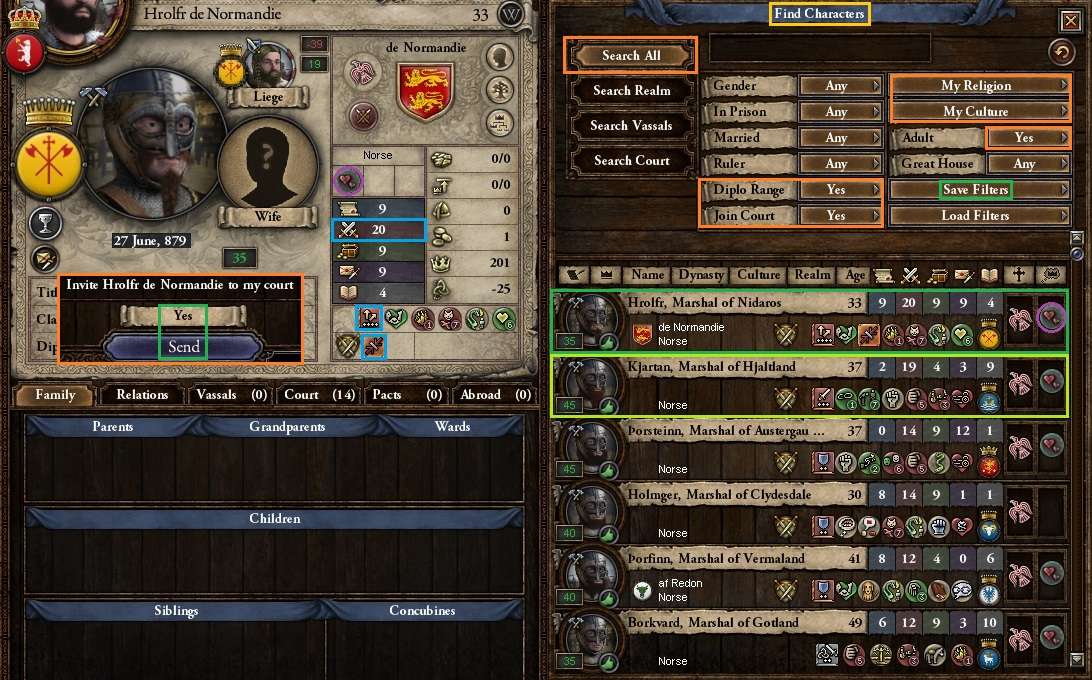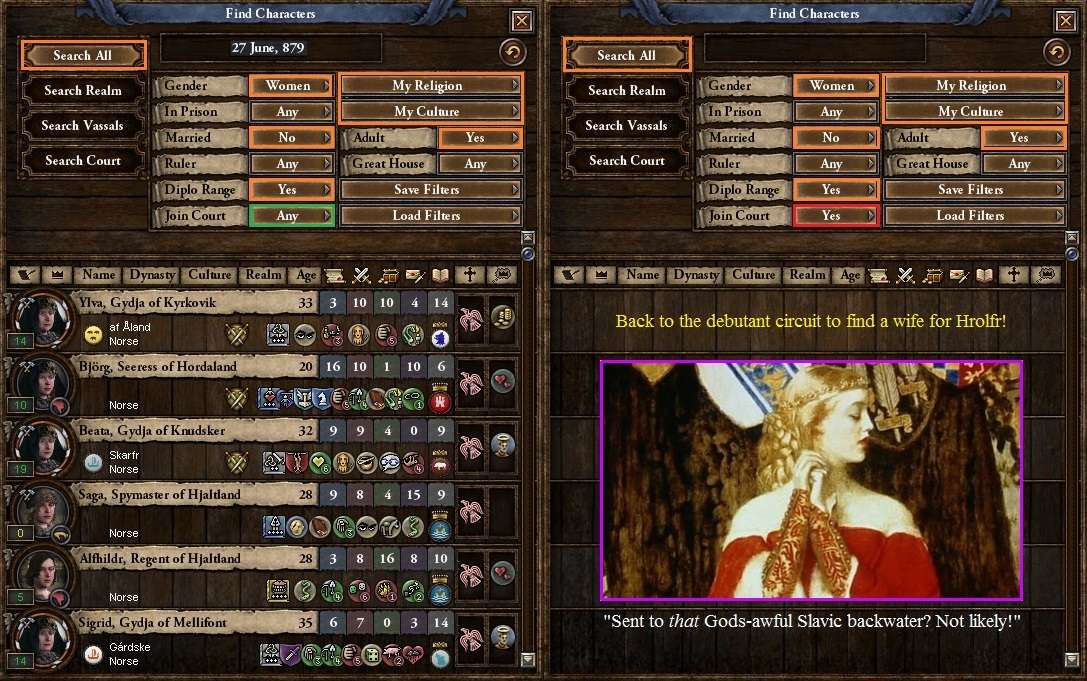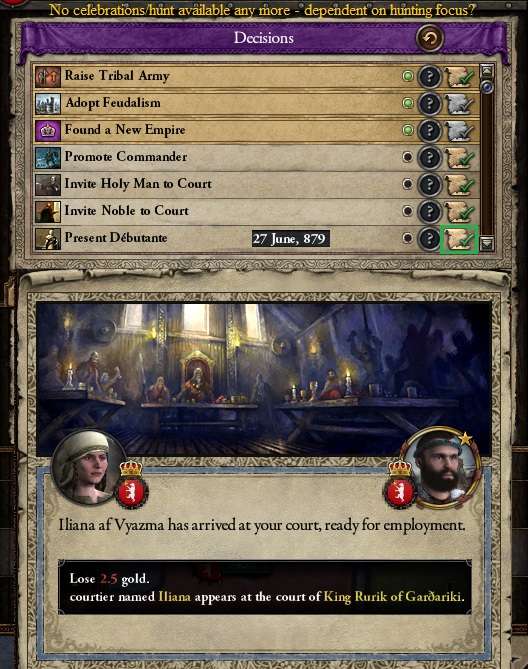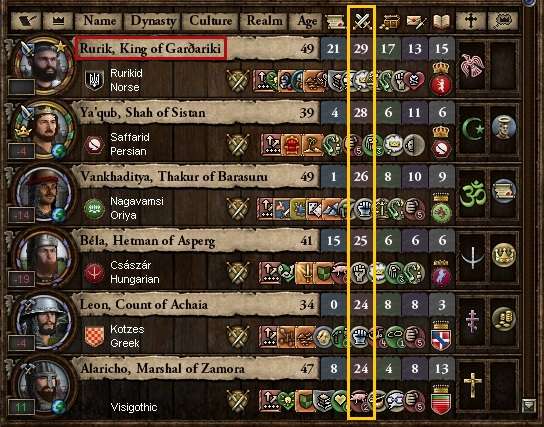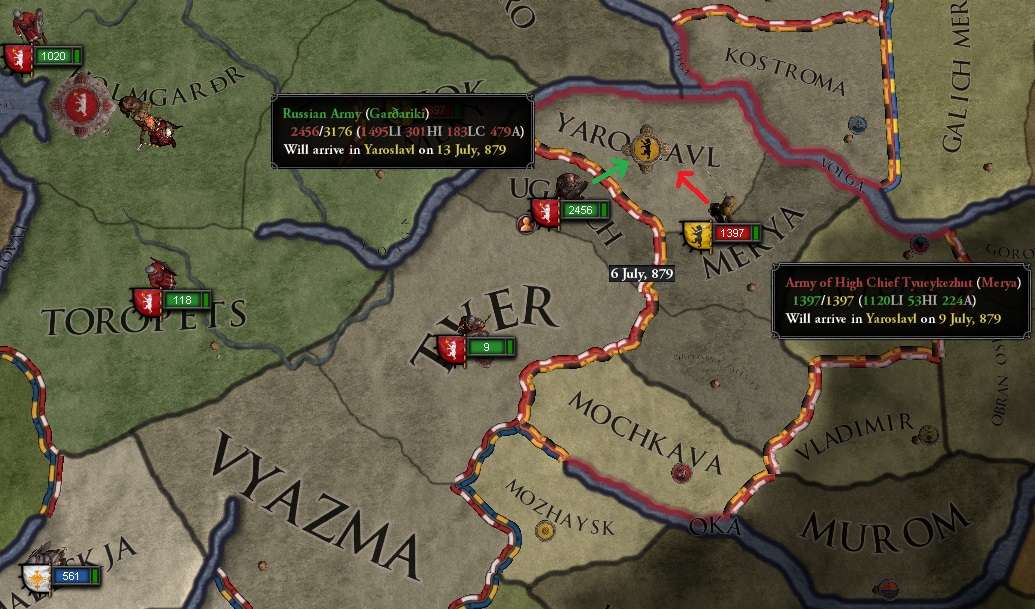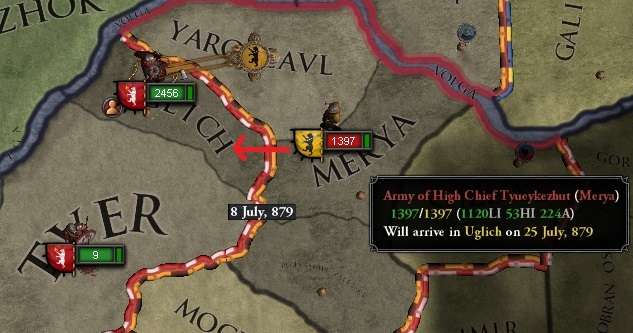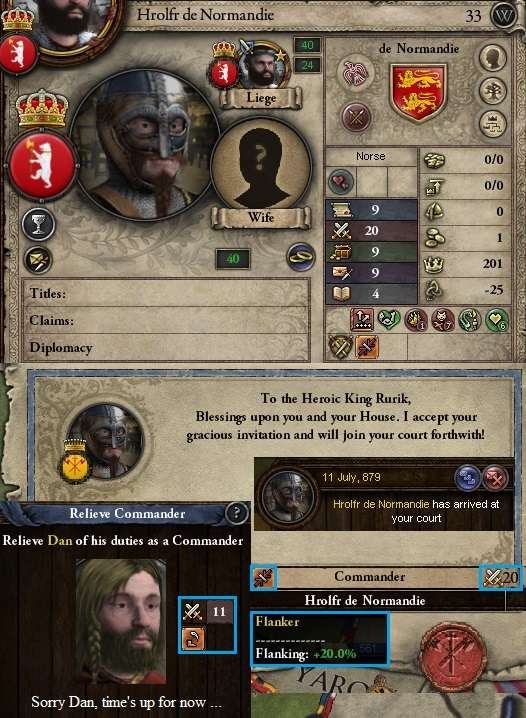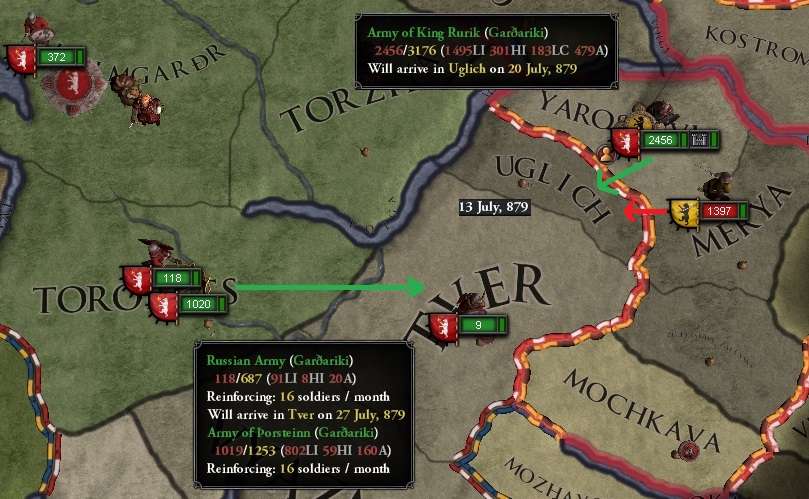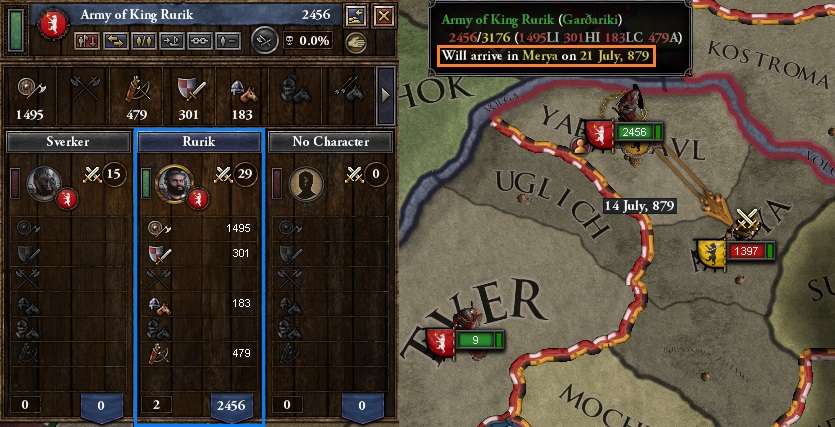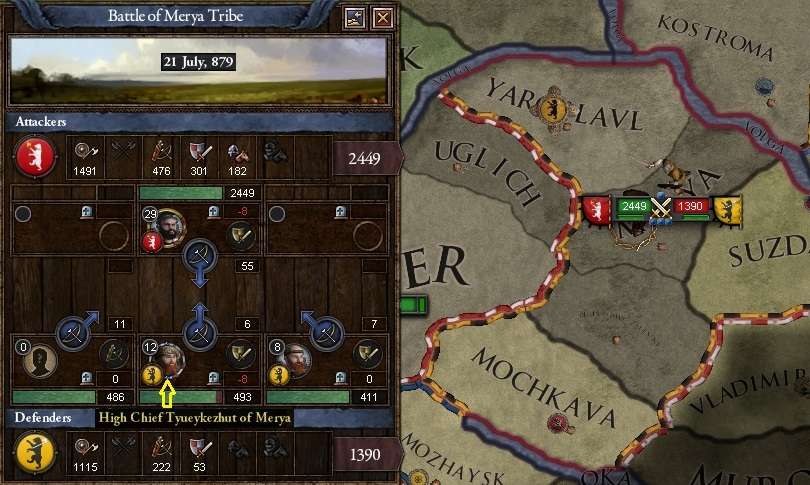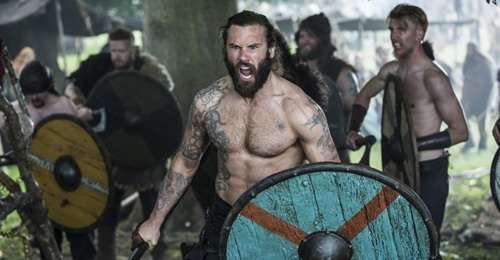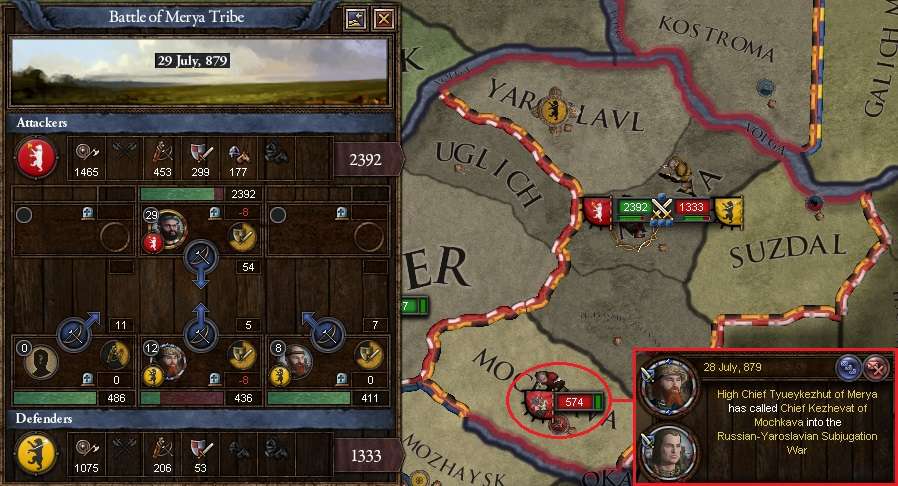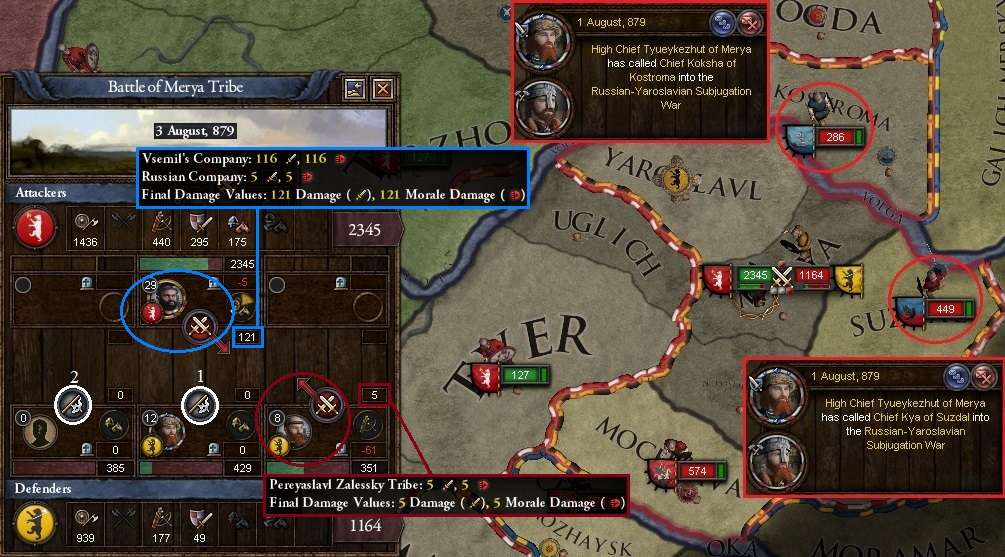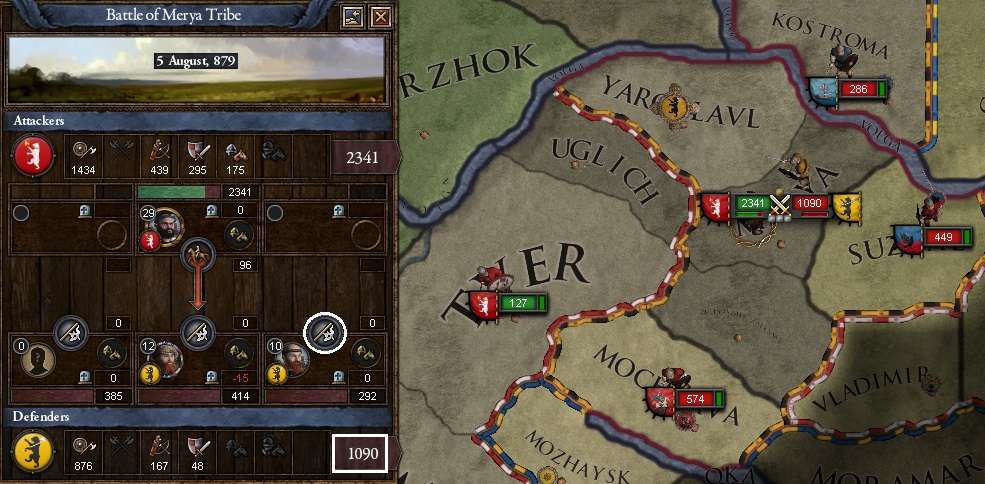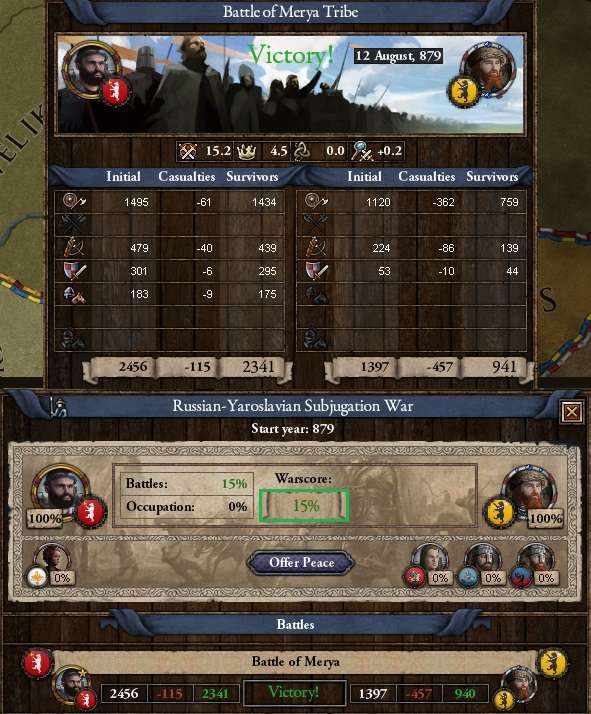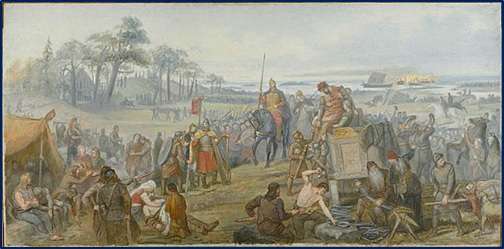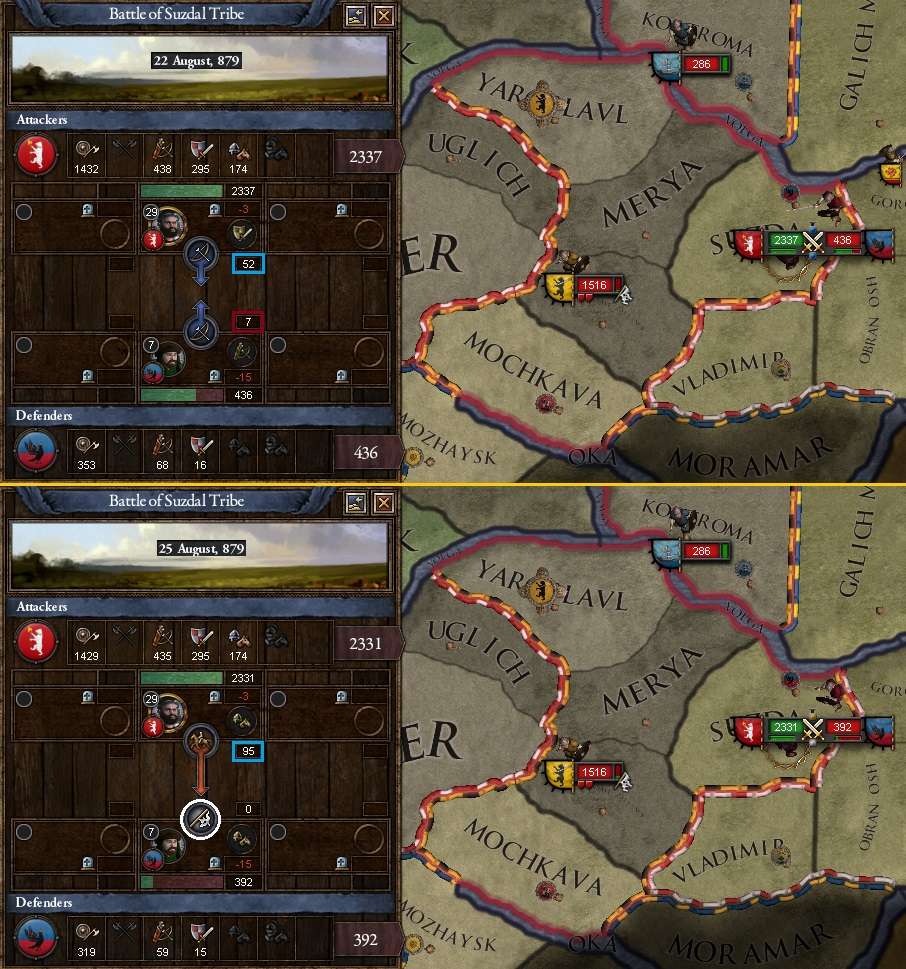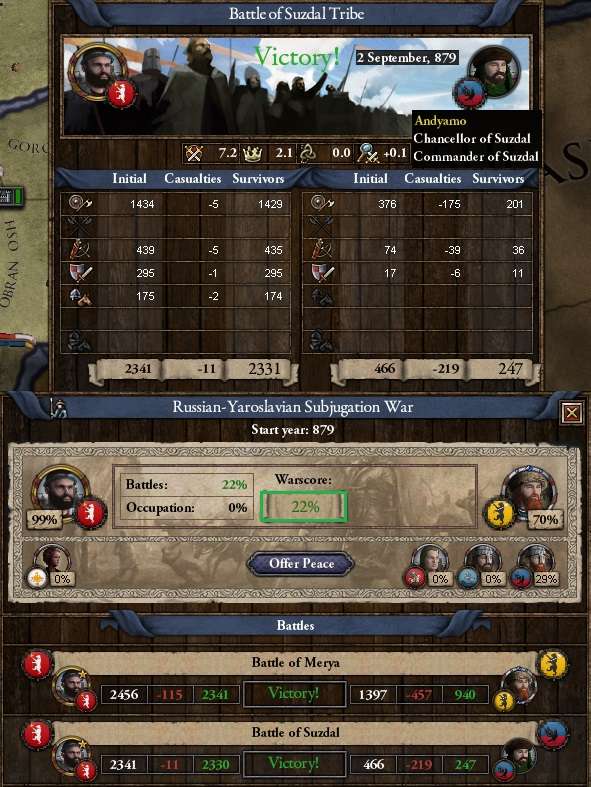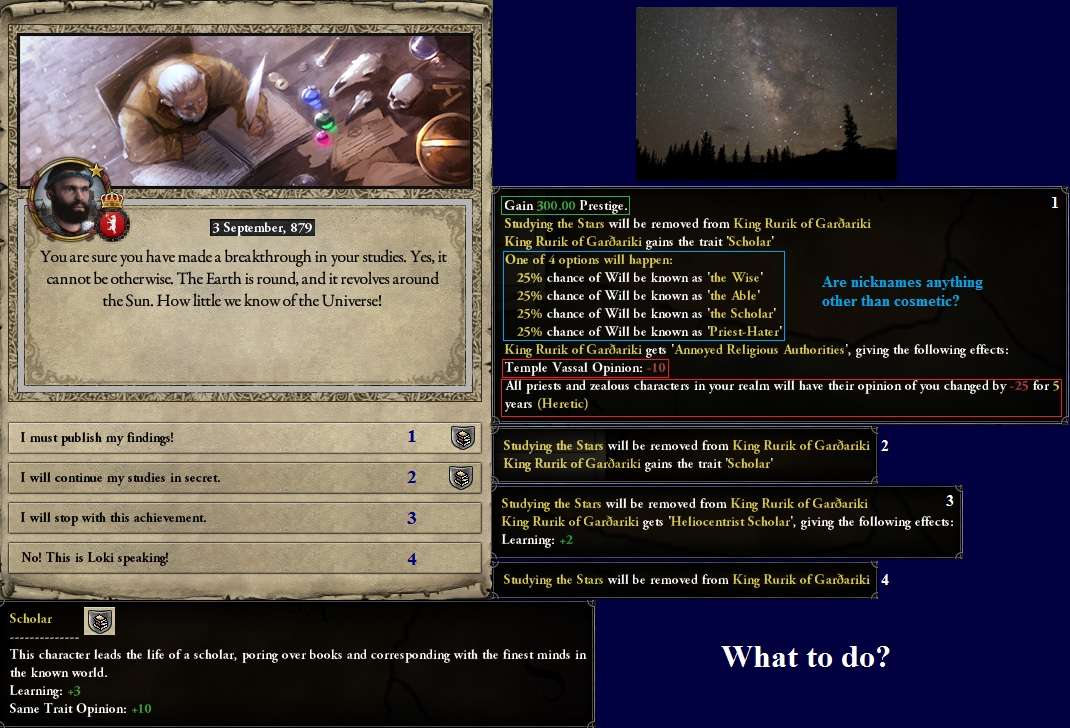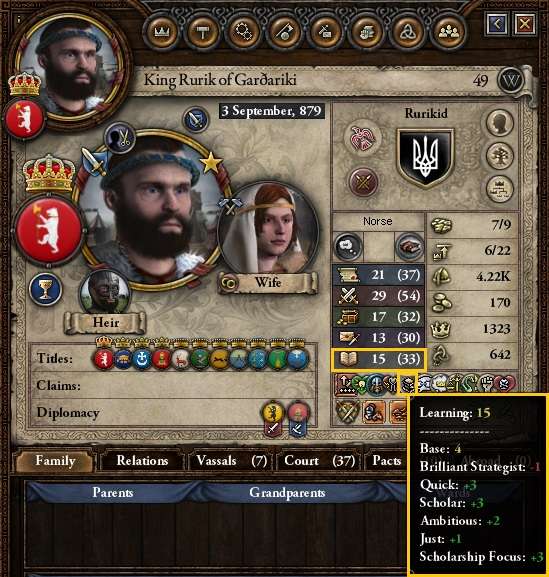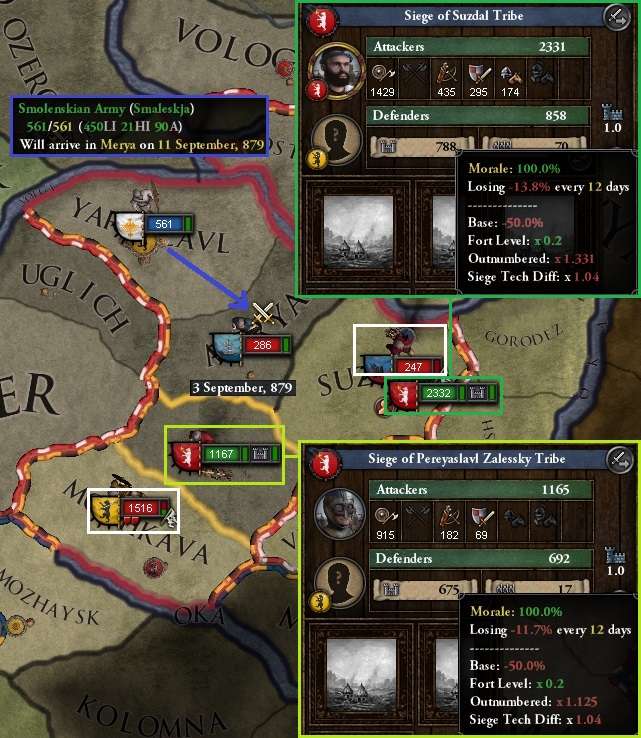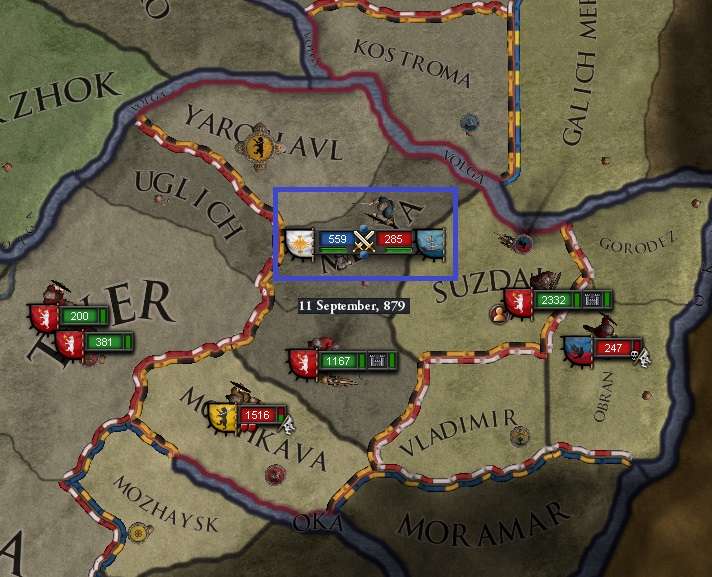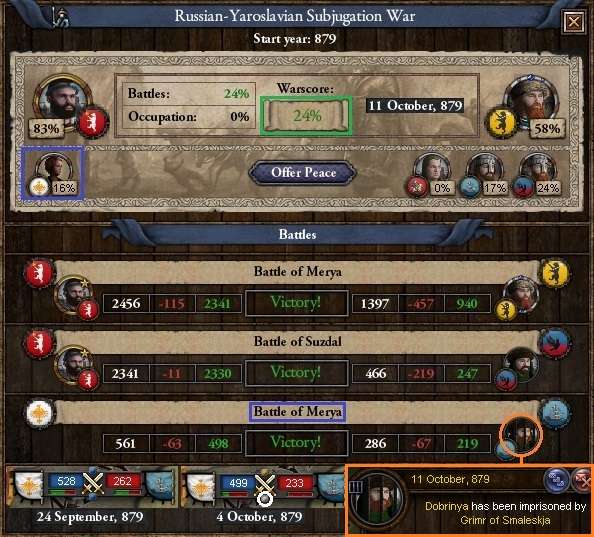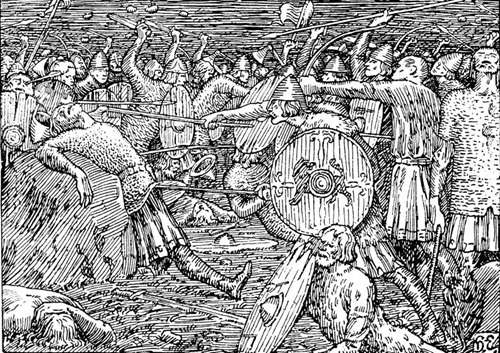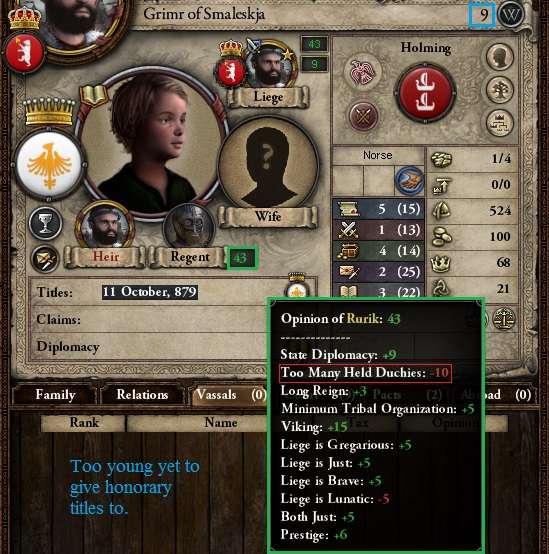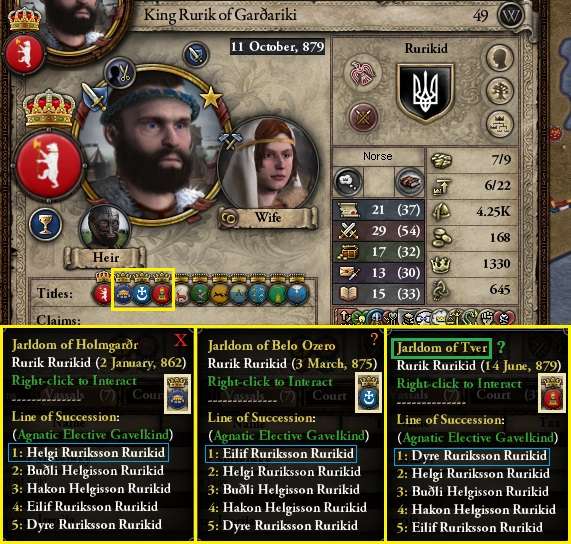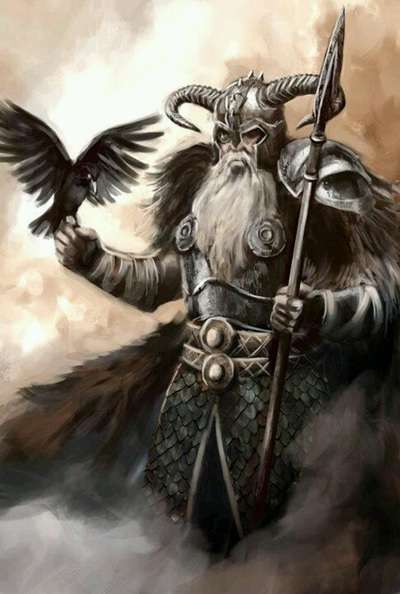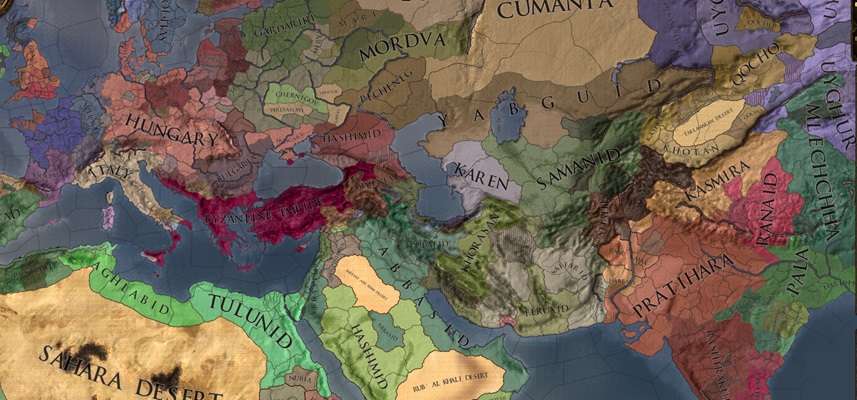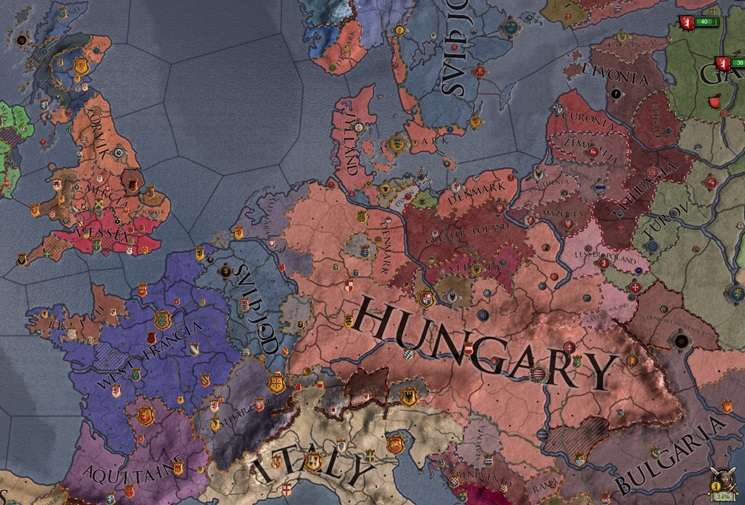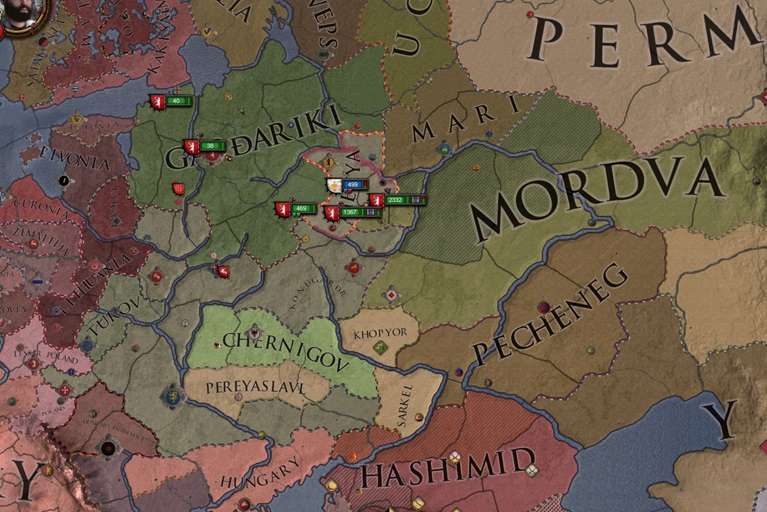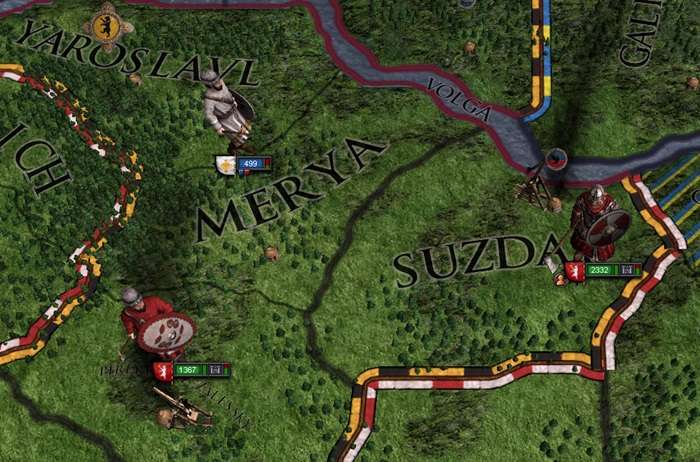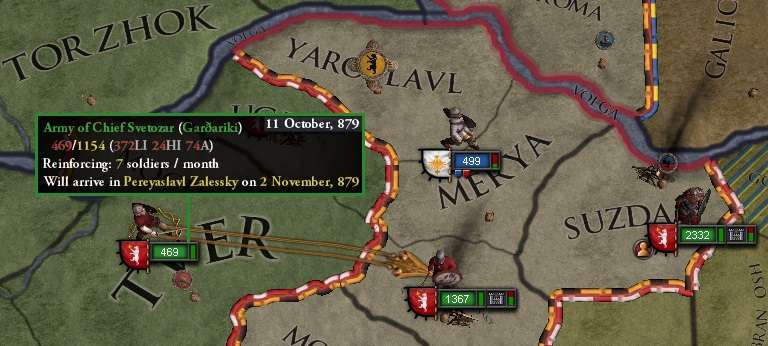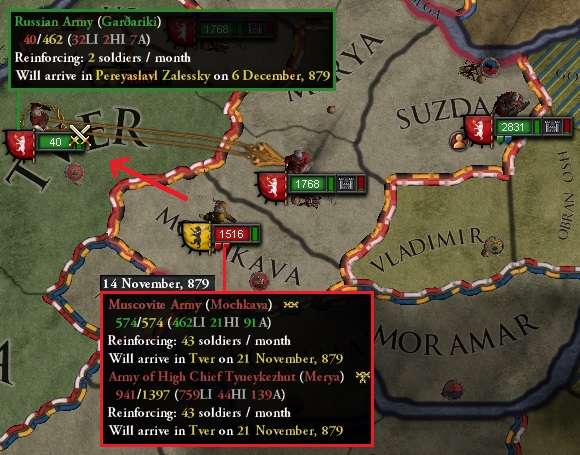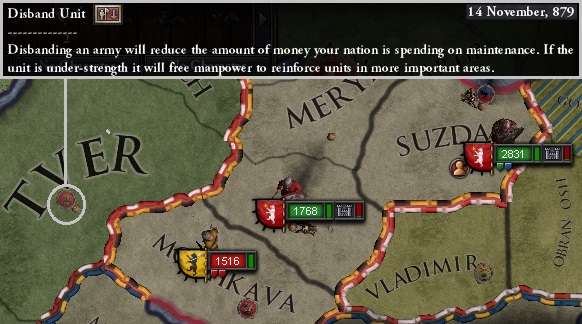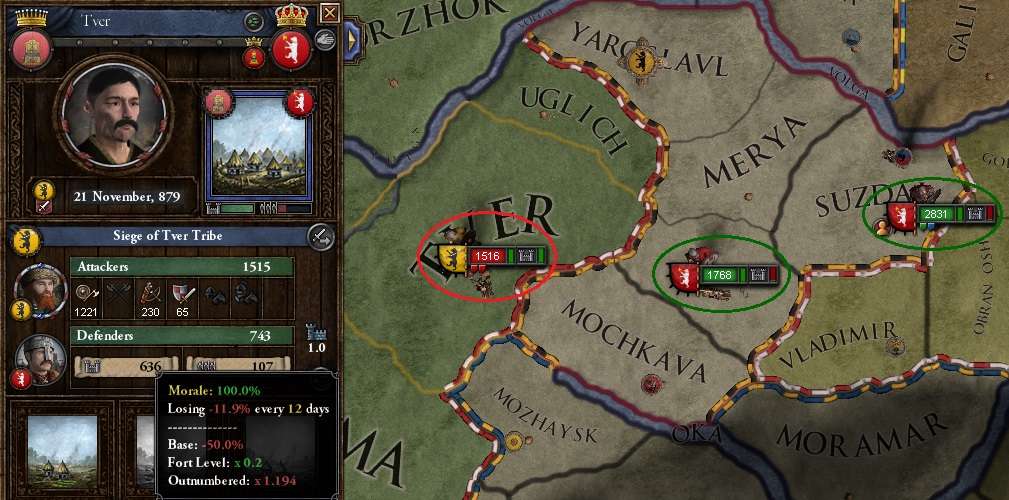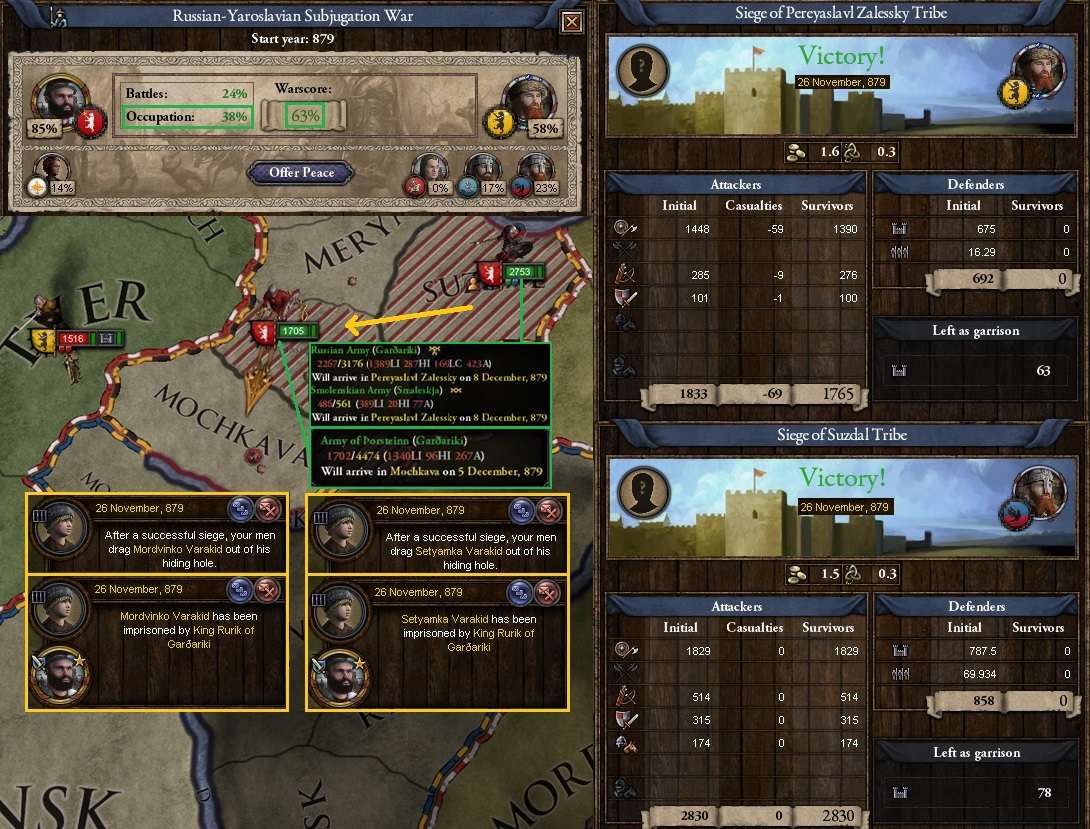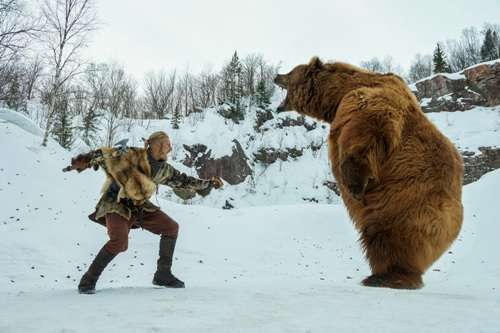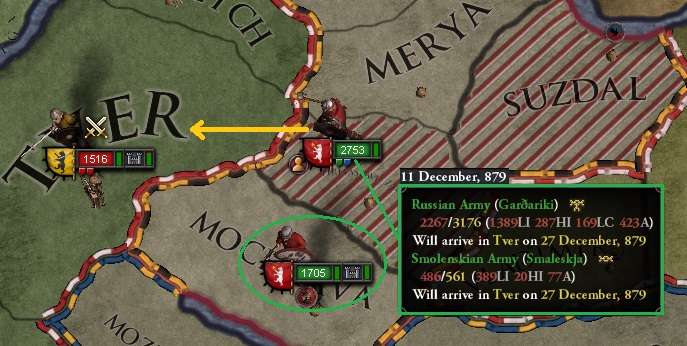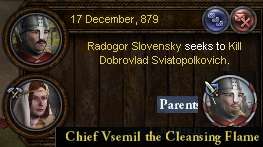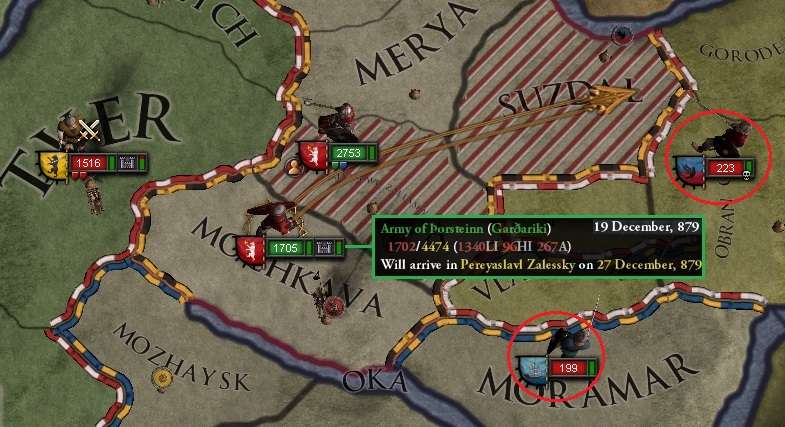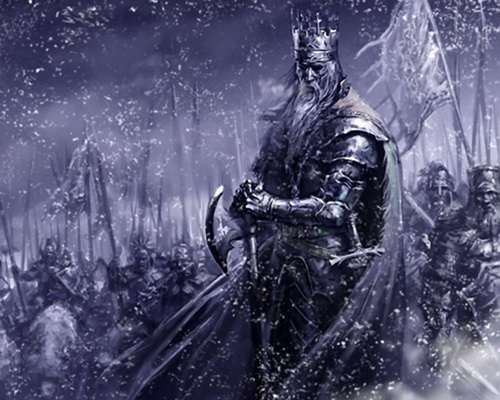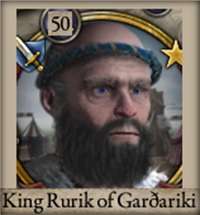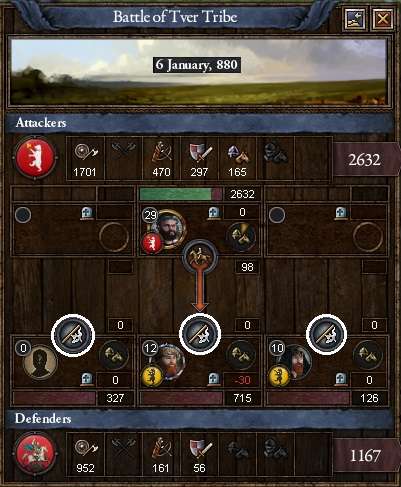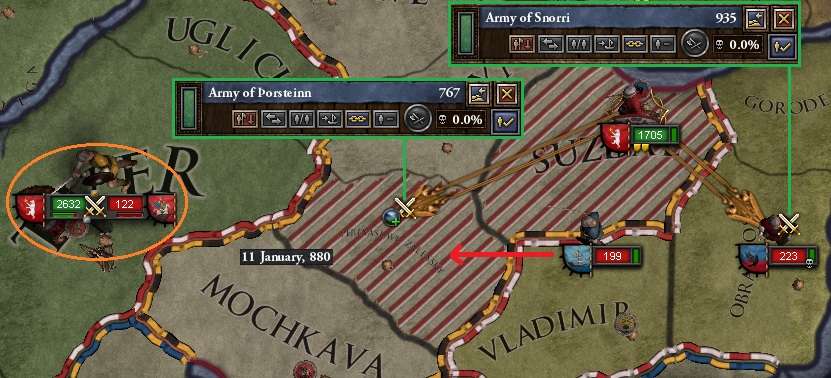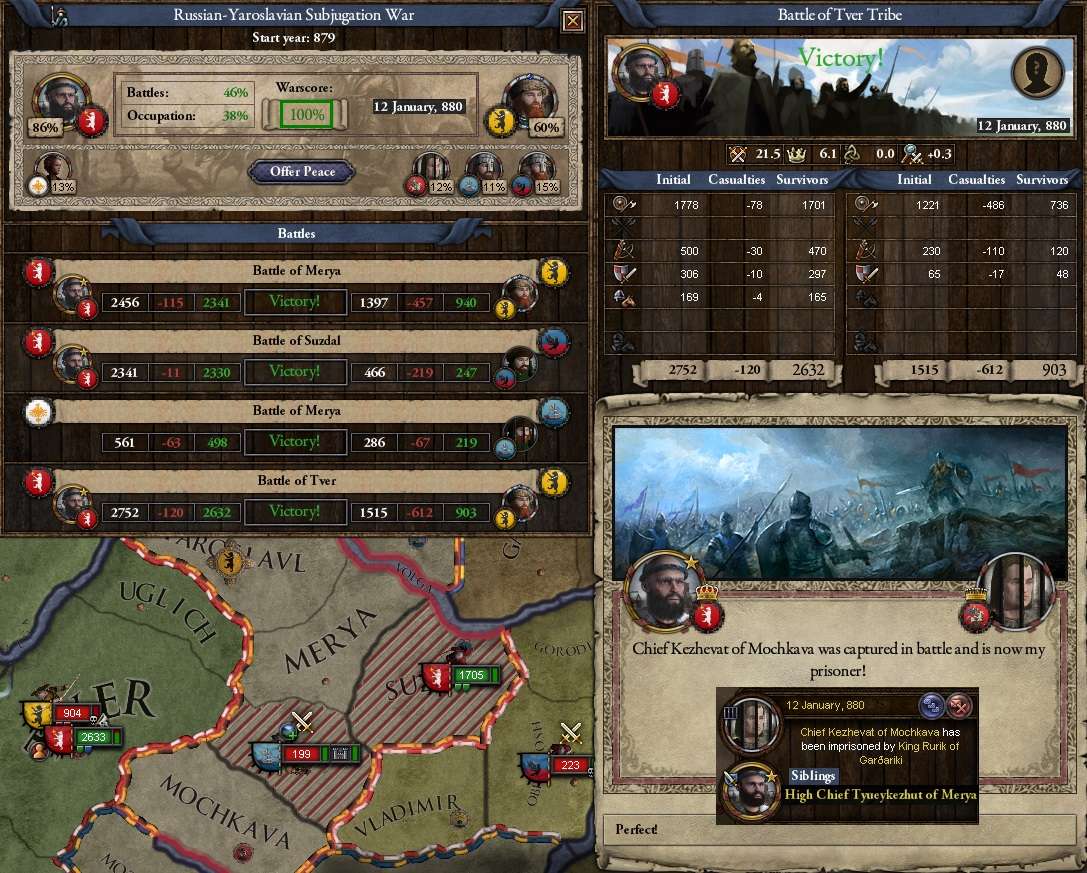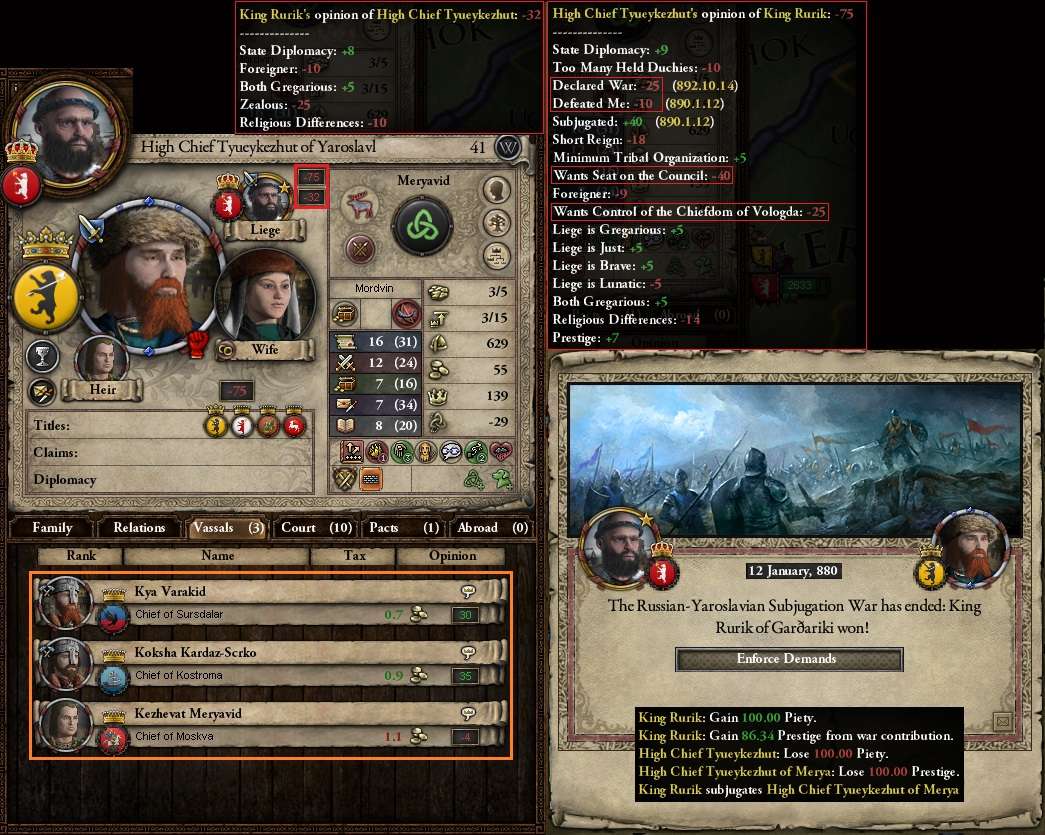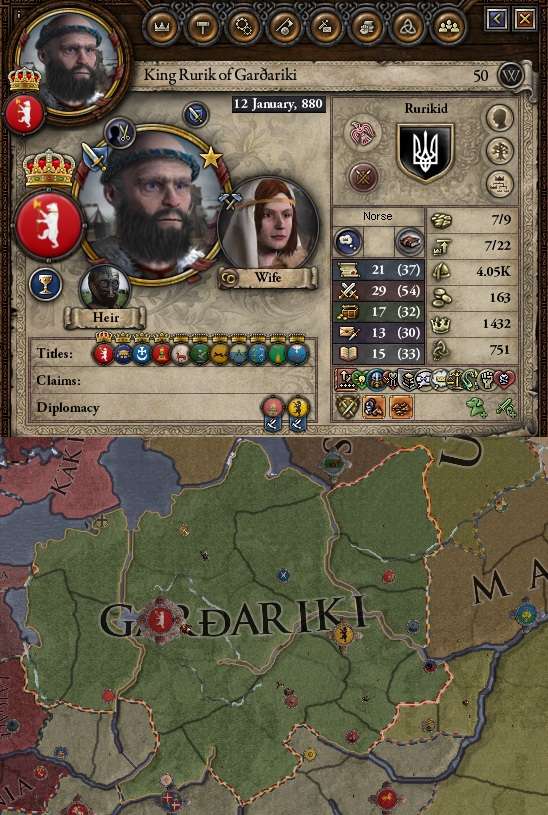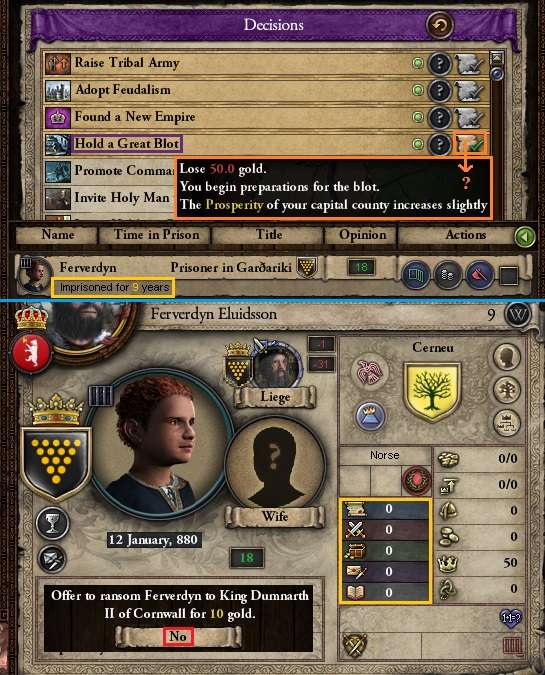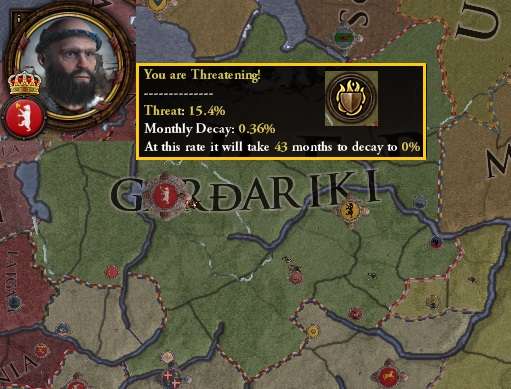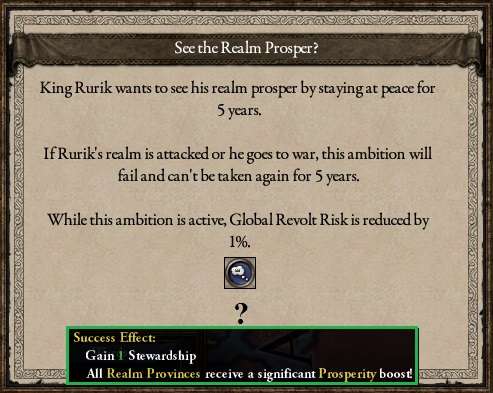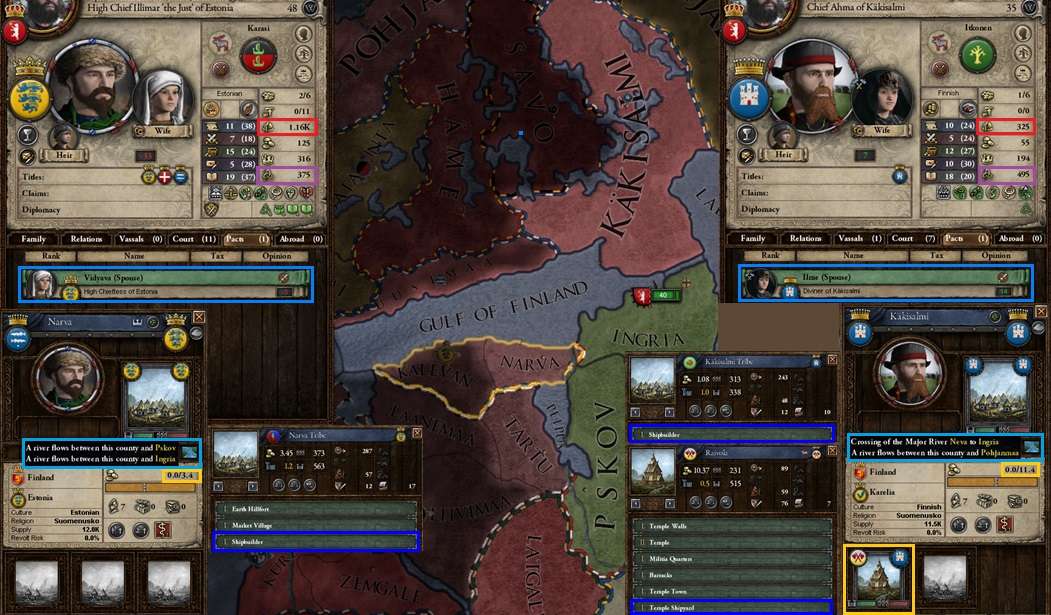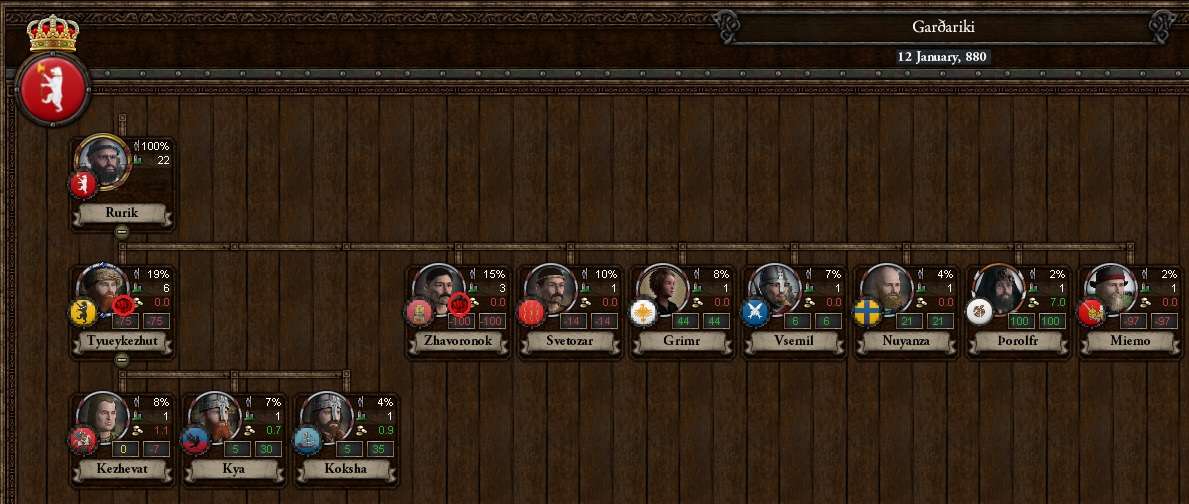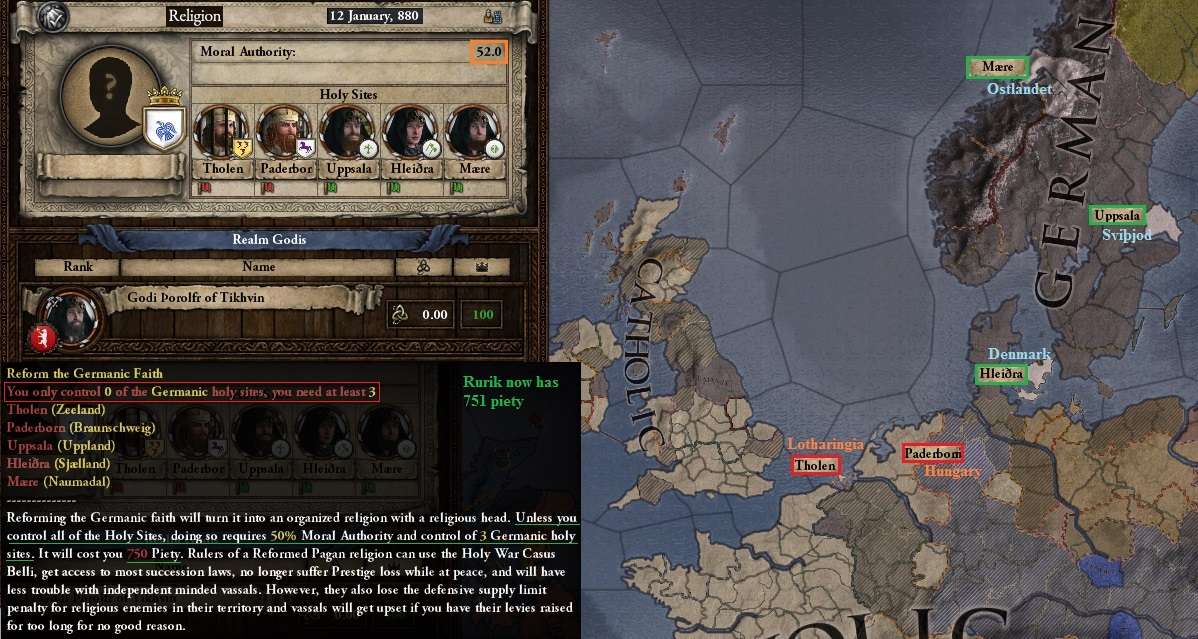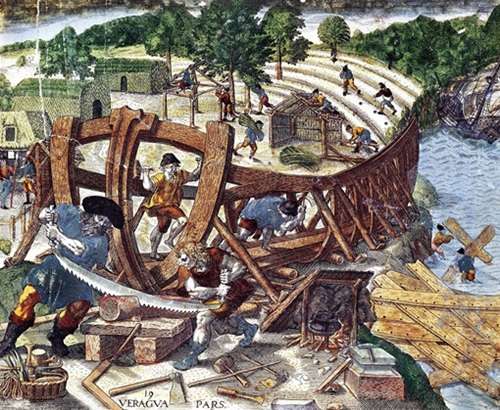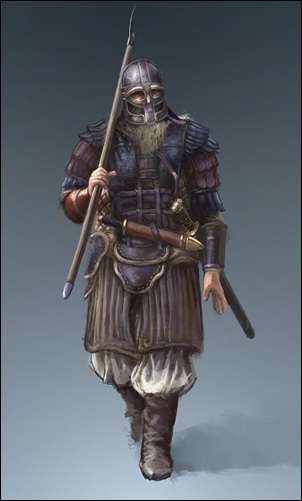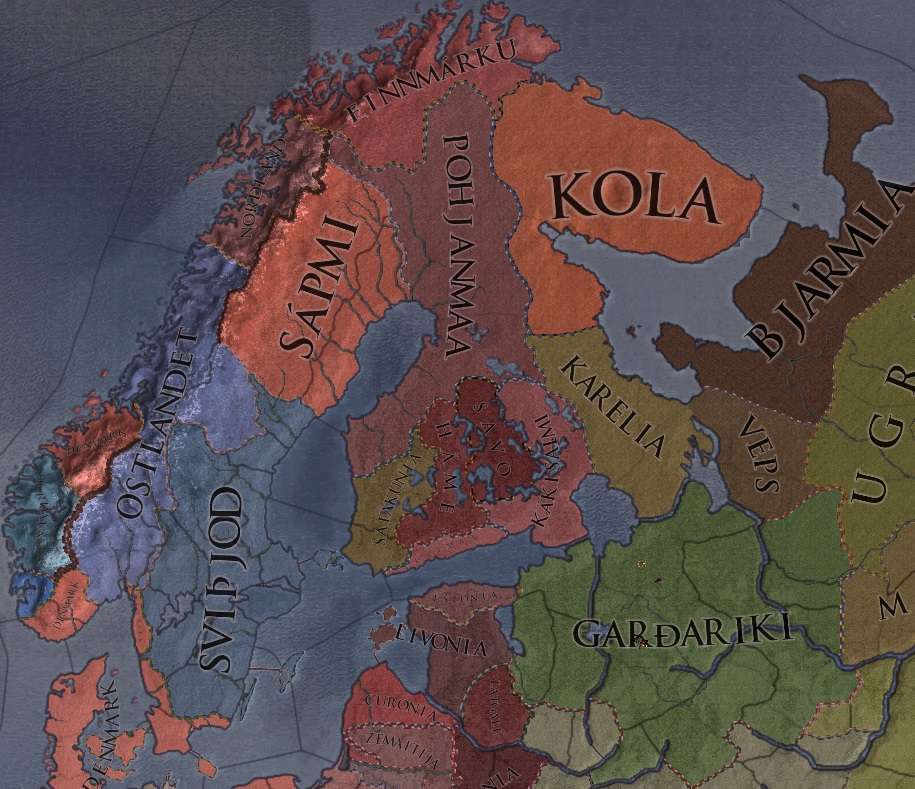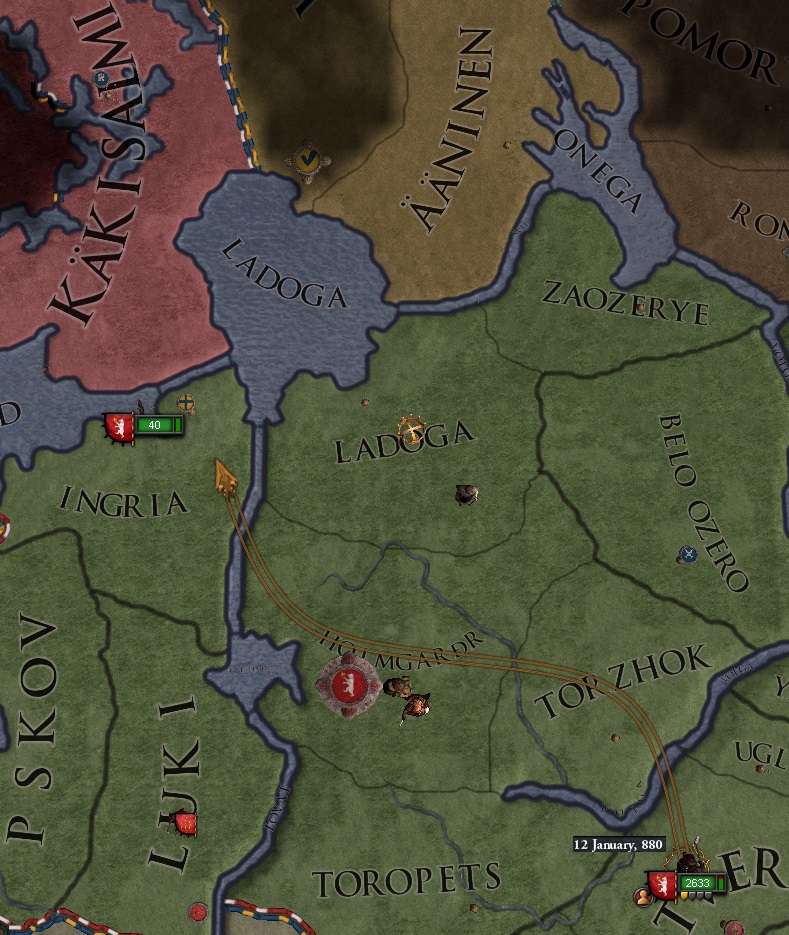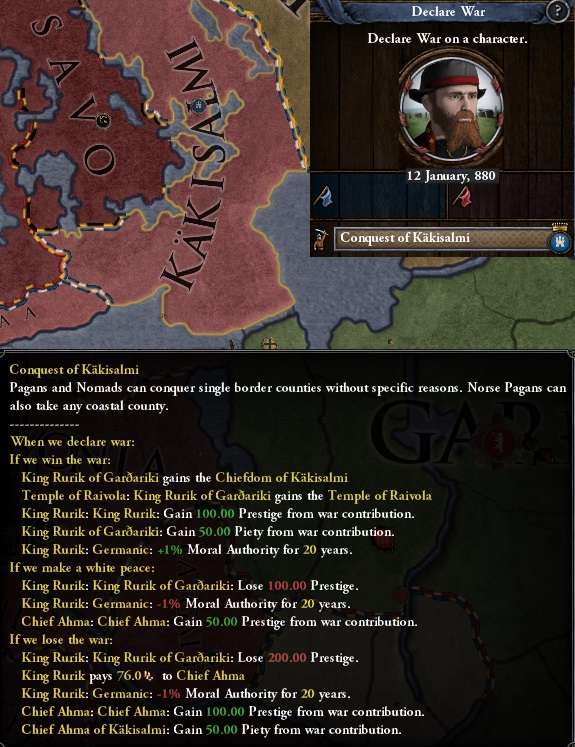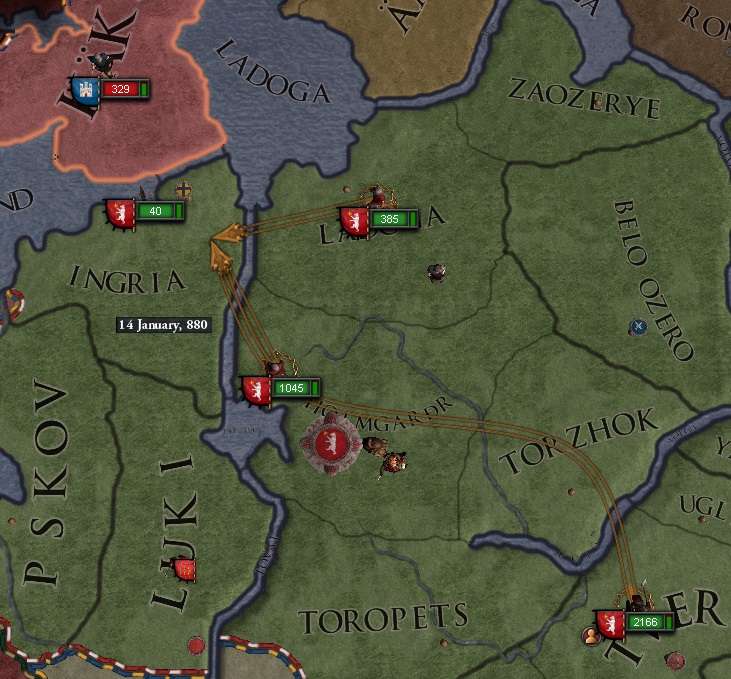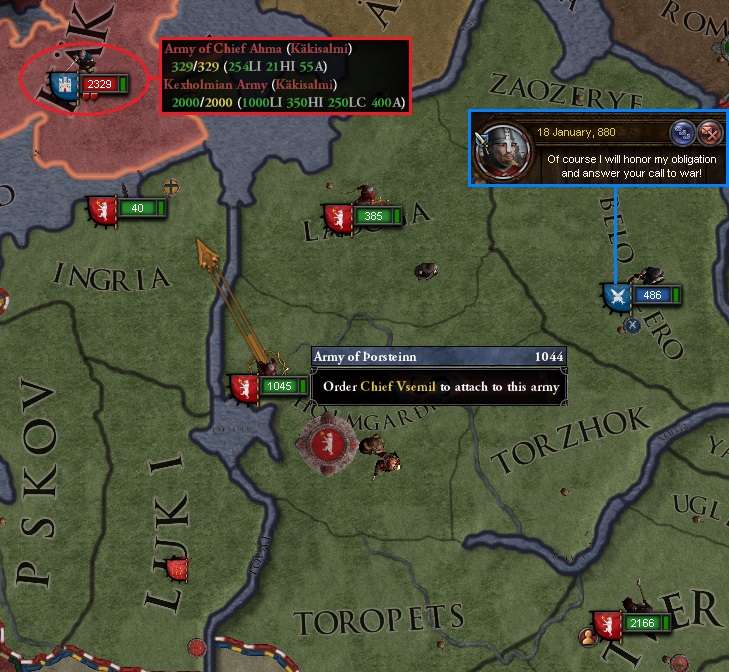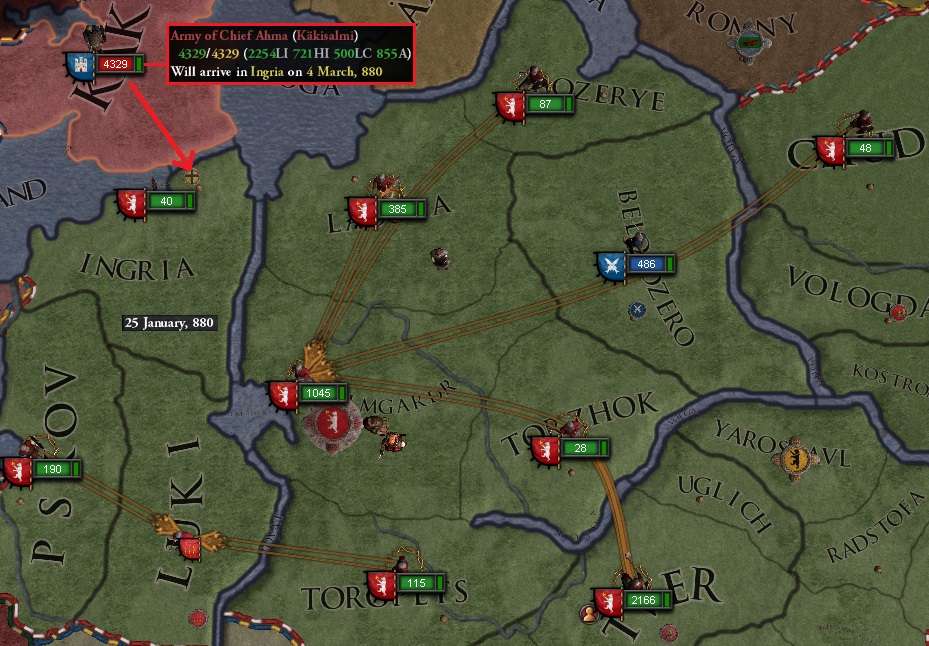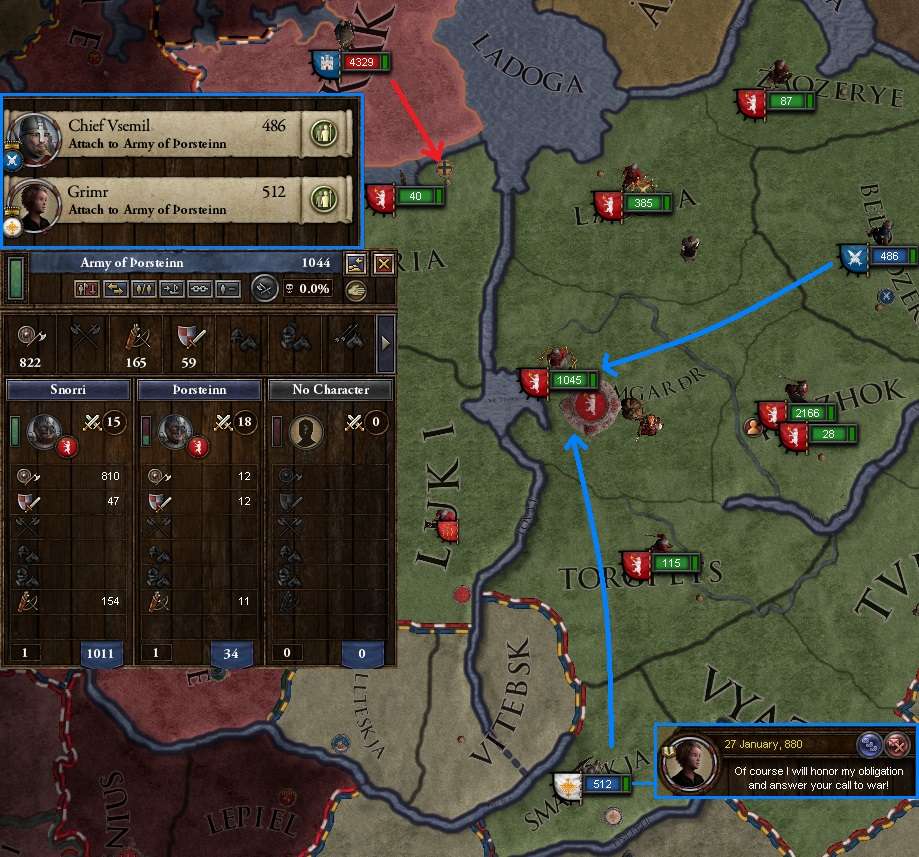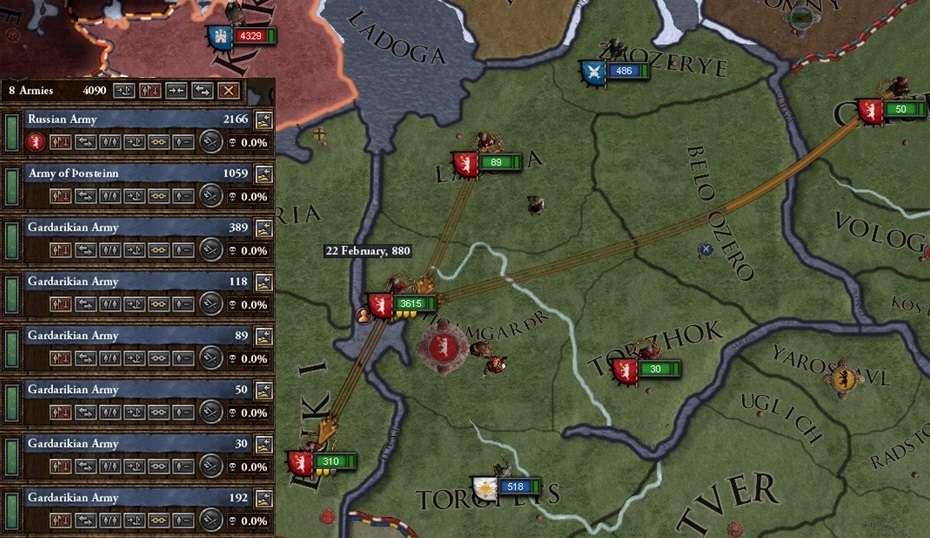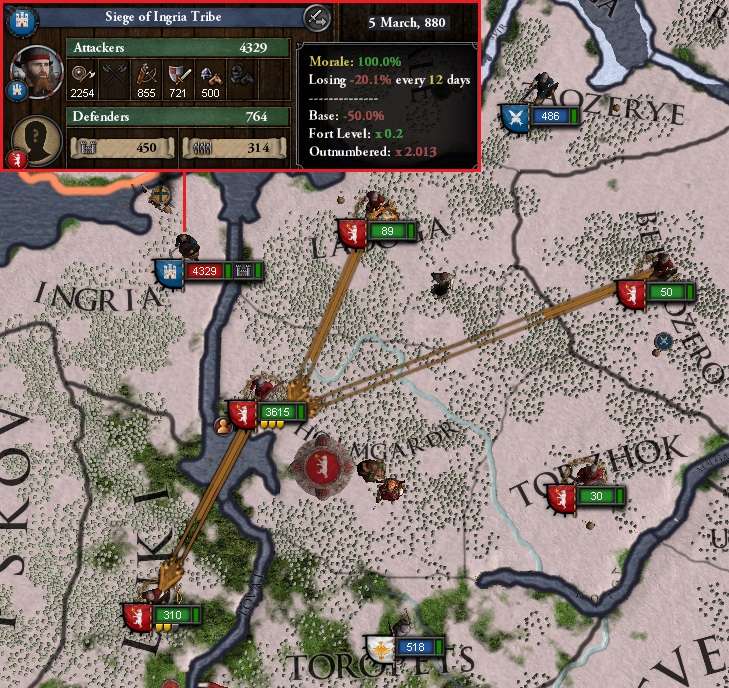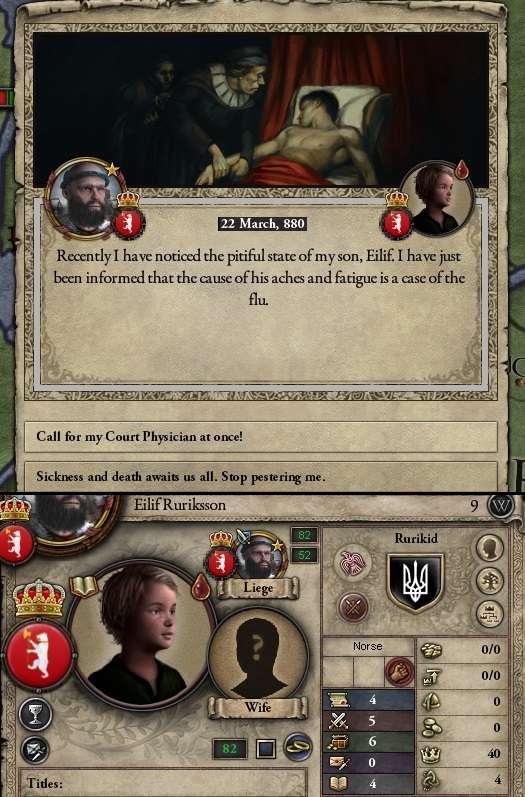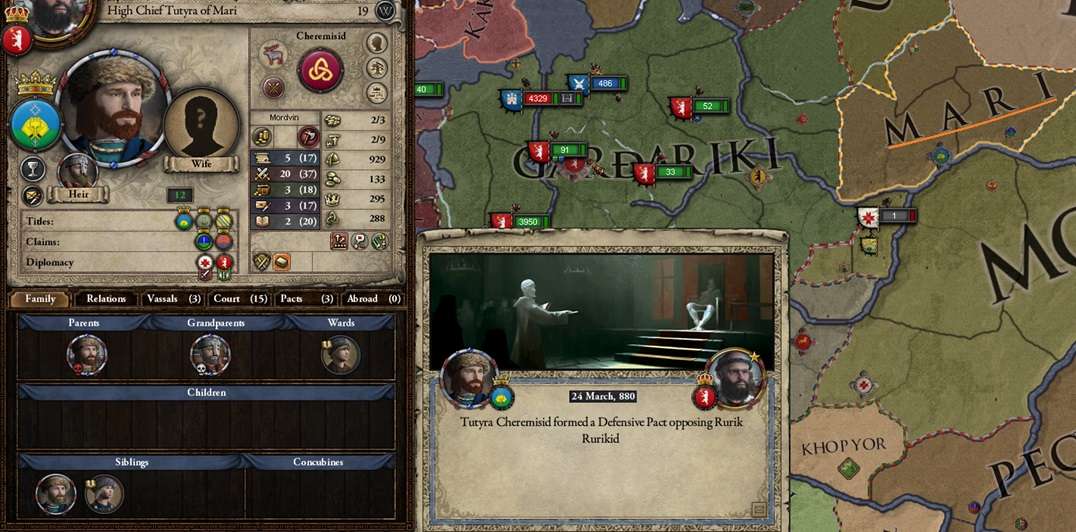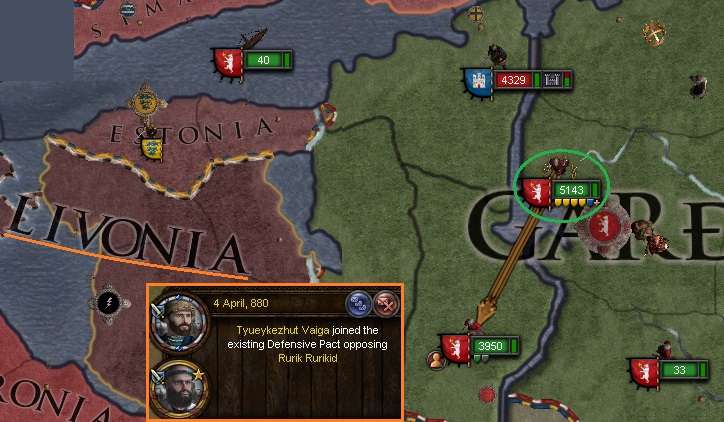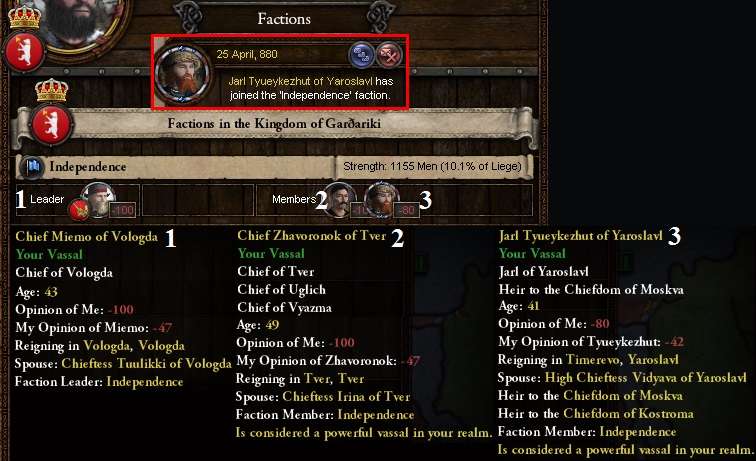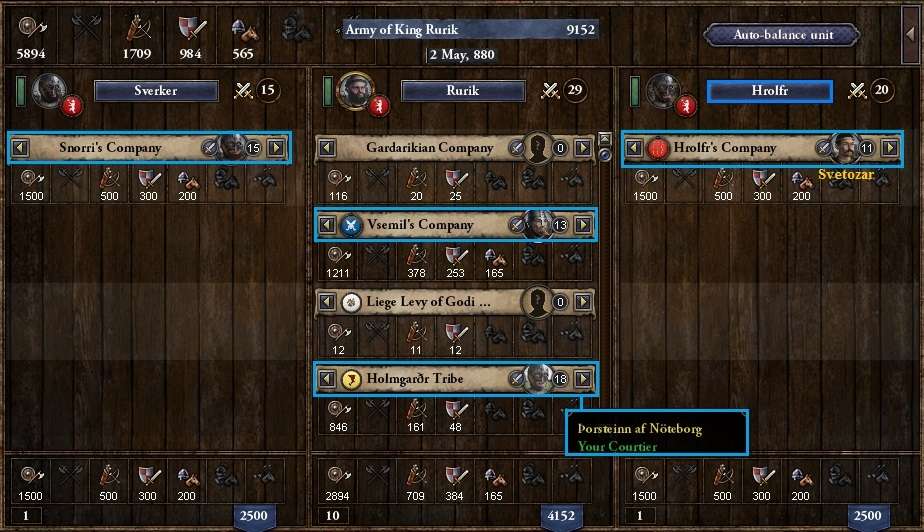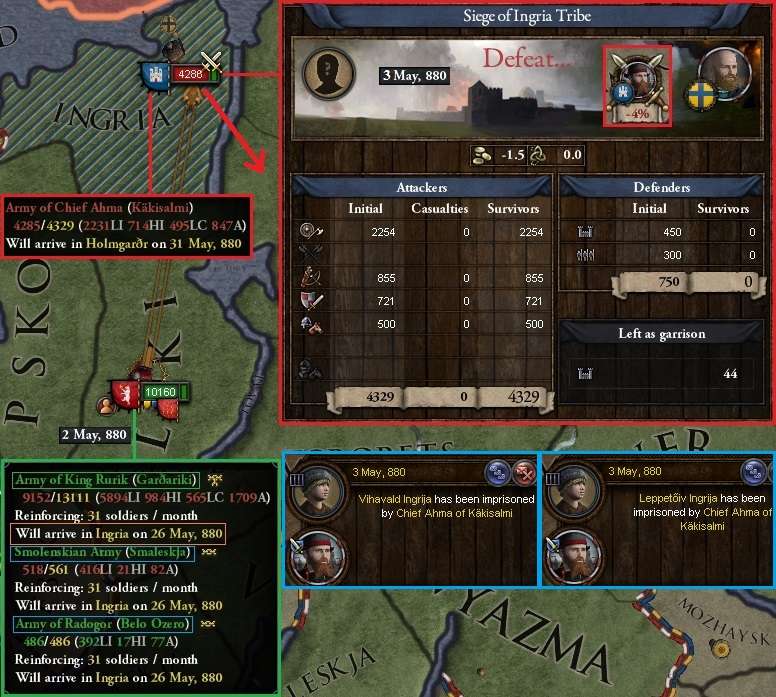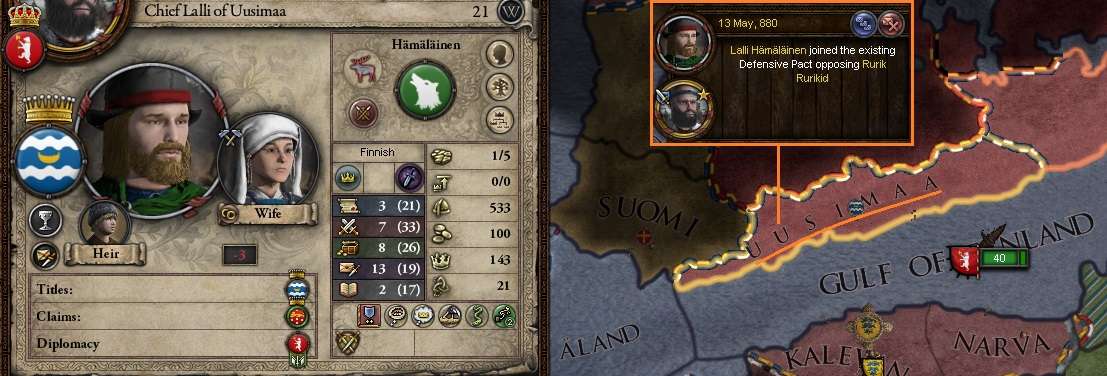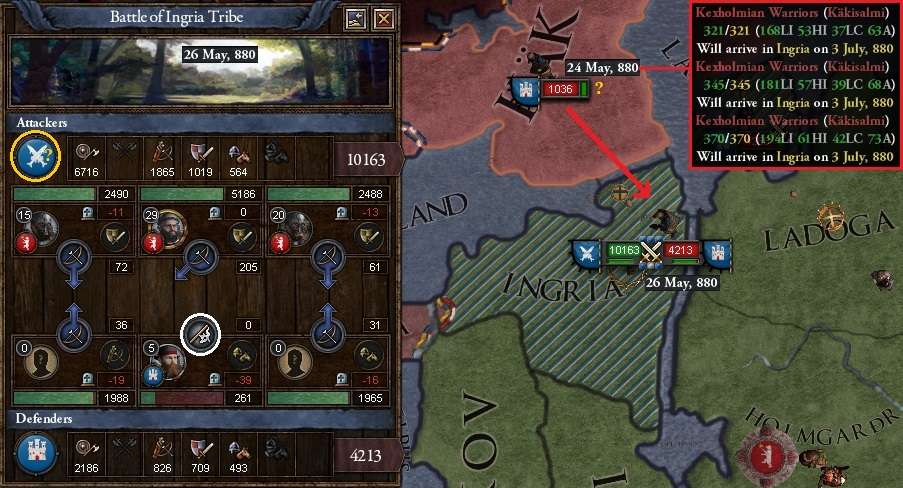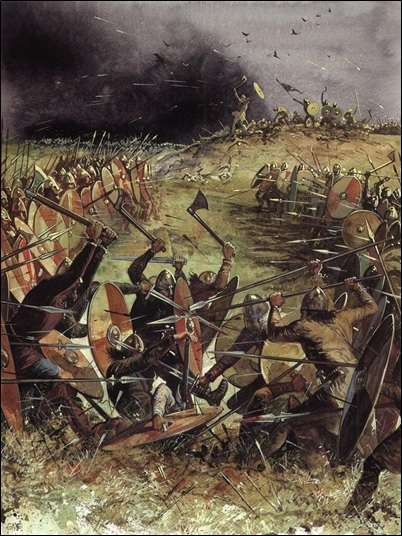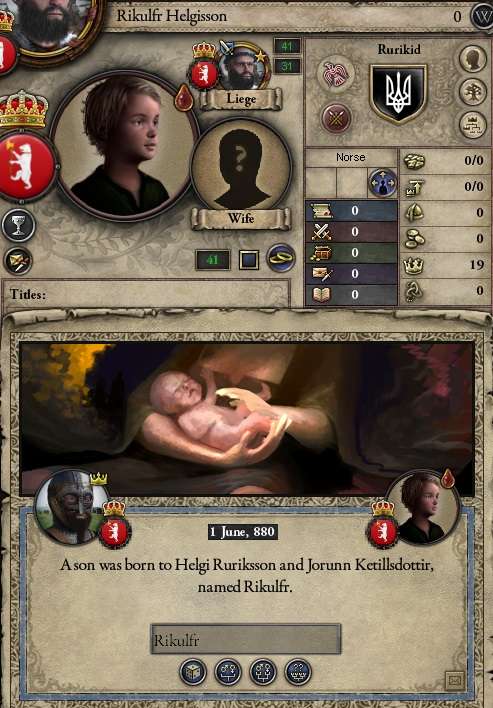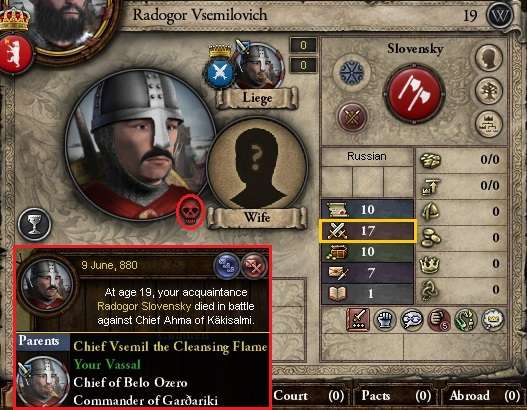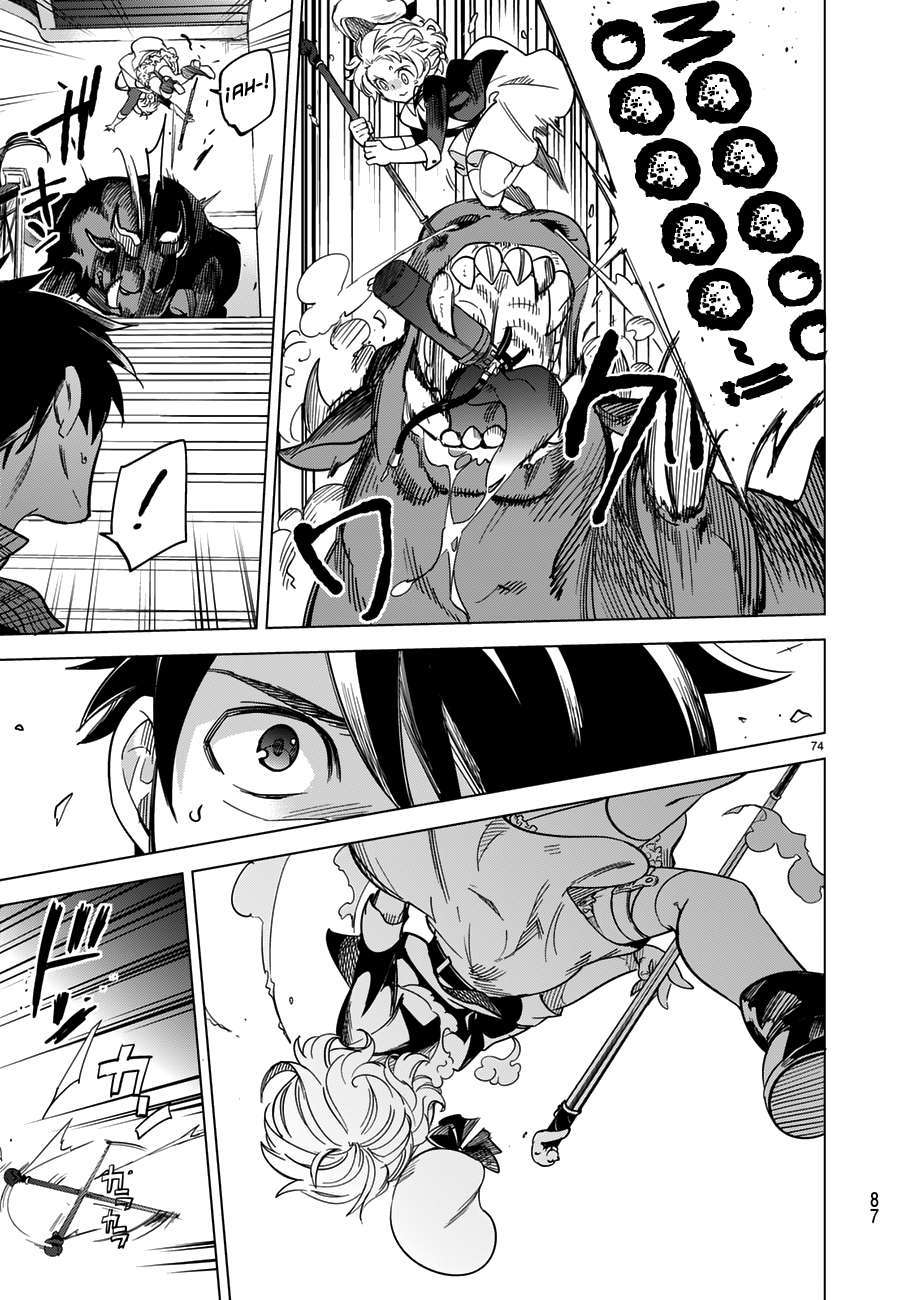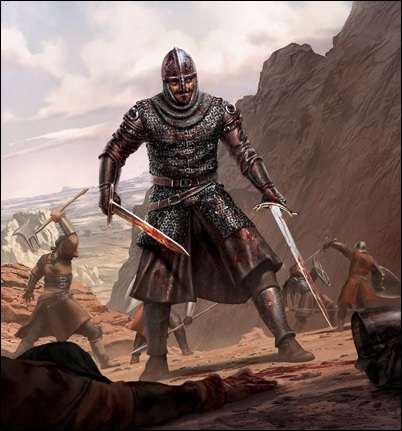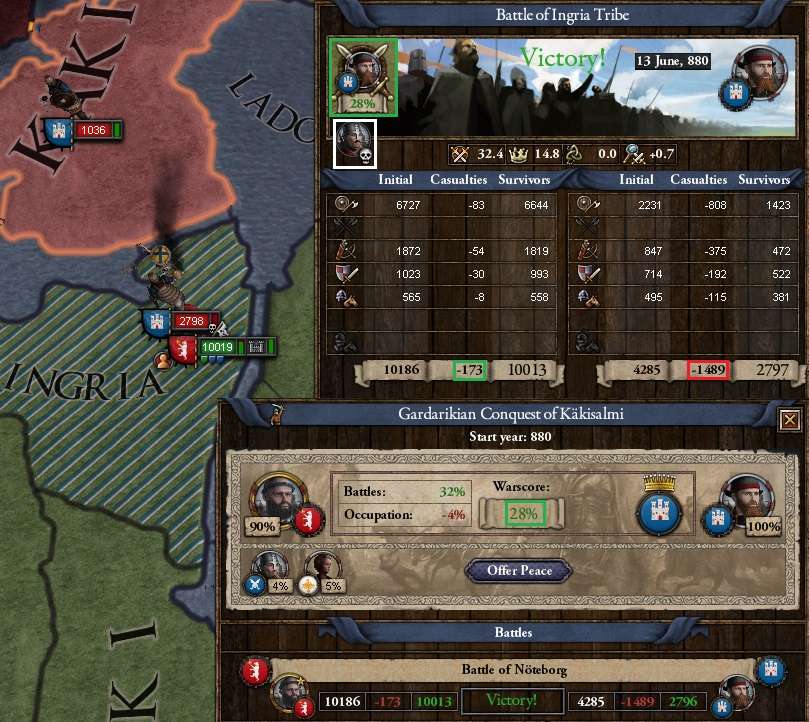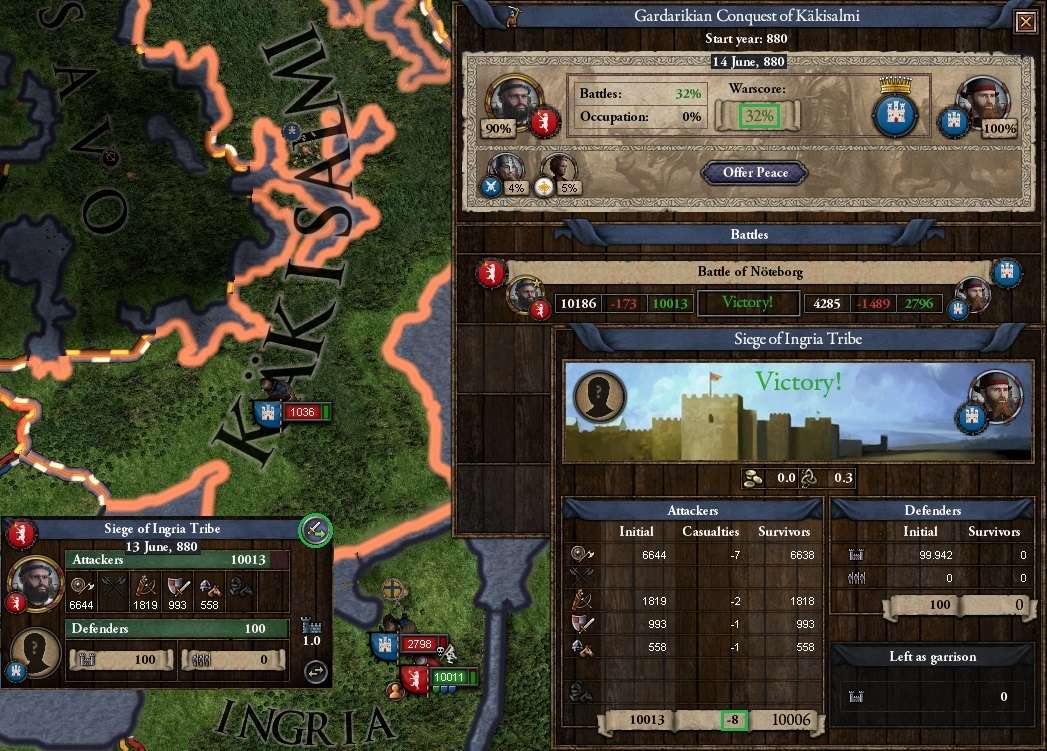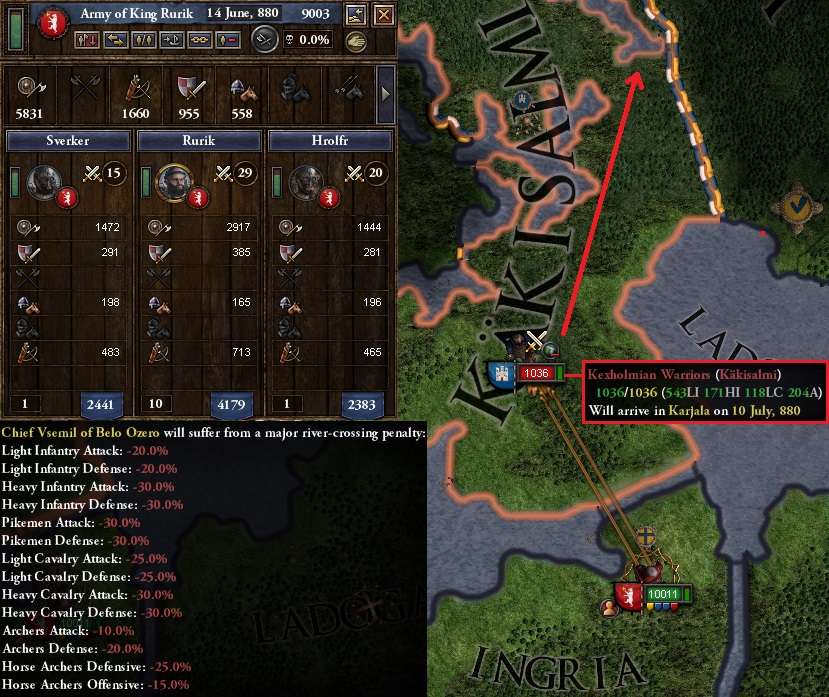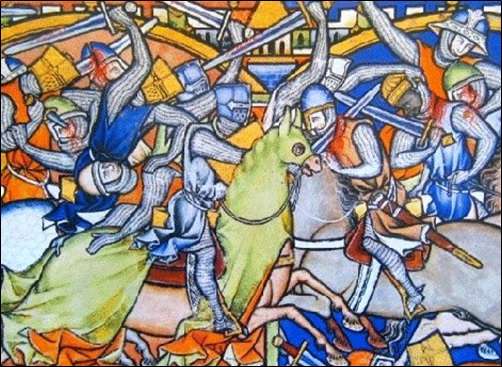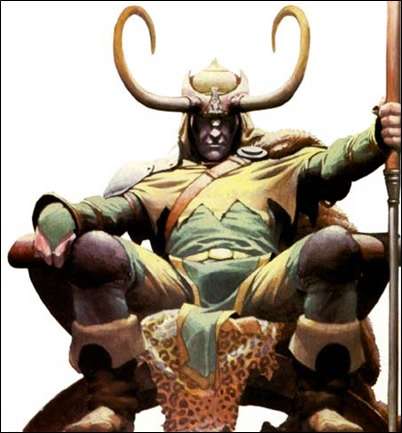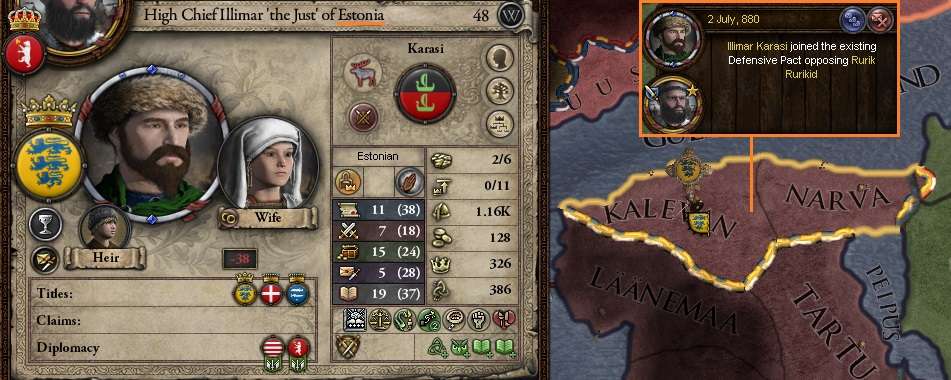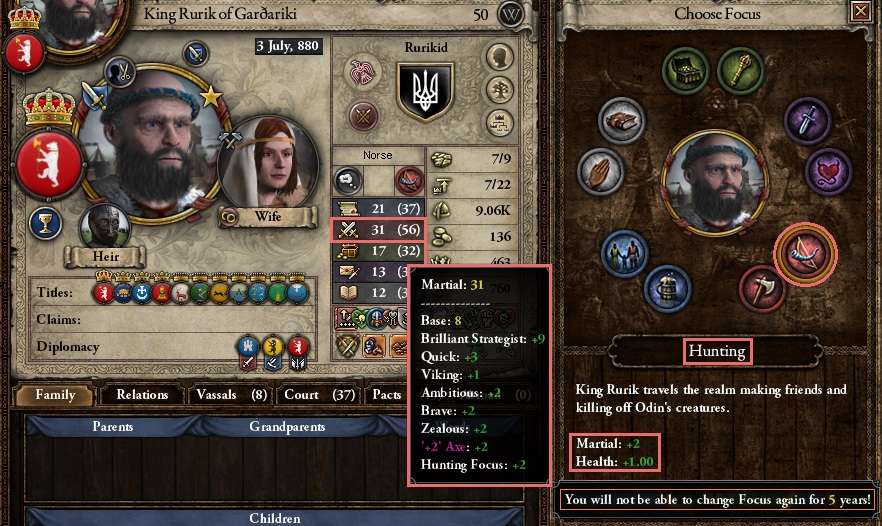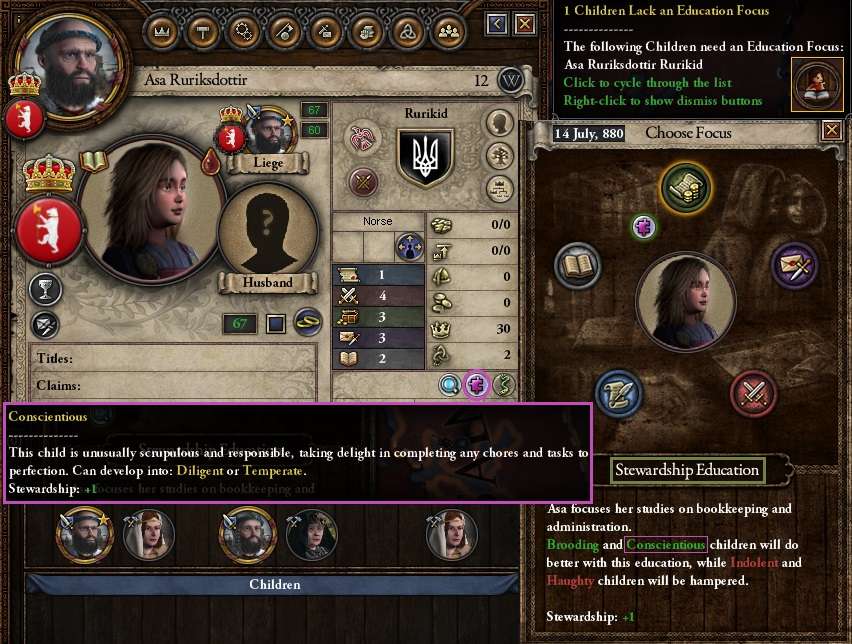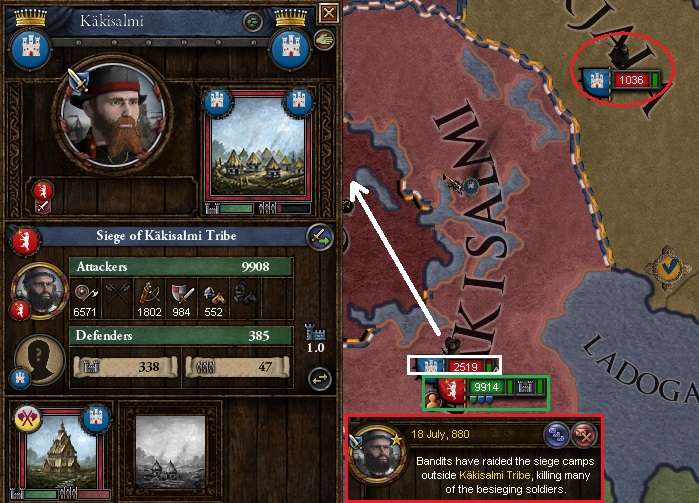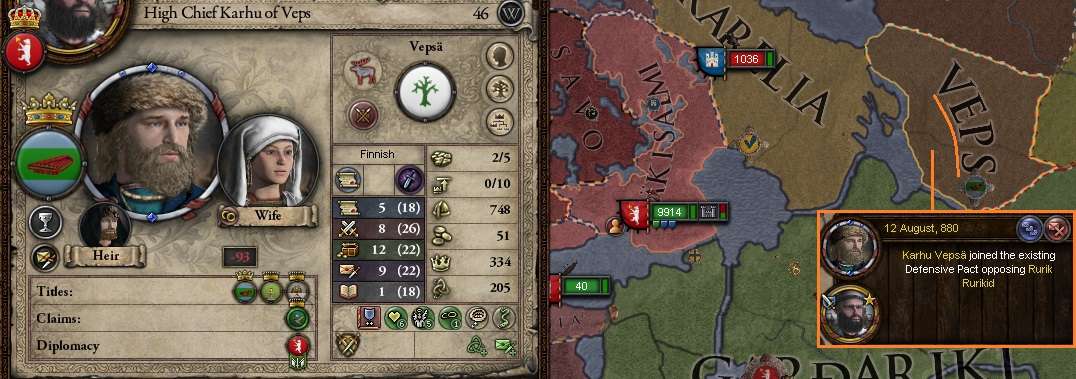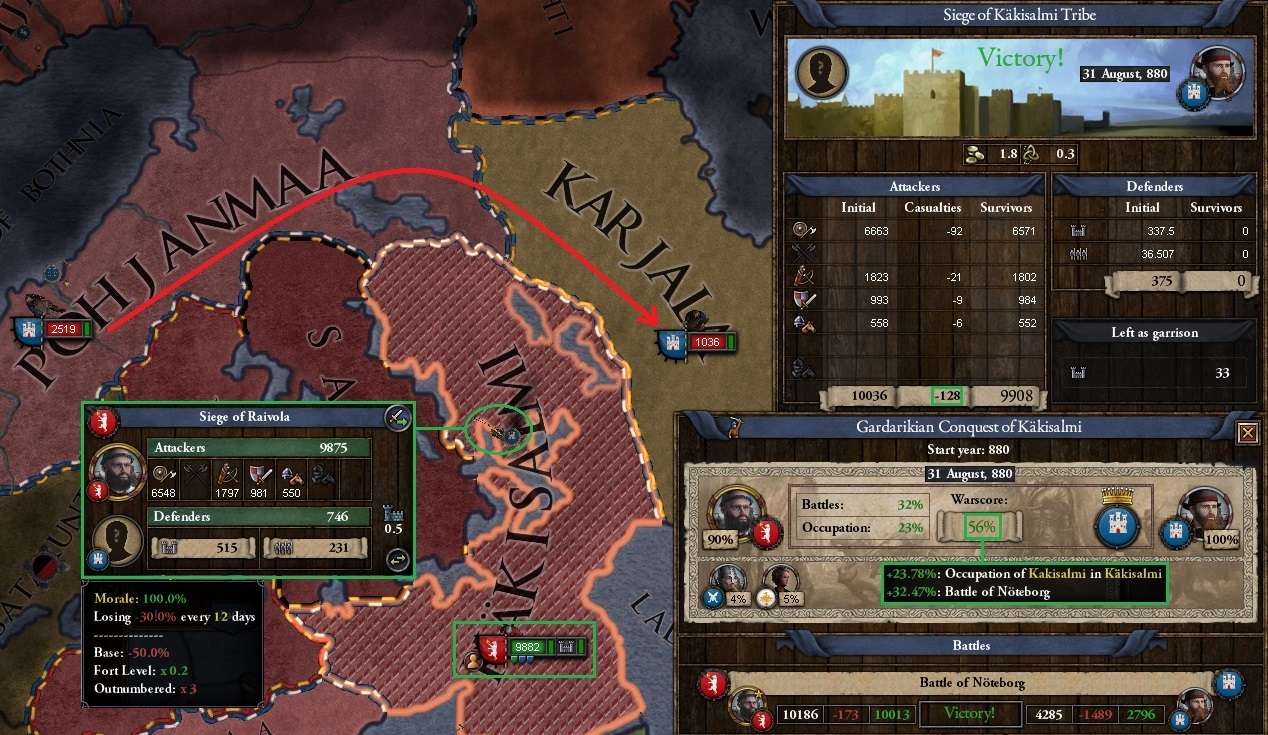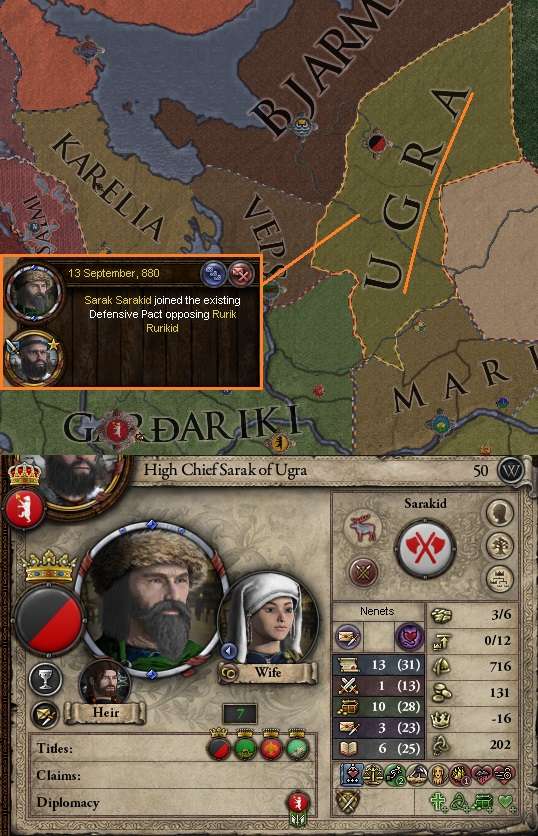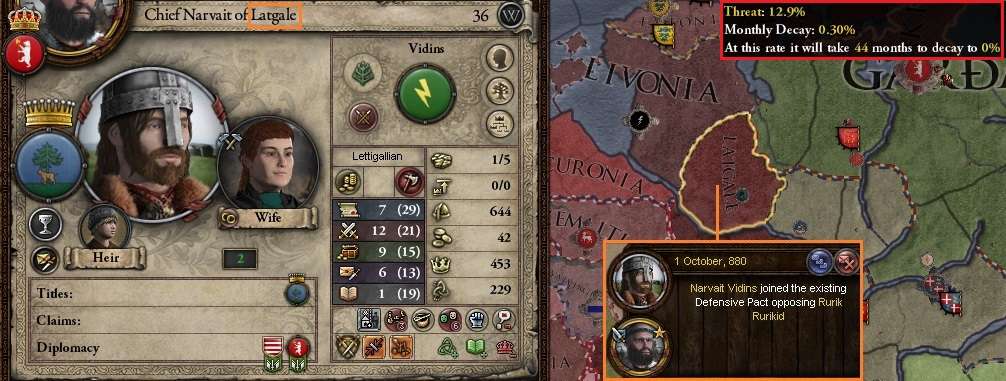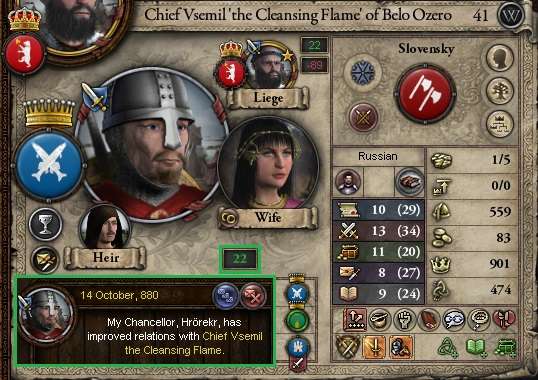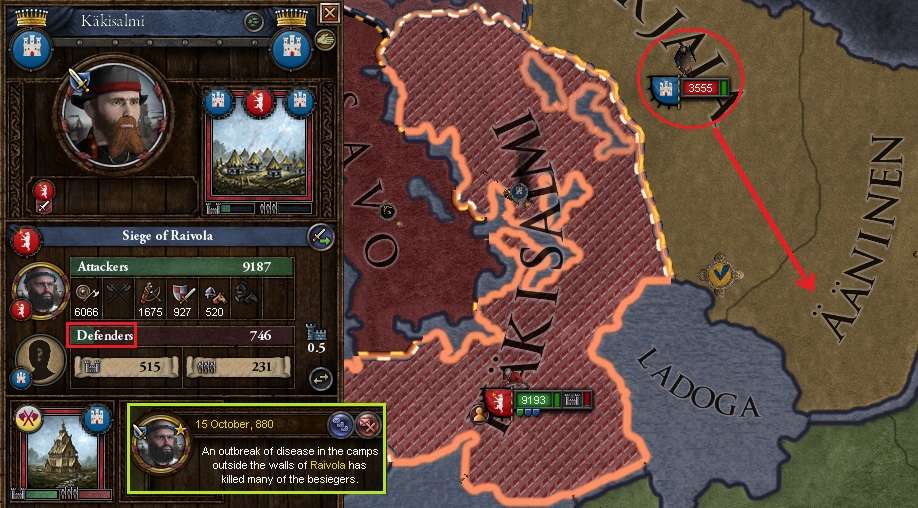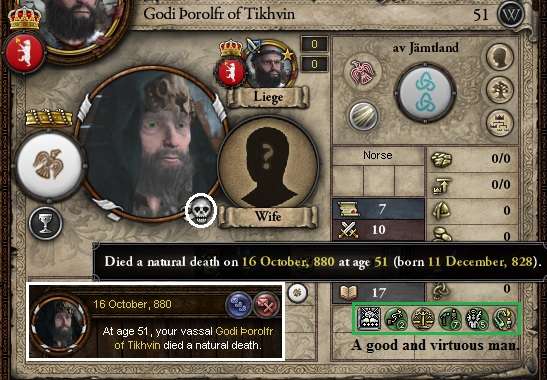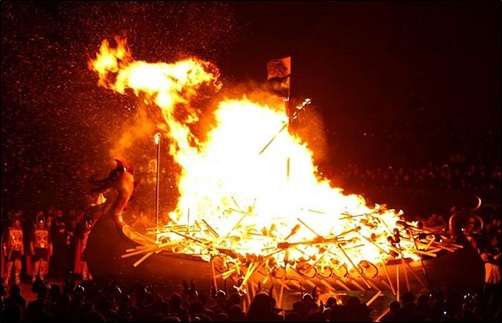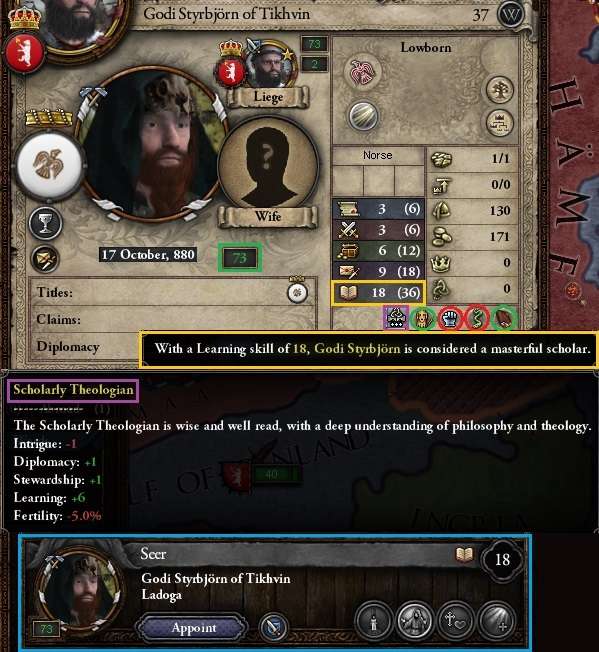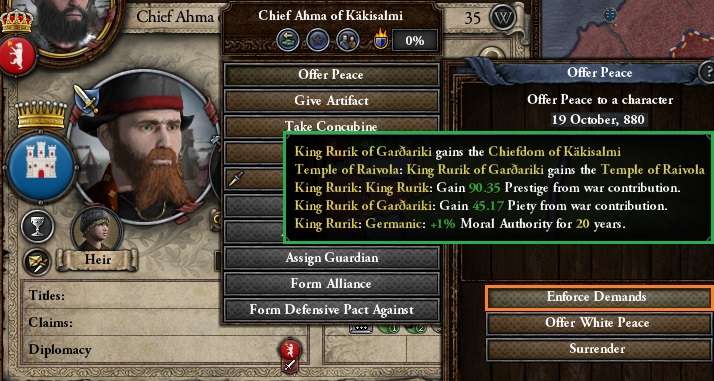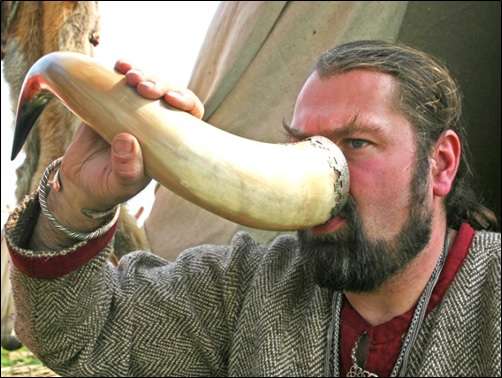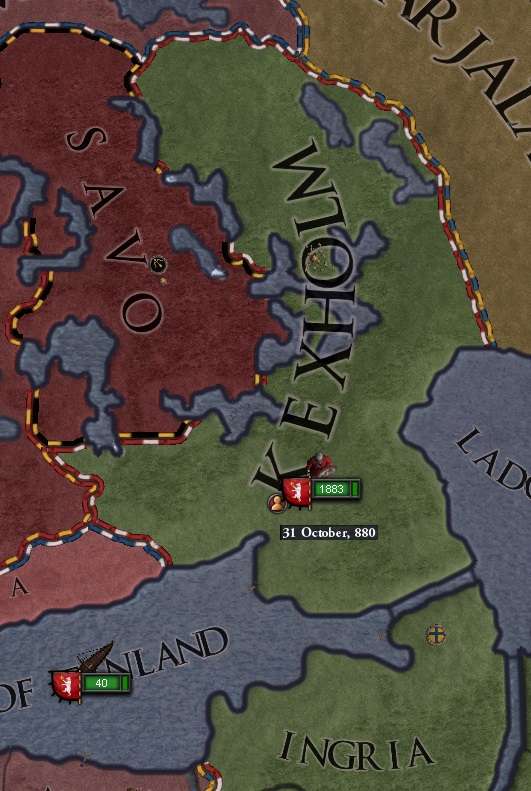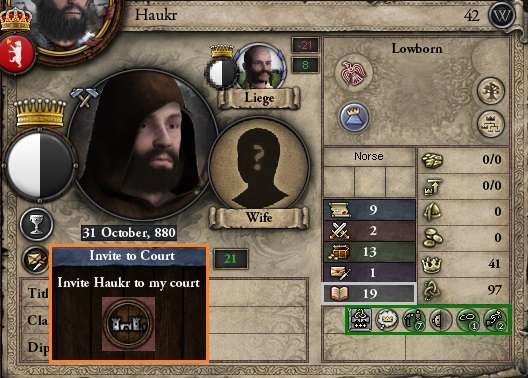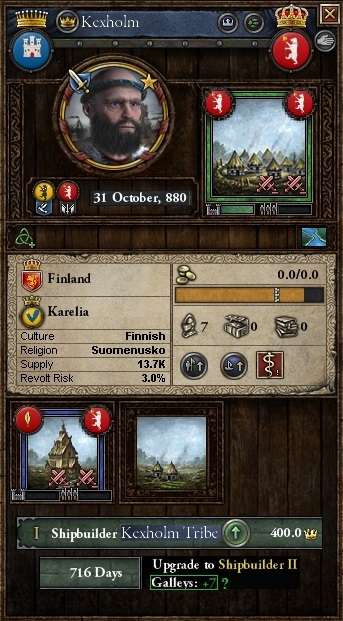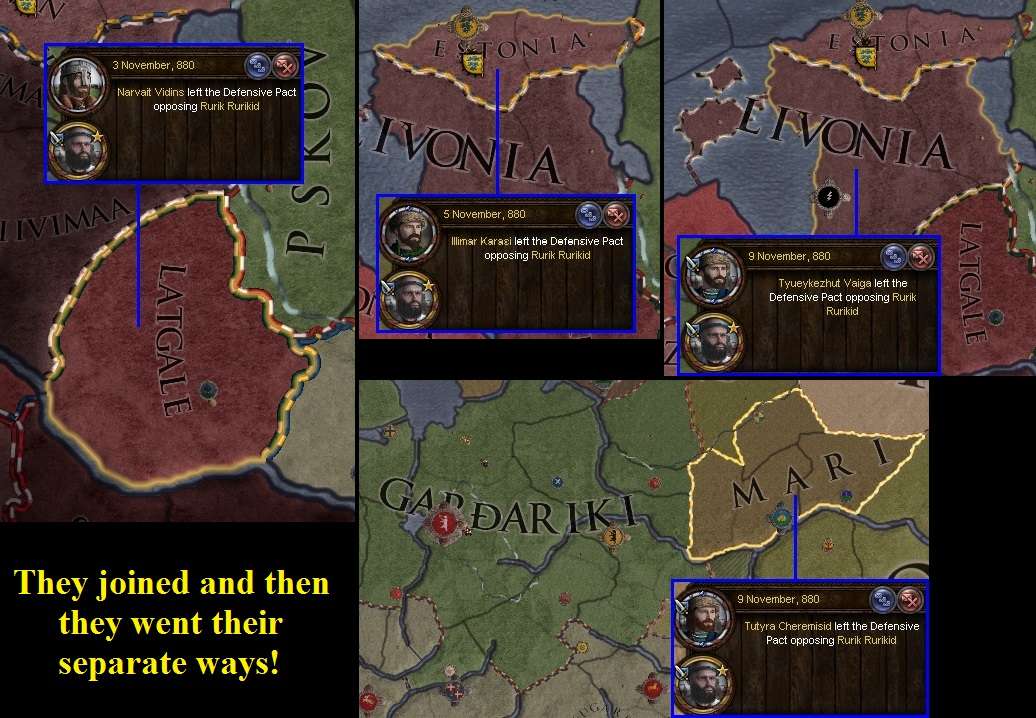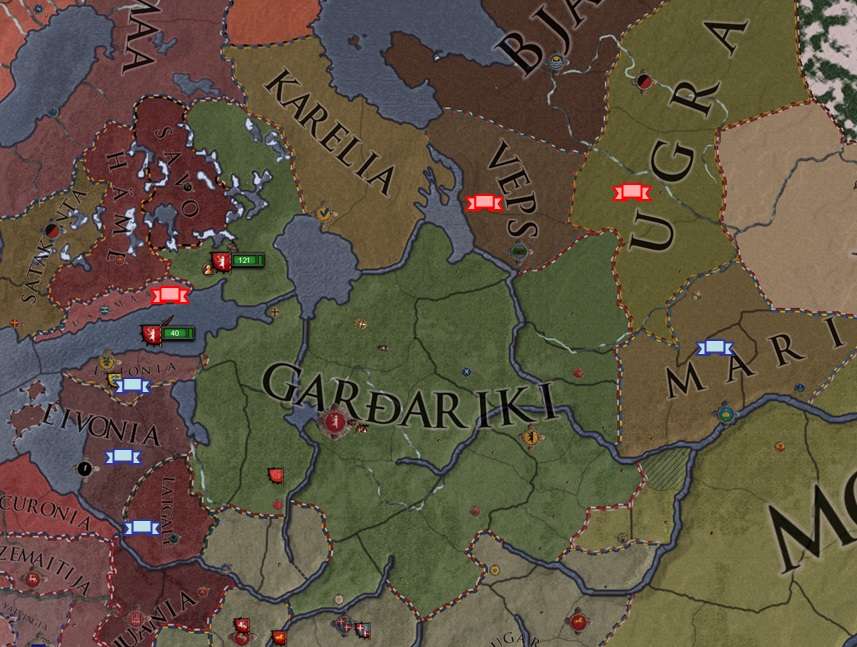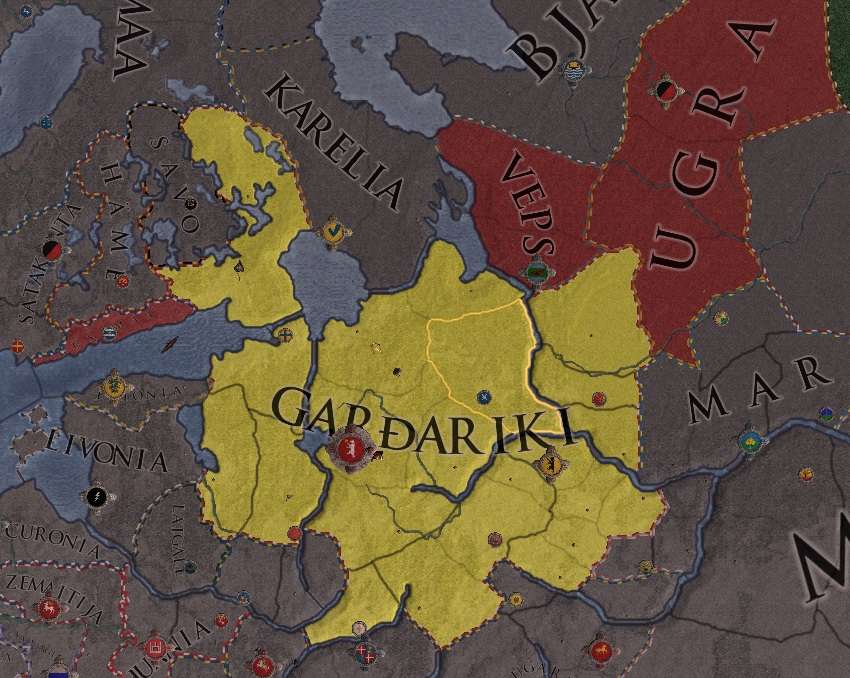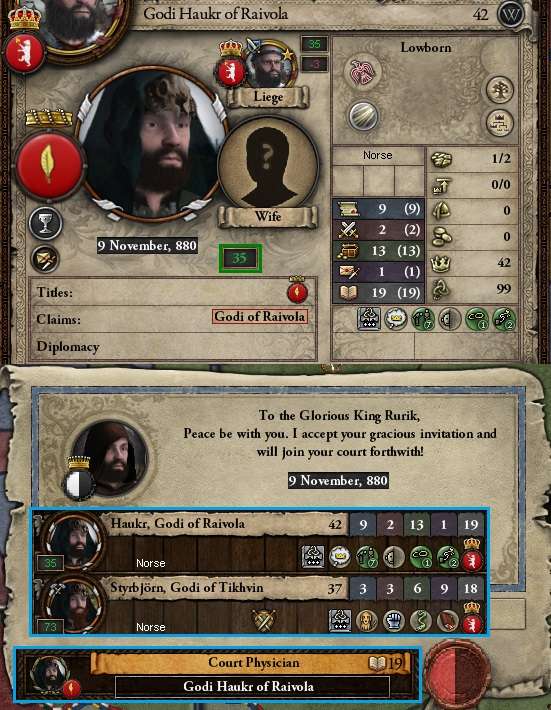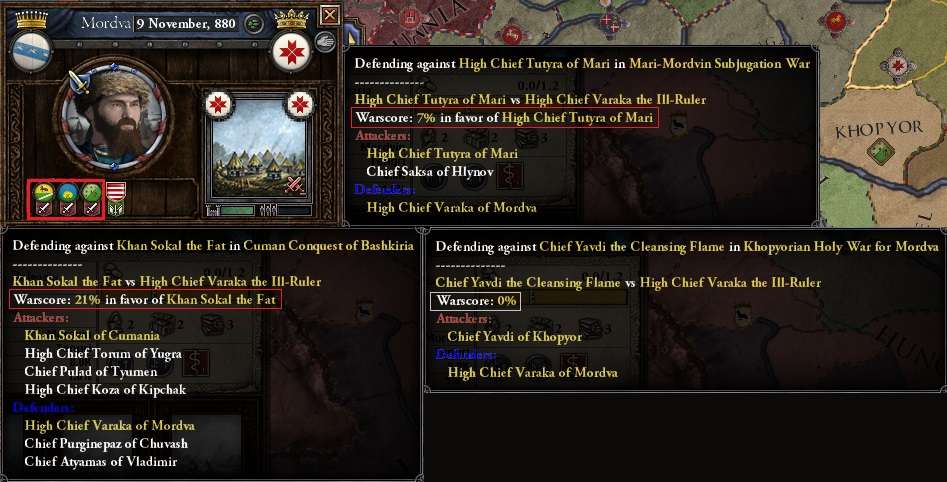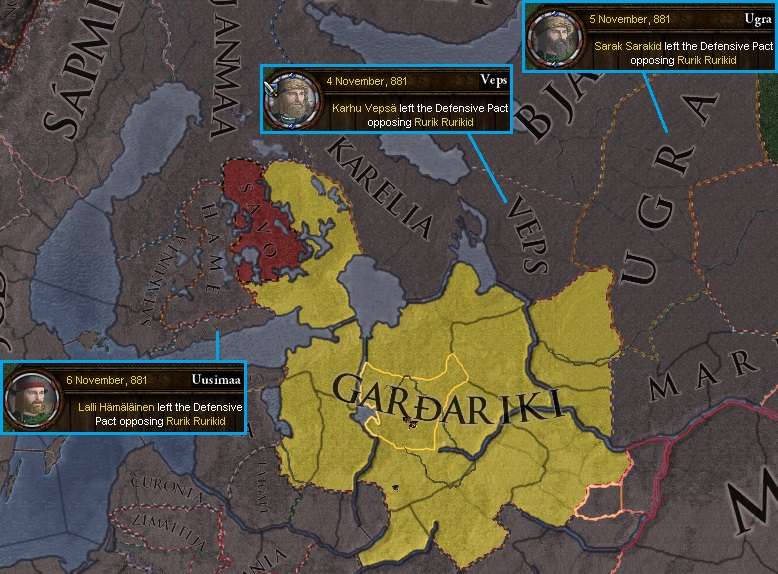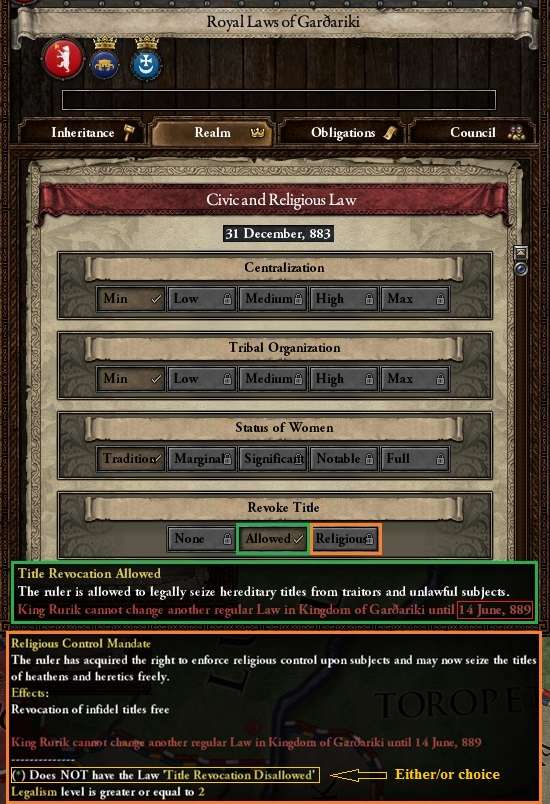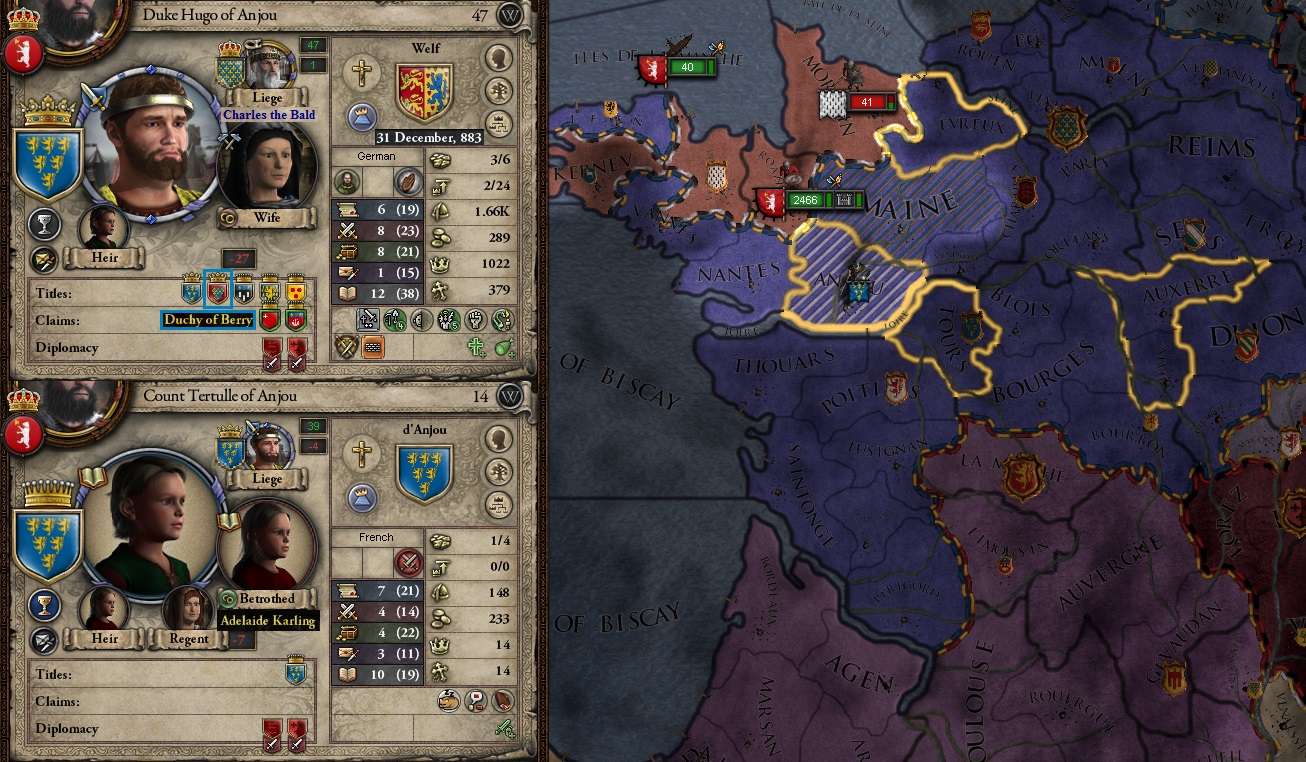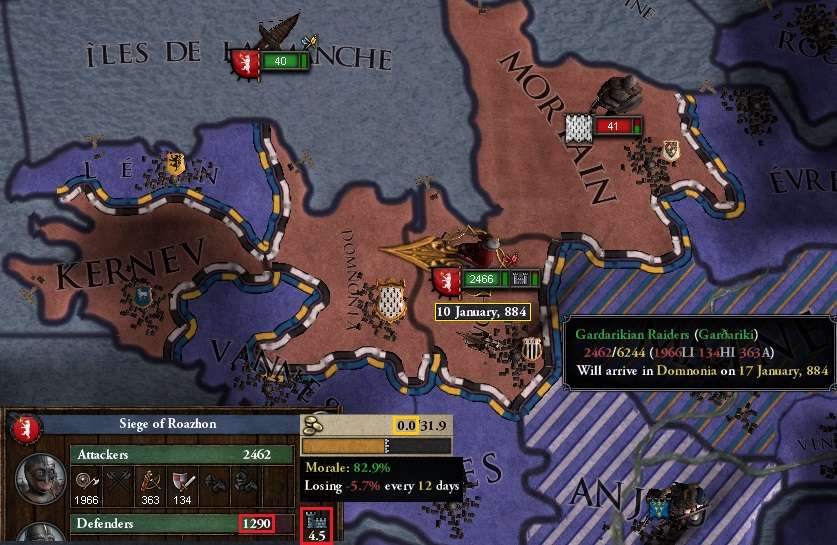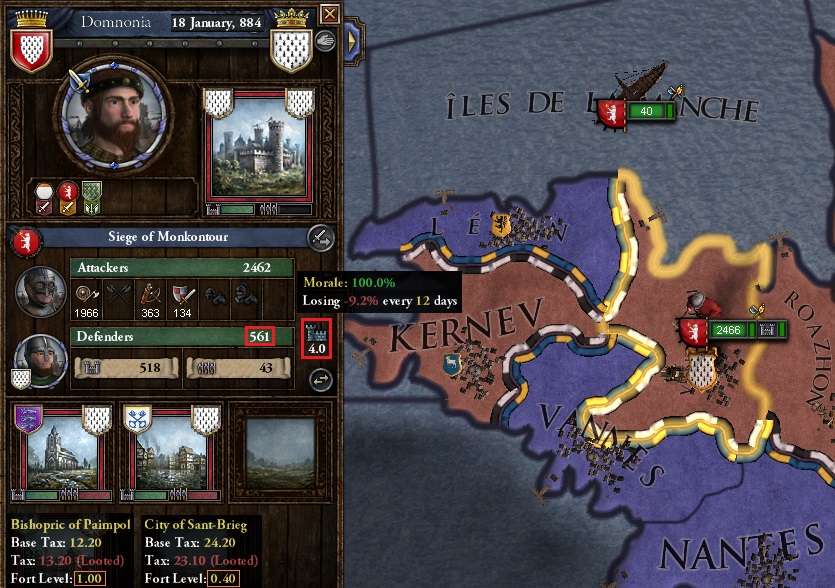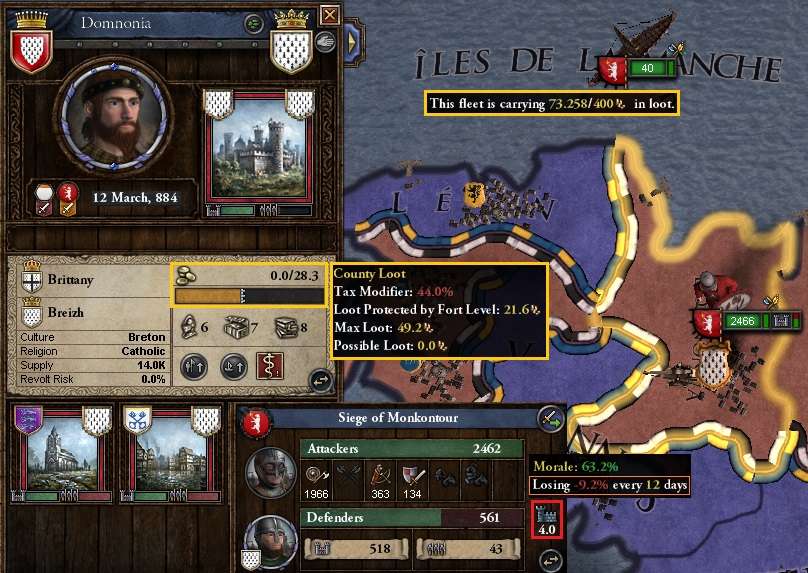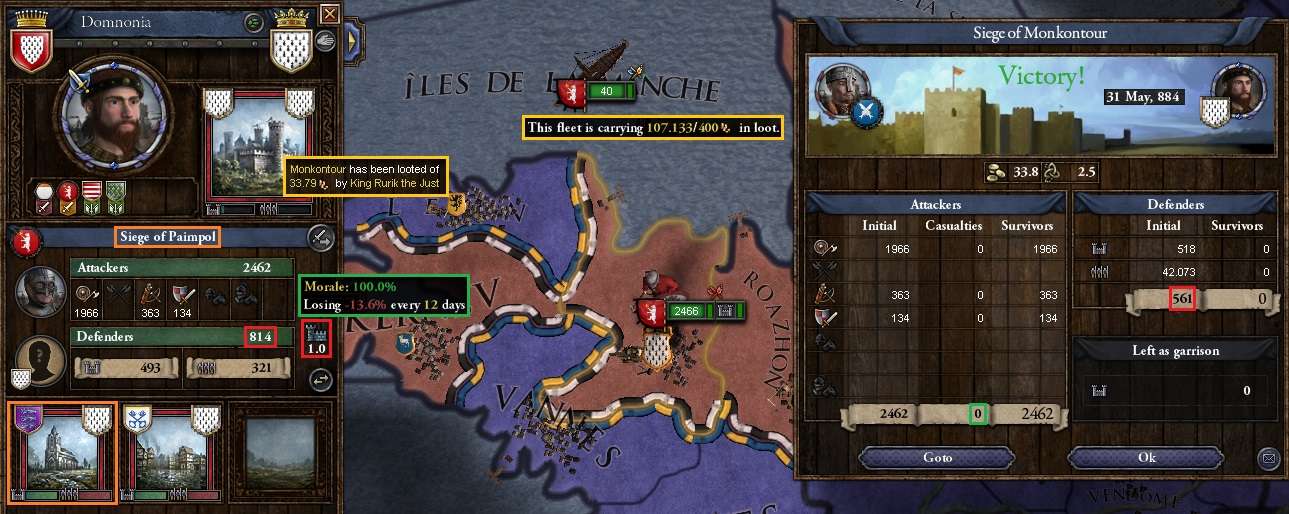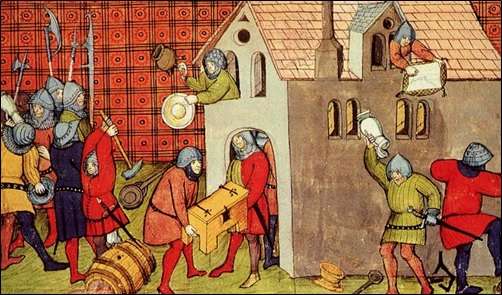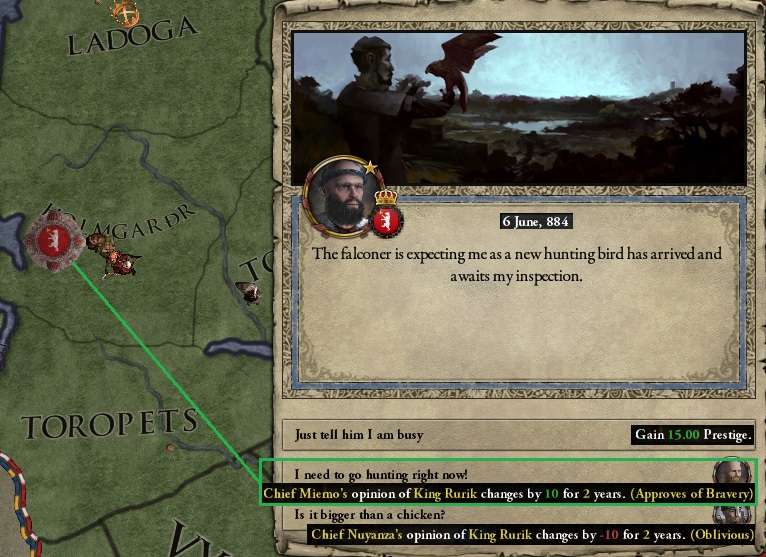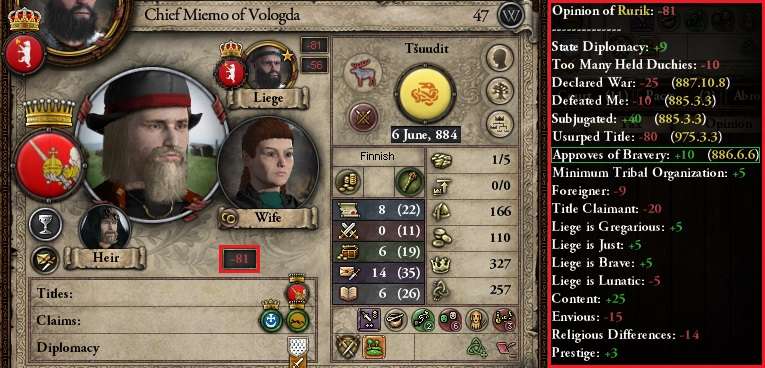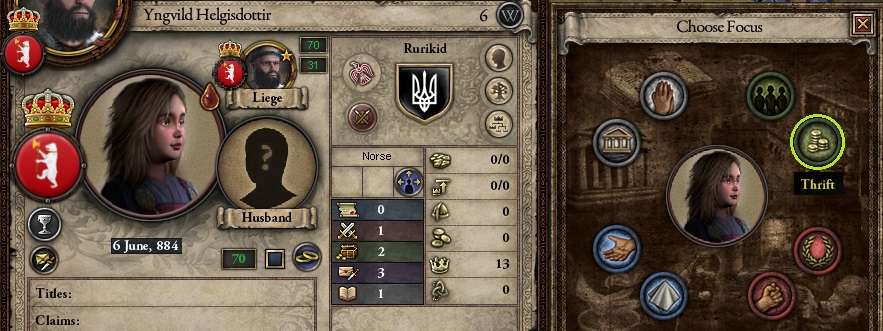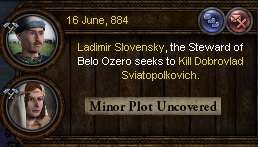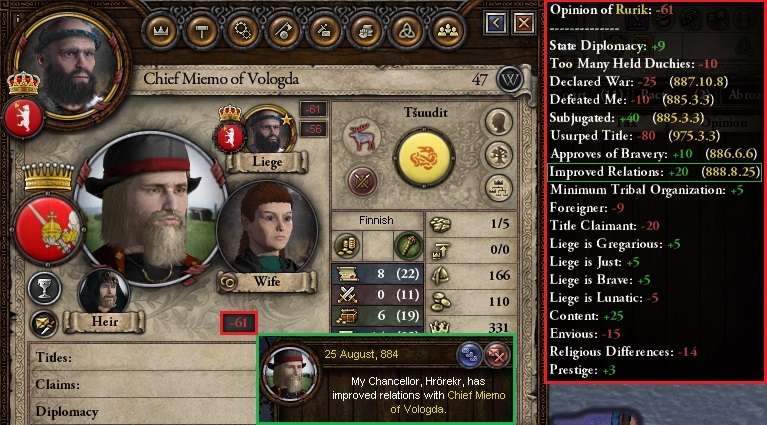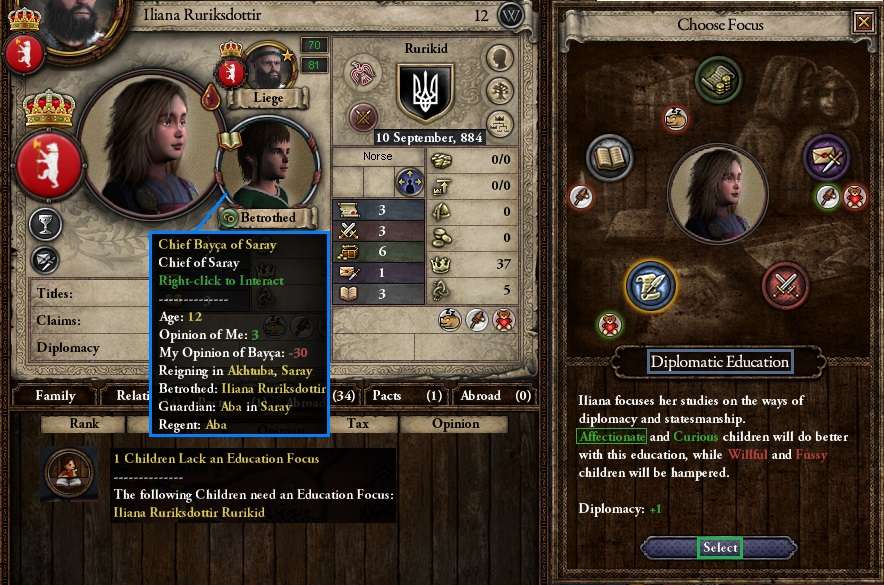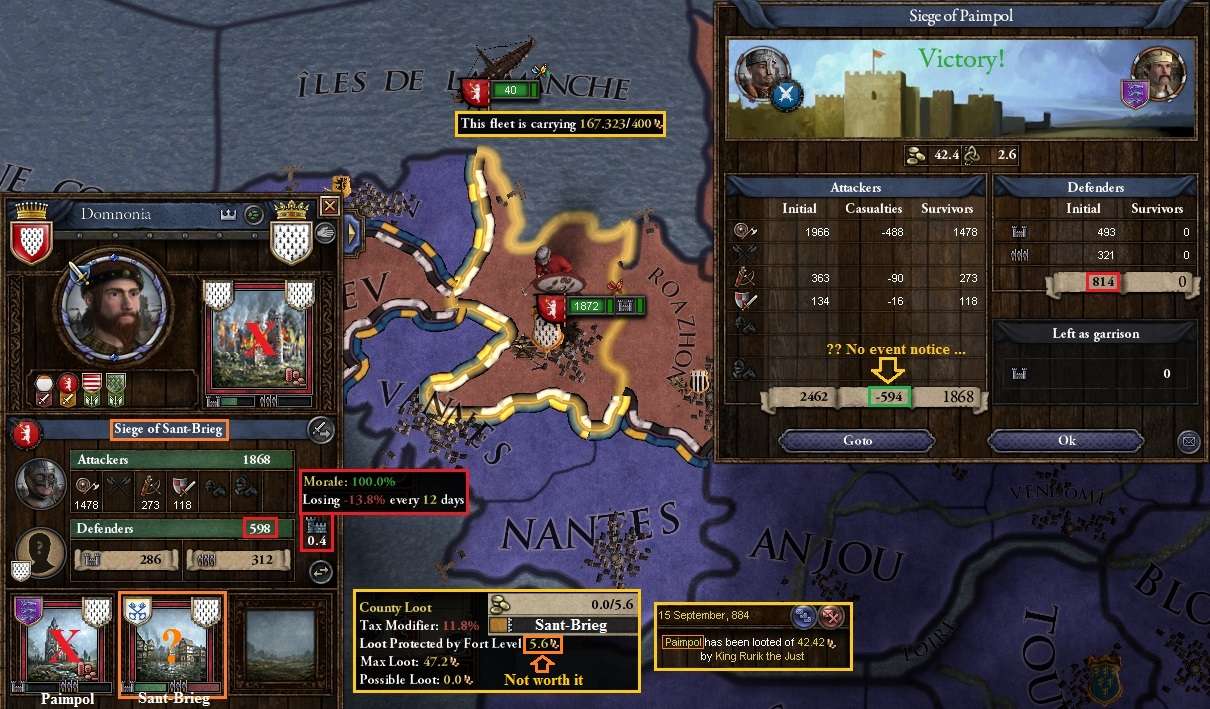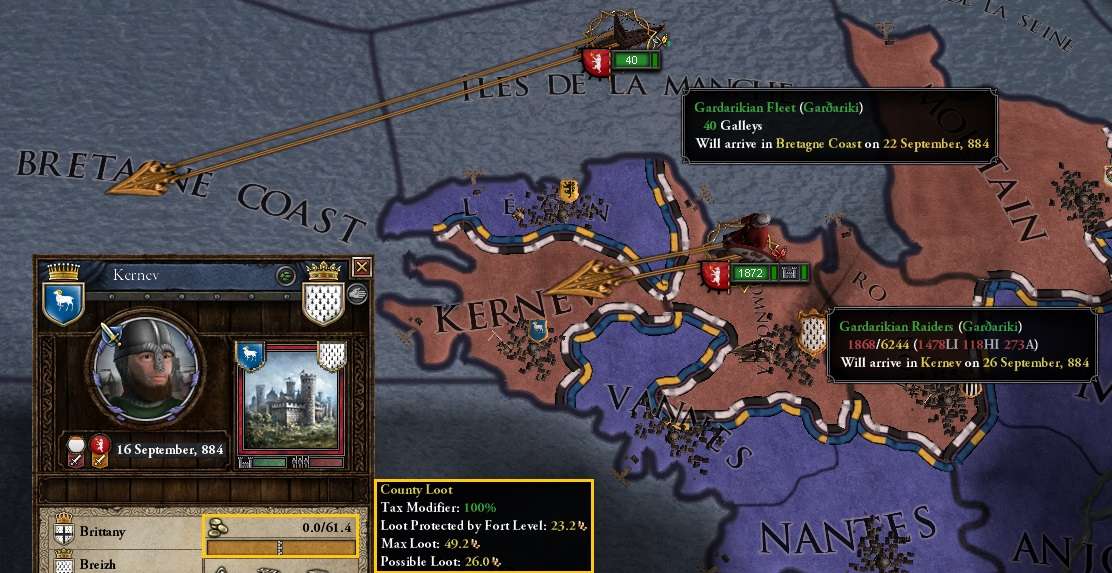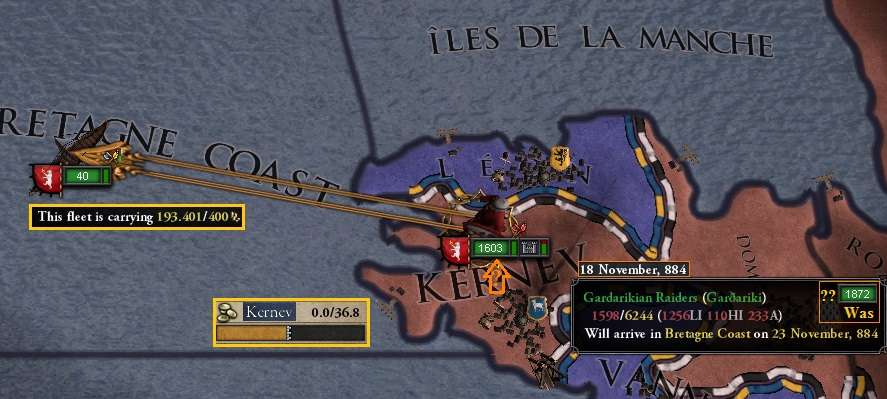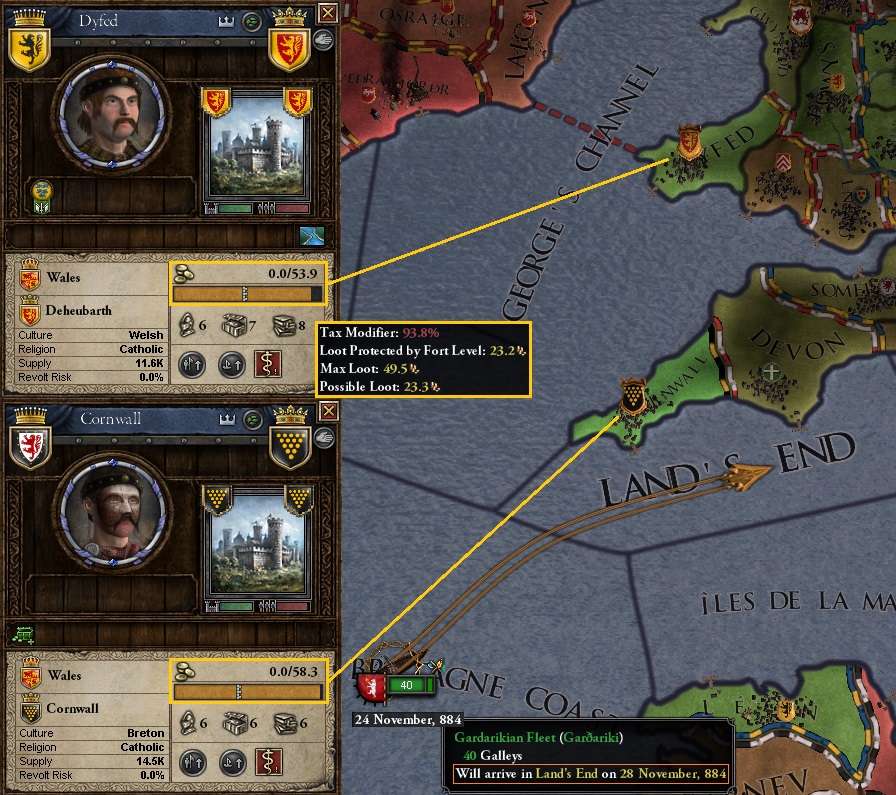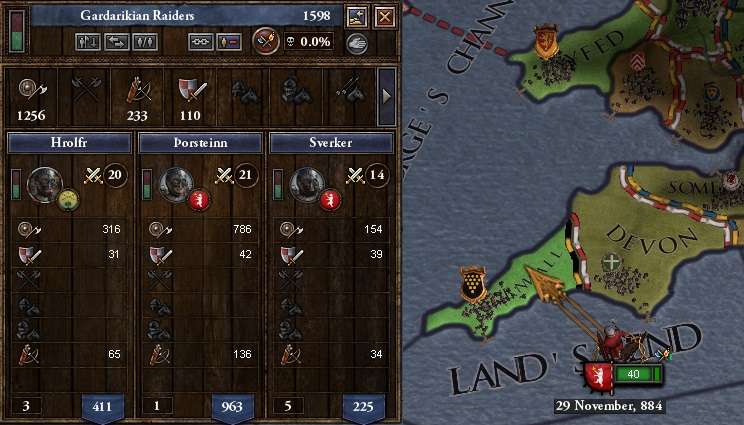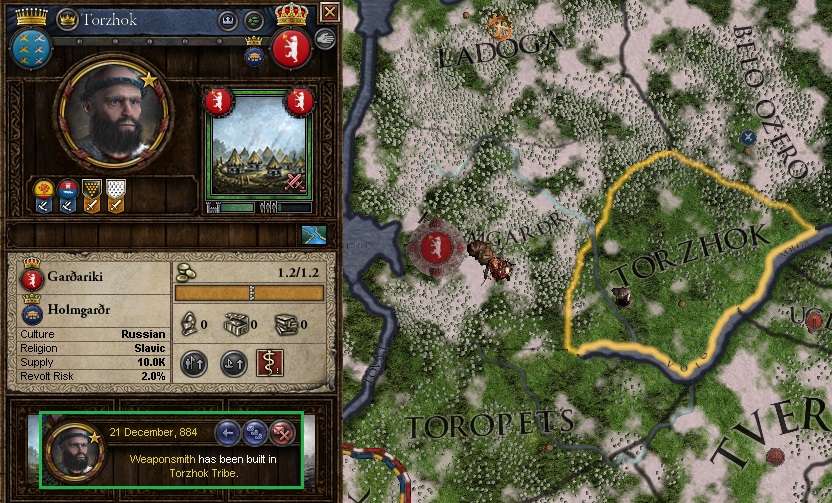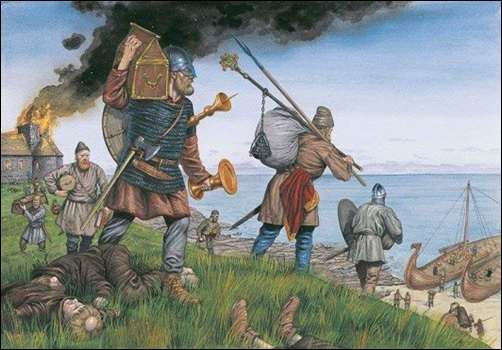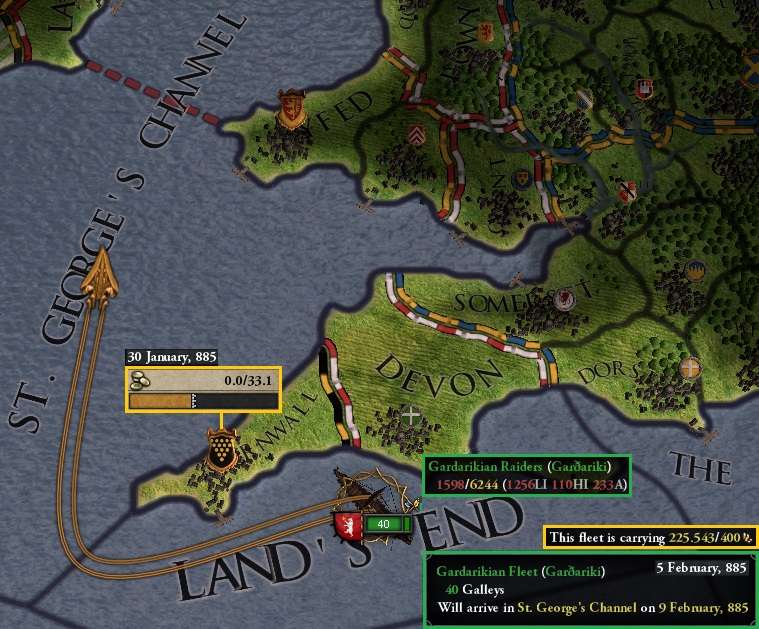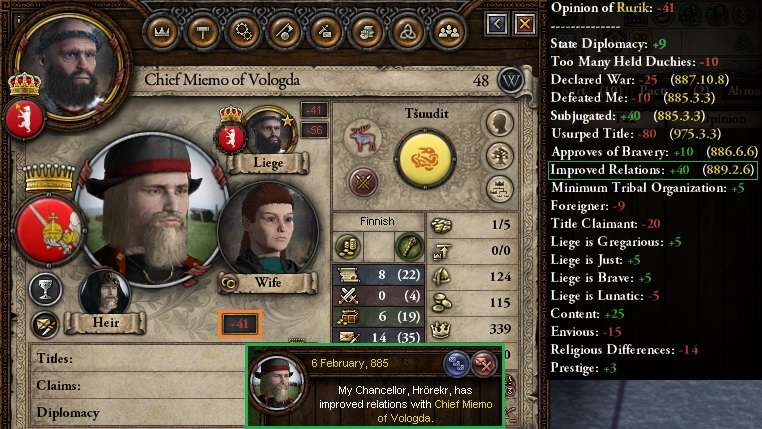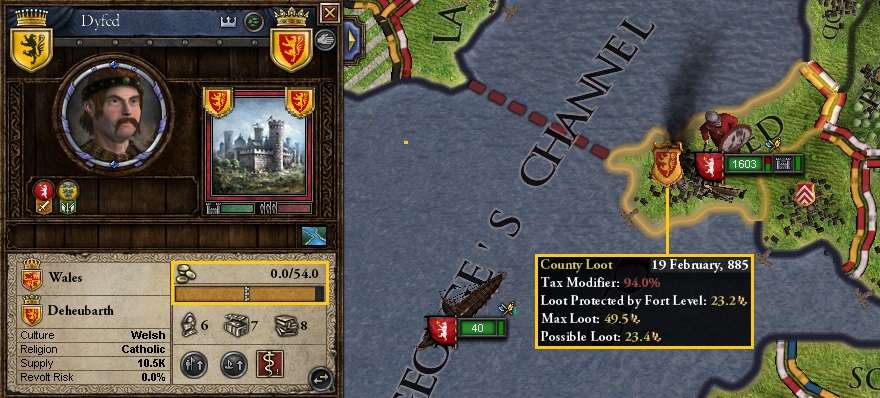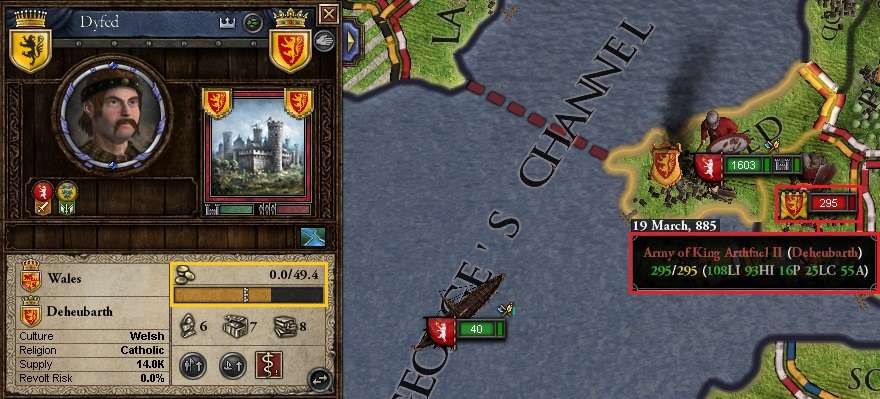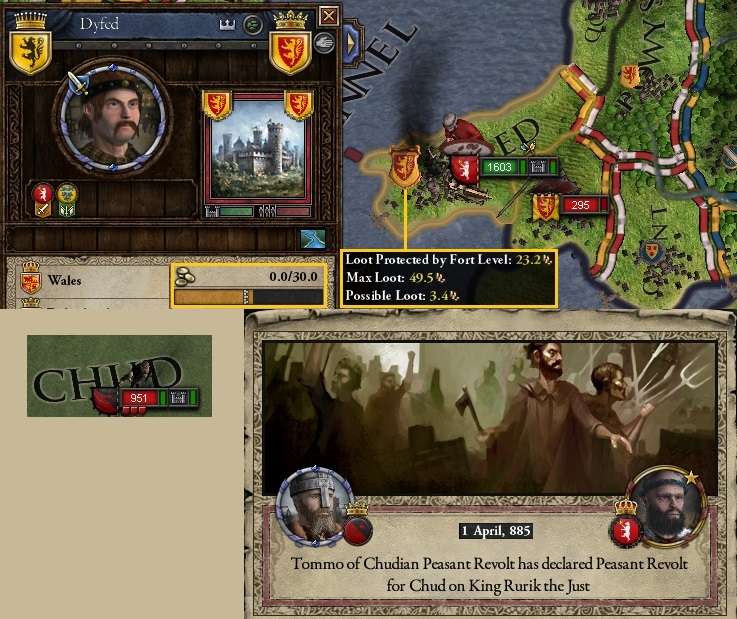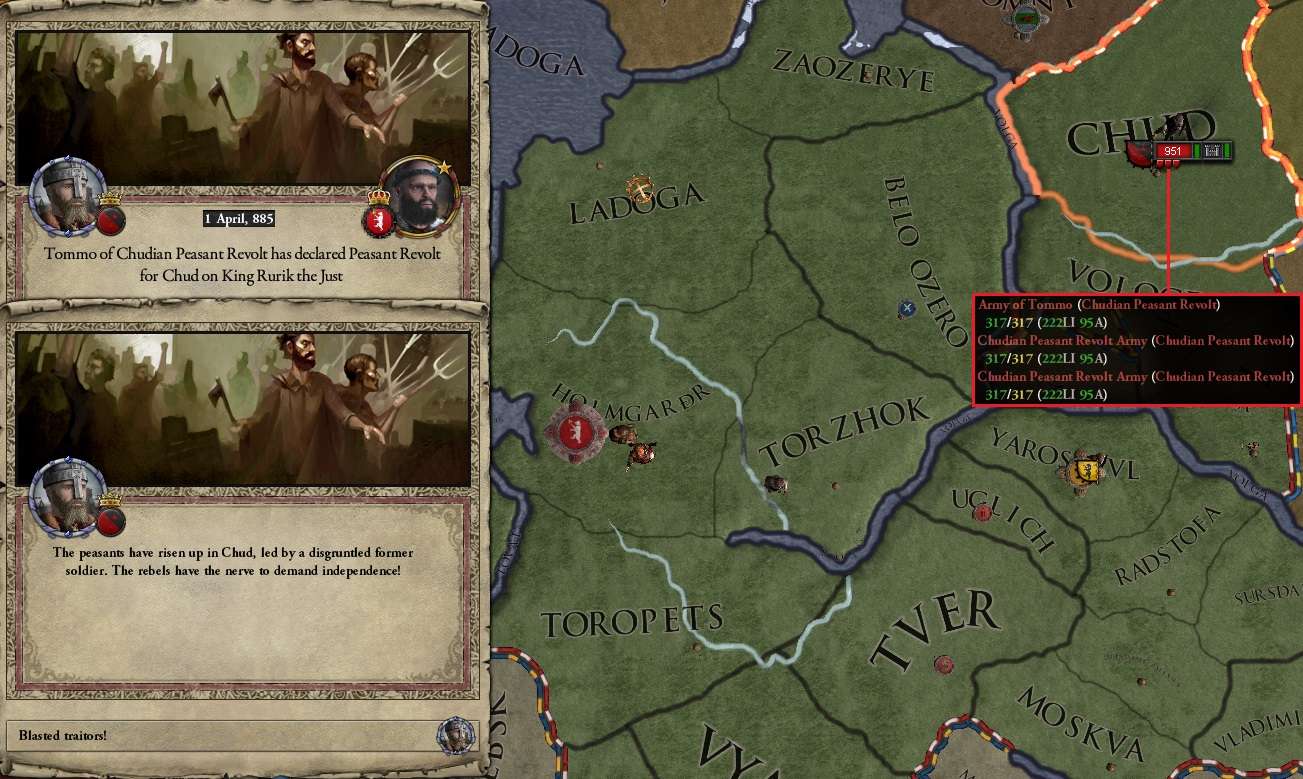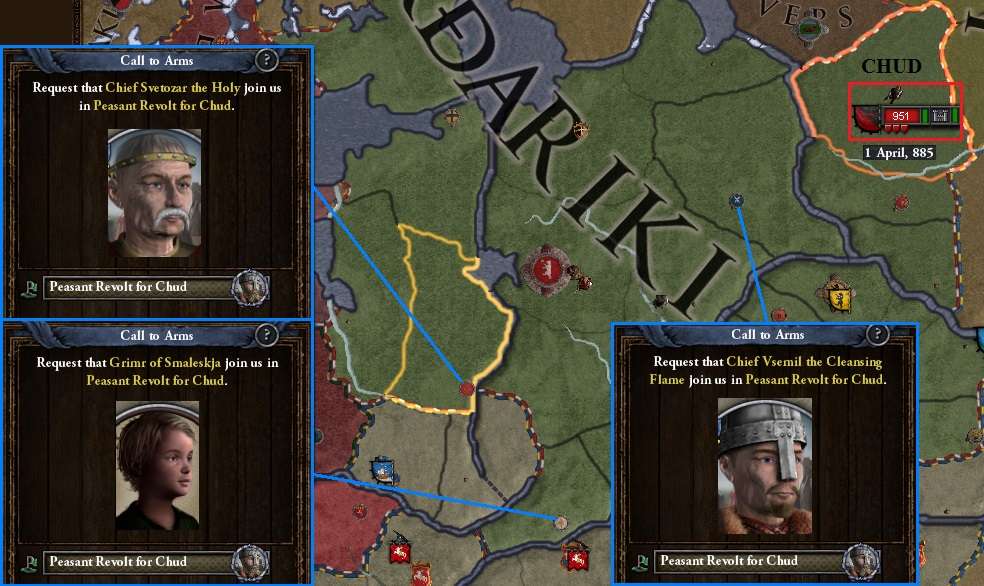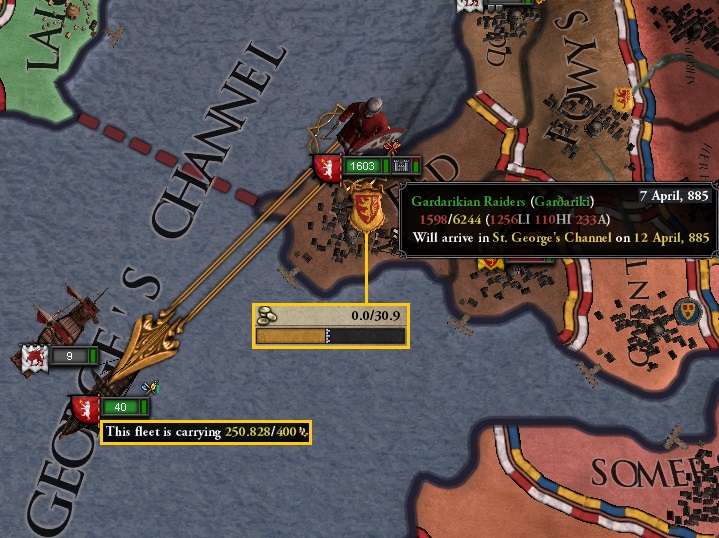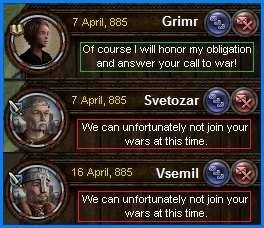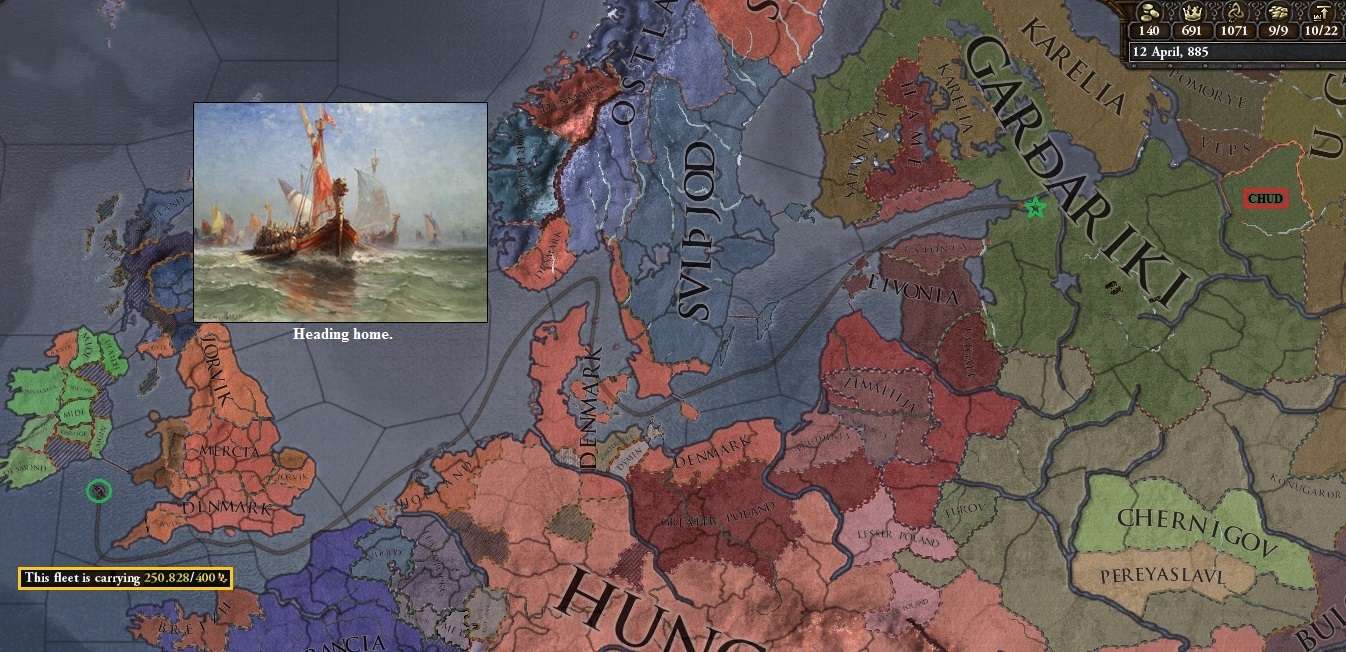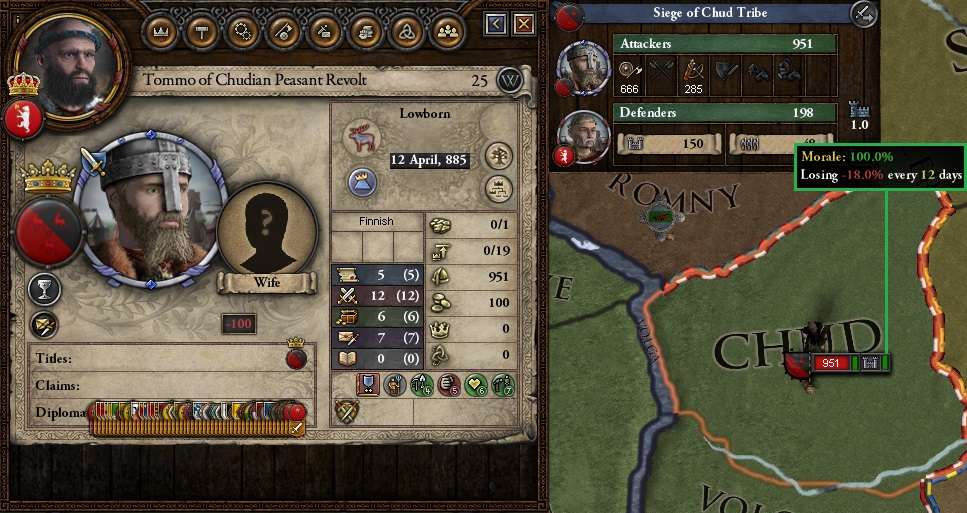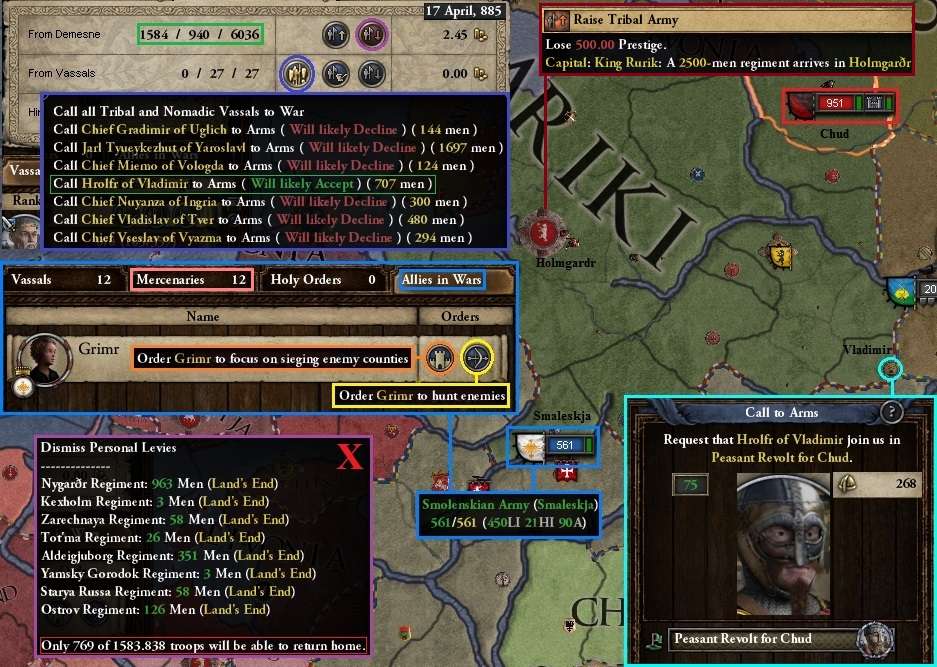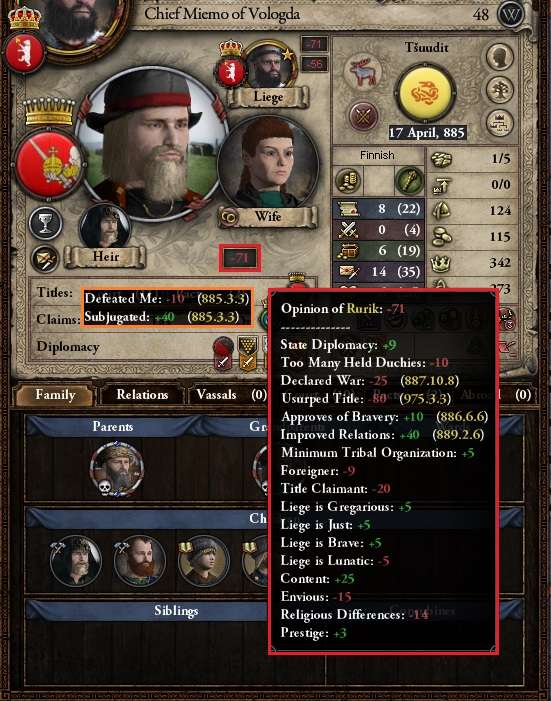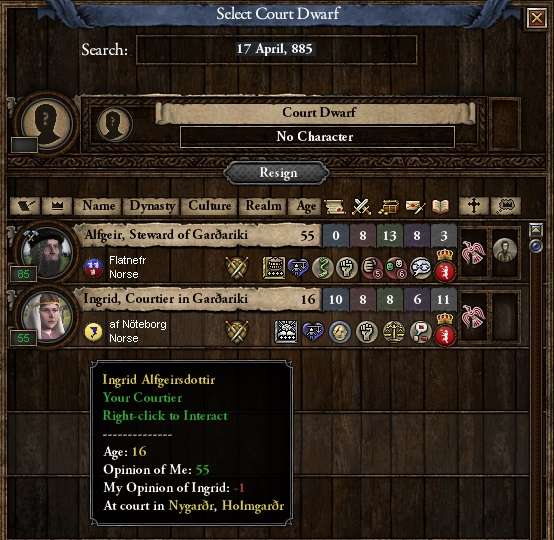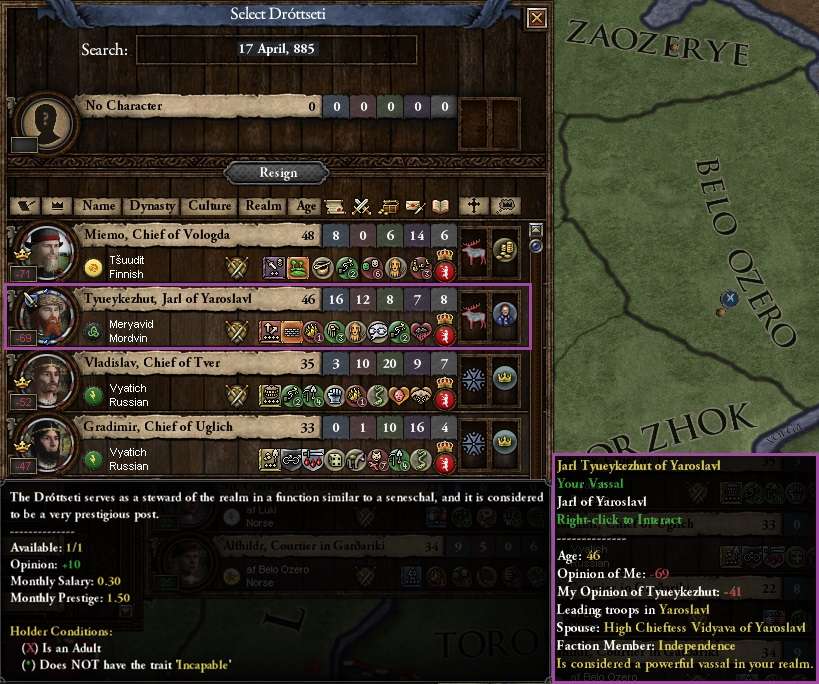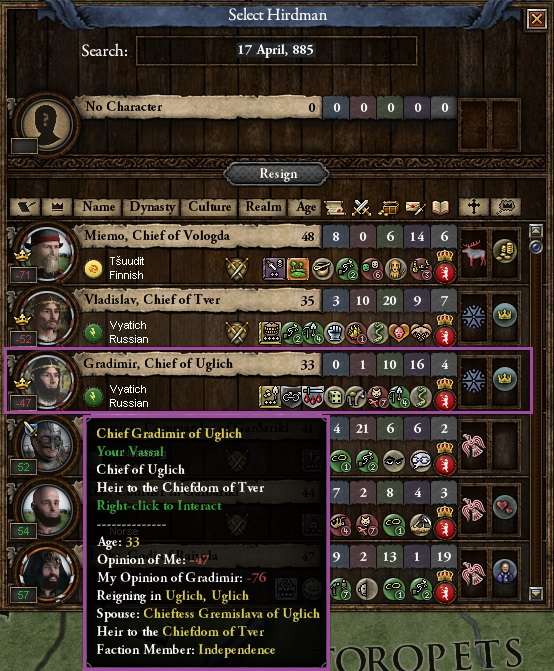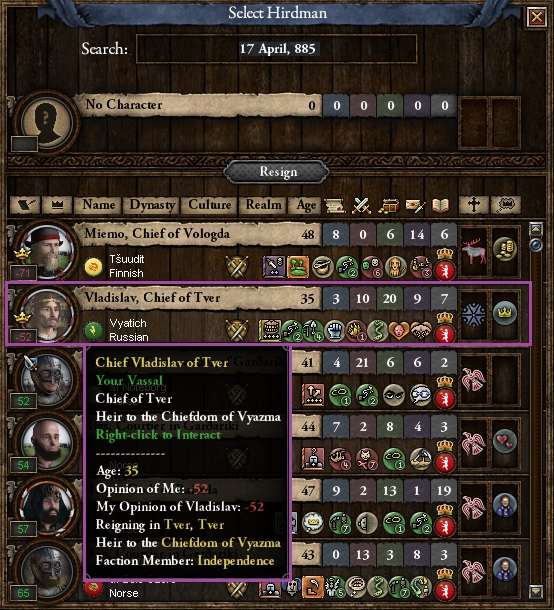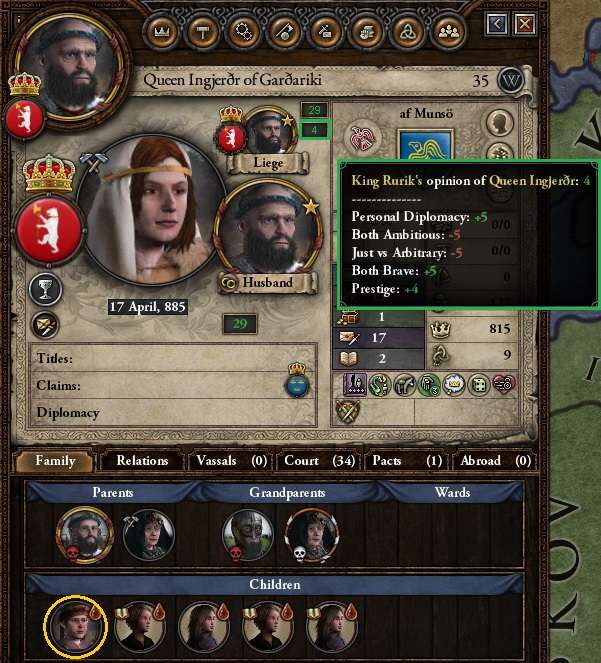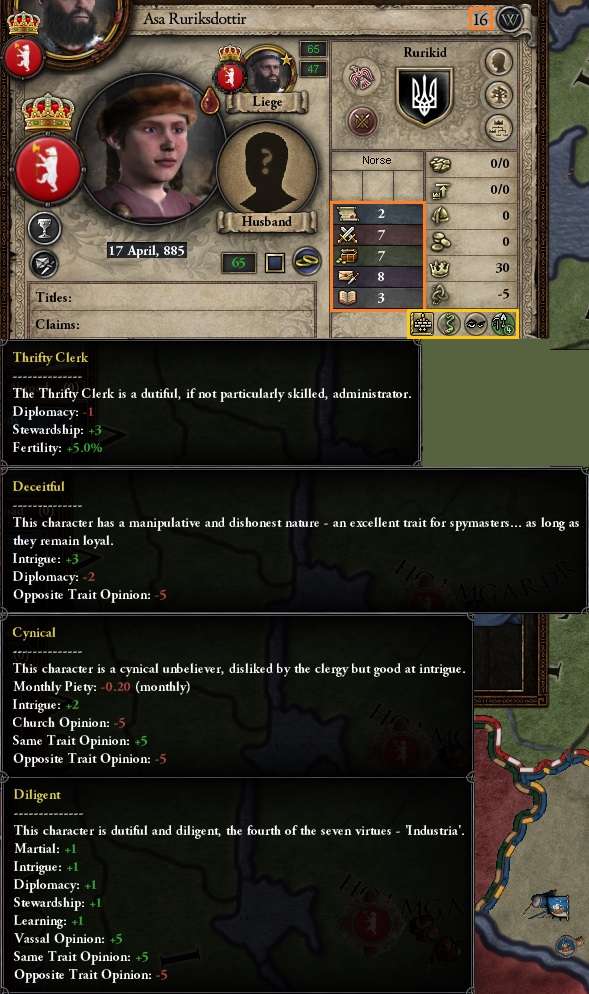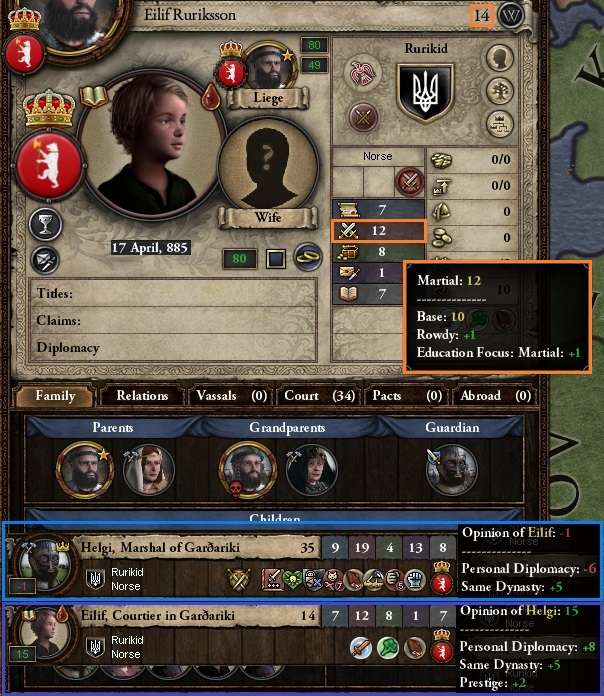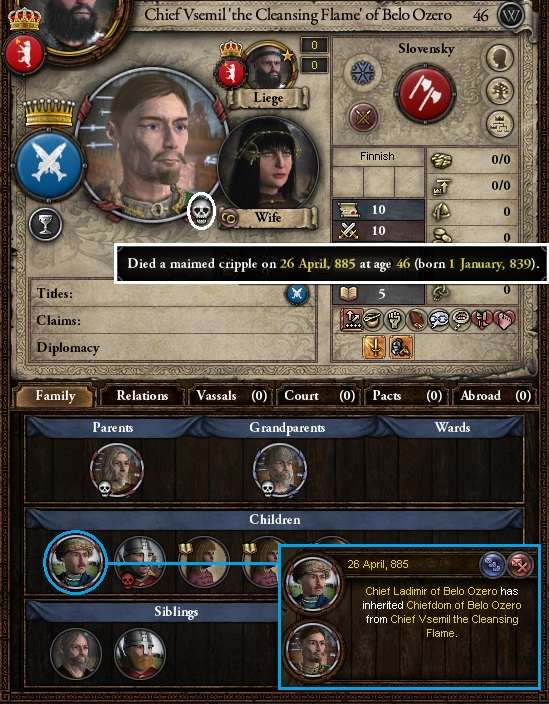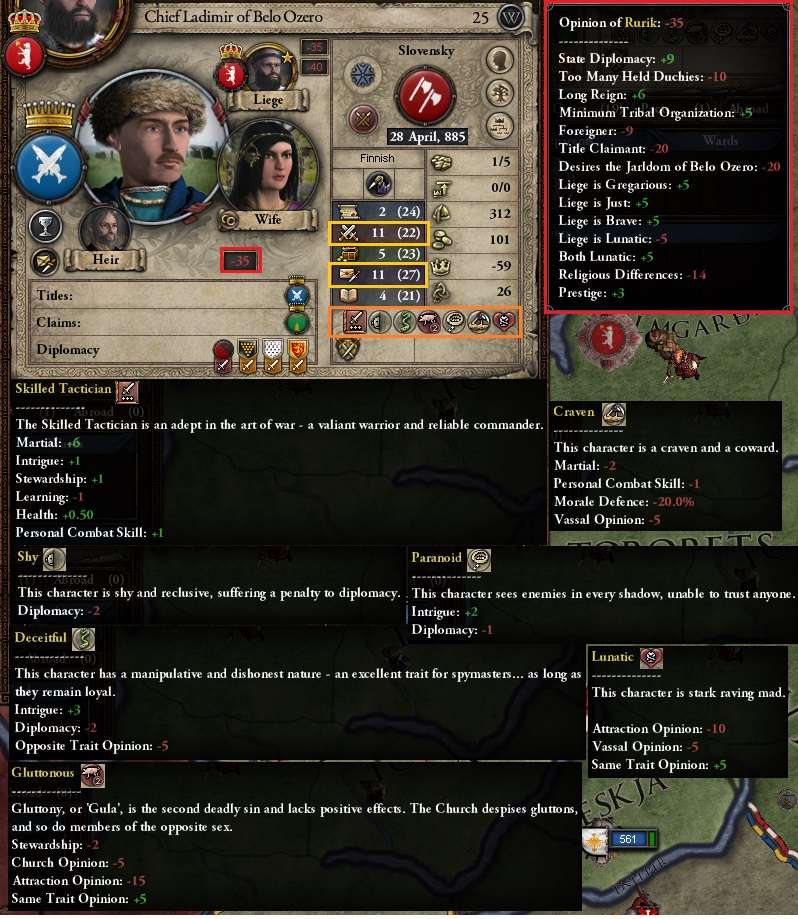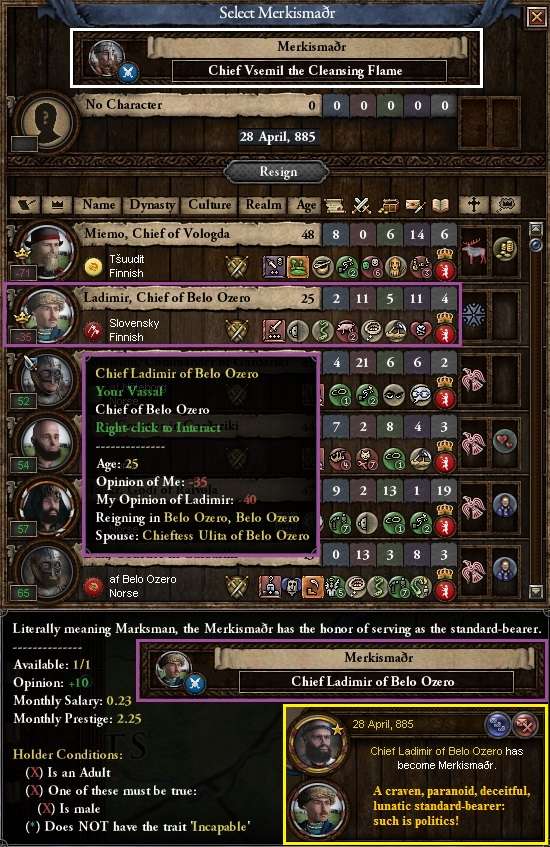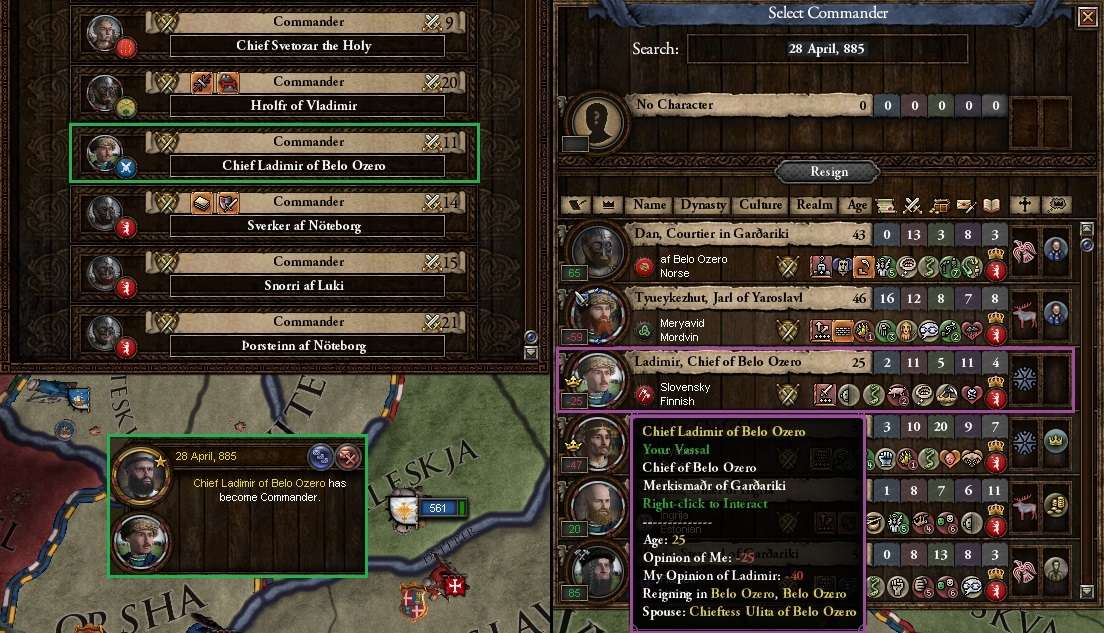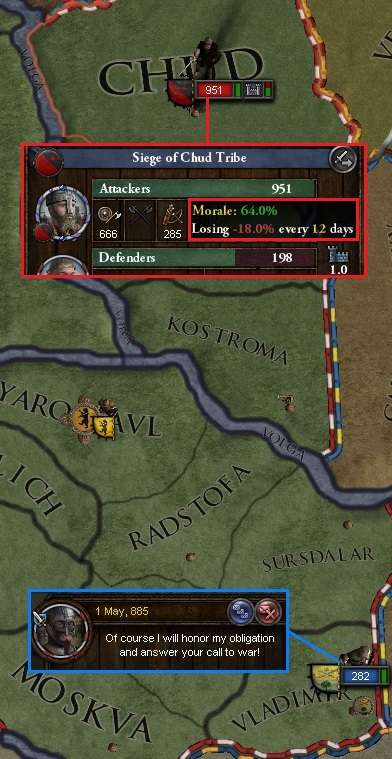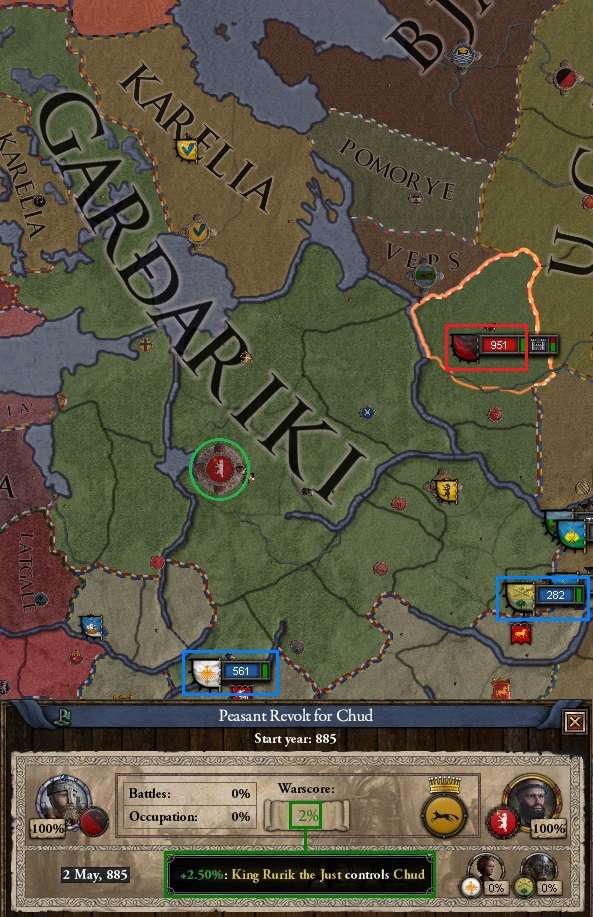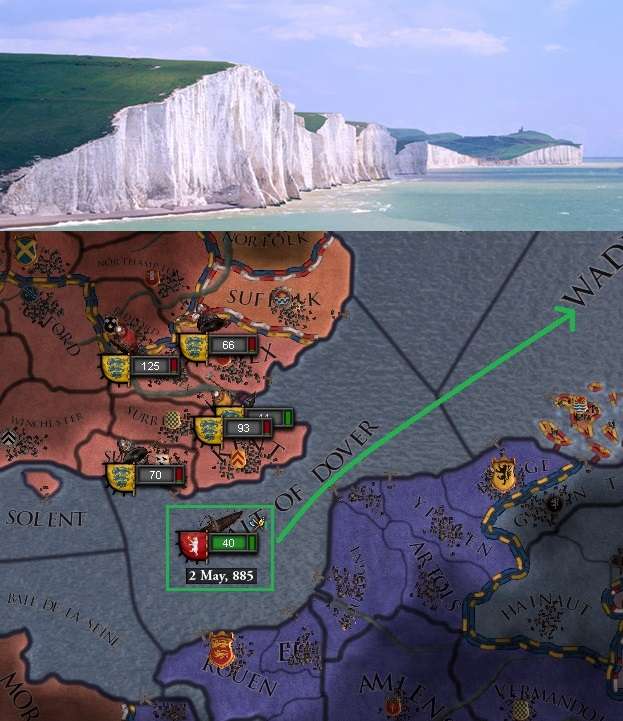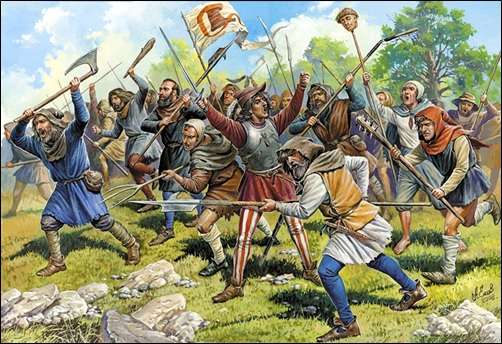The Twelfth Thing of Rurik's Reign – Nygarðr, 27 June 879 (a summary of advice from Chapter 34)
With the Kingdom of Garðaríki so recently established, many aspects of the new realm level laws, succession questions and possible outcomes from a successful subjugation of Merya (where war has been declared but no battles have taken place) are still being discussed and confirmed. On instruction from King Rurik, Chancellor Hrörekr has convened a meeting of the great and wise in the capital hold of Nygarðr to debate these arcane topics.
General Comments
I said: Although longer term, he would be looking back to the Baltic, where one or two coastal provinces within the royal demesne would be very useful for the founding of shipyards for those who would come after him – when his personally bound fleet of longships would return to their homes ports.
Ch34 Q1: Realm Laws 1. OK, given the unruly vassals I already had and have recently had many more forcibly added by subjugation, to me this was a no-brainer. I need this ace up my sleeve. But there are now some realm laws displayed that either I hadn’t looked at much before, weren’t there or have been added by the recent slab of DLC I got (all bar Jade Dragon now of the major expansions). First question: had I gone instead for Low Tribal Organisation, what do ‘Empowered Council’ and ‘War Declaration Committee’ do (briefly)? And in return for that, would I be able to directly ask my tribal vassals to provide liege levies (which I can’t at the moment), instead of having to ask them as allies? And in light of whatever the answer is, would this be worth pursuing as the next law reform (which can’t be attempted for ten years anyway)?
Per above, I was wondering when I should be generally aspiring to get whatever benefits accrue form giving more power to the council. As opposed to now, where they are just helpful gophers who do things for me but demand nothing and don't get to vote on my decisions!
Ch34 Q2: Realm Laws 2. ‘Low Tribal Organisation’ would (I presume in ten years’ time) give me the next option of changing to ‘Low Centralisation’. The demesne and vassal limit increase figures are simple to understand. Just a wise thing to enact when the chance comes? No real hidden drawbacks? One for the future (20 years off now, I guess), but just curious.
Ch34 Q3: Realm Laws 3. If this (Vassal Obligation Laws) was here before, I’d either not seen it or forgotten about it (maybe it’s a new Kingdom level thing). Looks like these are part of the ‘only one every ten years’ limit. Again, any here you think are worth aspiring too, in any particular order, or that need precursor tech advances or law changes? I see them appear in AARs every so often, but don’t really know what they do or how useful they are. Not after a full description (that can always be sought on the wiki, I guess): just broad thoughts and advice, shared experience, etc. Relative values may also differ from feudal to tribal realms, I’m assuming.
Ch34 Q4: Merya, Subjugation and Titles. So, above you have my working hypothesis on what happens next:
a) Rurik still gets all the current Meryan realm lands on victory, even the ‘undeclared’ vassals.
b) Though I’m hoping, because they won’t have had any titles stripped off them directly, it will just be swapping one liege for another and the others won’t be as angry about the change of management as Tyueykezhut.
c) The Jarldom of Merya title would transfer across ready-made, with that fourth Jarldom (whether Merya or another, determined by some unseen pecking order of seniority/value) going to Helgi.
d) I could then also create Rostov if I wanted to (though don’t see why I would as yet).
Any additional or contrary views or advice always welcomed. Will need to come to grips with all that by the time the victory is secured and Tyueykezhut becomes the next to be forced into ignominious subjugation. Rurik is nothing if not grand and arrogant these days. This is a way for him to substitute figurative for actual cohones!
As always, many thanks to those who comment and those who read. Off now to give those heathen Mordvins of Merya a damned good thrashing, Viking-style!
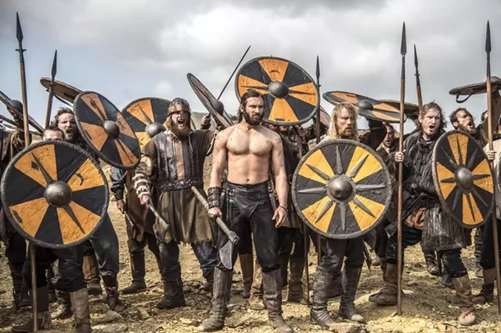
“Óðinn á yðr alla! (Odin owns you all)!” “Tyr!” “Have at ye, ye worthless heathen Mordvins!” etc etc
A single spear will soon be thrown over their heads – if the tricksy scum can summon the courage to stand before us in an open field of battle!
With the Kingdom of Garðaríki so recently established, many aspects of the new realm level laws, succession questions and possible outcomes from a successful subjugation of Merya (where war has been declared but no battles have taken place) are still being discussed and confirmed. On instruction from King Rurik, Chancellor Hrörekr has convened a meeting of the great and wise in the capital hold of Nygarðr to debate these arcane topics.
ᚔ ᚱᚢᚱᛁ ᚲᛁᛞ ᚔ
General Comments
A new Kingdom to stand astride the world. I have to say i didn't expect that, but it did make me smile when I "saw" it happen.
Thank you both – more power to Rurik’s arm!Glory to the Reich of Cities!
And as always I’m grateful that you have.finally found some time to reply
I have only a little experience with [Qs 1-3] those so I'll pass but I find it that instead of revoking a title I like just waiting for them to revolt and hand the title to me on a platter better.
I honestly don’t know where to get someone for this. If anyone has any good ideas on where I might find someone with all the right characteristics (including being Norse Germanic), I’d happily look there.[Re New Appointments] It's nice that the Norse have a court vulva. No wonder though there are no available candidates. Maybe you can find one among the Byzantines
OK, being new to the game, by ‘people finder tool’ do you mean the screen that pops up when you click on the vacant position? Or the list of court characters? Or is there another function I’m missing? The reason I’ve been asking for new blood (for example with the new commanders and wives for them) is that all the local talent wasn’t up to scratch (and I’m trying to populate with Norse Germanic courtiers to bring religious and cultural change by osmosis). In this realm, the talent pool seems to be very small – could be because it’s at the start? Or that I haven’t been looking in the right place. If you could give me a screenshot of the button/pool your’re talking about and where you access it, I’ll be able to see if we’re talking about the same thing – but my available talent is just not good enough yet.Why are you using the promote commander and present debutante decisions? I never used them and always called people from the people finder tool. Maybe I was doing something wrong but I think there was a better selection there. Not that the ones you got were not good enough, I just was too lazy to fire the decision and just grab whoever I liked from the pool.
I said: Although longer term, he would be looking back to the Baltic, where one or two coastal provinces within the royal demesne would be very useful for the founding of shipyards for those who would come after him – when his personally bound fleet of longships would return to their homes ports.
Yes, has been worrying me too, but raiding and kingdom building have so far been the priority. I’ll try the Baltics: hopefully any obstacle can be bull-dozed through (without making me the baddest boy in the known world – or after Arpad of Hungary, anyway, who has 30 countries in pacts against him!This has been a constant source of worry for me. If there is some obstacle on Baltics, you can try the polar sea as well but Baltic is the better target.
ᚔ ᚱᚢᚱᛁ ᚲᛁᛞ ᚔ
Ch34 Q1: Realm Laws 1. OK, given the unruly vassals I already had and have recently had many more forcibly added by subjugation, to me this was a no-brainer. I need this ace up my sleeve. But there are now some realm laws displayed that either I hadn’t looked at much before, weren’t there or have been added by the recent slab of DLC I got (all bar Jade Dragon now of the major expansions). First question: had I gone instead for Low Tribal Organisation, what do ‘Empowered Council’ and ‘War Declaration Committee’ do (briefly)? And in return for that, would I be able to directly ask my tribal vassals to provide liege levies (which I can’t at the moment), instead of having to ask them as allies? And in light of whatever the answer is, would this be worth pursuing as the next law reform (which can’t be attempted for ten years anyway)?
Per above, I was wondering when I should be generally aspiring to get whatever benefits accrue form giving more power to the council. As opposed to now, where they are just helpful gophers who do things for me but demand nothing and don't get to vote on my decisions!
Thanks – from reading others’ AARs, I’m pretty sure you can go against a Council war veto, but you are labelled a Tyrant and it tends to spark uprisings. While you’re at war. Bad medicine! Which Specialist290 confirms below.Empowered Council will make other items start appearing on the council laws screen. In and of itself, it doesn't do much that I can recall, but it's required for the rest. Though at some point (I can't recall if tribal governments need increased tribal organization first) it can enable factions who will strive for increased council powers.
The war declaration committee means you'll need the council's approval to declare war at all (I can't recall if it's absolutely required or if they just become really unhappy if you go against them). It's a straight up/down vote, but there's lots of favor trading and diplomacy that can influence it, beyond the councilor's personalities. It can be really helpful to put loyalists in as your advisers.
For low tribal organization, the wiki says that the bonus is title revocation. Presumably one that can be used against all vassals (or at least all tribal vassals), but beware: other vassals won't like it if you do so without a suitable excuse. Direct levies (and taxes) aren't until high tribal organization, and can actual lead to fewer troops (if convenient in that they're directly controlled).
Tribal organization is ultimately required for reforming to a feudal kingdom. However, not being an unreformed pagan is also required (either by reforming the religion or adopting a religion of the book). And the tribal organization laws also include a series of escalating opinion penalty, so while you need to start enacting them well before you convert, you may not want to do so too early.
Many thanks for all that – very useful. Yes, one of the DLC I got relatively recently included that new screen and voting attributes – fortunately at the moment they don’t vote on anything, but it will eventually have to happen – it seems ultimate progress demands it.@Ihdrendur covered most of the high points, so I'll just go over a few areas of uncertainty:
Empowering the War Declaration Committee also means that council members cannot form or join factions while the Council is content. There are basically two ways the Council can become discontent: By default immediately after a new succession, and by the ruler defying / overruling a council vote (which also, naturally, comes with an opinion hit for being a tyrant) -- so yes, you can overrule your council if you disagree with the outcome; just be aware that there are consequences, and plan accordingly.
There's never really a "good" time to surrender power like that if you can help it, but if you have to (voluntarily) give up power, best to do so when everyone likes you -- it may be a rough ride every now and again until you manage to feudalize, but once that happens you can gradually reassert your ruler's authority and tie up loose ends.
On a tangential note, since it's going to be more important as you gradually give more power to your council in your quest to raise Tribal Organization, take note of the five main Councilor Stances, which heavily factor into how they'll vote on a given issue:
•Loyalists will basically support the ruler so long as they themselves aren't being directly harmed.
•Pragmatists want a strong realm overall and will support de jure wars and the ruler paring down over-powerful vassals, but they will also tend to veto "military adventurism" if the opposing realm is too powerful, and they don't want to see anyone getting too powerful -- including the ruler.
•Glory Hounds are basically the inverse of the Pragmatists, supporting "glorious" wars to expand the realm and break the might of powerful foes (basically the "Leeroy Jenkins" Council Stance). On the plus side, they want to see the realm strong and will support attempts at centralizing power -- but at the same time, that same respect for strength tends to mean they'll oppose you weakening powerful vassals without cause.
•Zealots, as the name might suggest, will pretty much support anything that weakens religious enemies and oppose anything that harms pious members of the same faith.
•And finally, Malcontents are basically the inverse of the Loyalists, opposing anything the ruler wants unless they personally stand to gain from it.
As always, the wiki has more info about what all goes into voting considerations if you're curious.
OK, thanks for making it clear – I’d only had a vague general idea of that till now (banished in my thoughts to the fuzzy future). I will probably have to make that the next legal priority. And now, I have to worry about all these unhappy new vassals I’ve subjugated, as well as those perennially murderous Slovenskys! Although the plot closest to home so far was within the family, when the Queen plotted to kill Helgi (before he converted to the true Germanic faith).Q1 - Tribal Organization is your pathway to Feudalism. You can't go feudal without max tribal organization, so damn the torpedoes, full steam ahead. Empowered Council simply means that - your councilors become more assertive about bending the Kingdom to their will. Unfortunately, two powers will be given to the council every time you increase your tribal organization. Empowered Council and War Declaration Committee are actually a net benefit. With War Declaration Committee, any vassal that is on the council won't join a faction. So if you throw those vassals that hate you onto the council, they very suddenly have power to lose. They can still murder you though, so watch out.
ᚔ ᚱᚢᚱᛁ ᚲᛁᛞ ᚔ
Ch34 Q2: Realm Laws 2. ‘Low Tribal Organisation’ would (I presume in ten years’ time) give me the next option of changing to ‘Low Centralisation’. The demesne and vassal limit increase figures are simple to understand. Just a wise thing to enact when the chance comes? No real hidden drawbacks? One for the future (20 years off now, I guess), but just curious.
All vassals will probably become unhappy about it (both a small ongoing opinion penalty and a larger time-limited one). And they'll occasionally form factions to decrease it. They'll probably also form factions to decrease tribal organization, too.
The main thing to keep in mind is that you're actually (slightly) reducing your vassal cap. The numbers listed are the absolute bonus you get over the default, and you already get a +10 to your Vassal Limit from Minimal Centralization. Basically, as you go further up, you're trading the ability to manage more vassals for the ability to control more territory directly. Other than that, pretty straightforward.
Thanks all – when the time comes, and per other comments above, I’ll have to consider the path to feudalism and whether it means I must grasp the nettle to increase centralisation as well as tribal organisation. But not yet (still getting my head around the tribal basics and kingdom level issues now).Q2 - Centralization is nice and all but not really needed at this point I wouldn't think. At least not while you are tribal.
ᚔ ᚱᚢᚱᛁ ᚲᛁᛞ ᚔ
Ch34 Q3: Realm Laws 3. If this (Vassal Obligation Laws) was here before, I’d either not seen it or forgotten about it (maybe it’s a new Kingdom level thing). Looks like these are part of the ‘only one every ten years’ limit. Again, any here you think are worth aspiring too, in any particular order, or that need precursor tech advances or law changes? I see them appear in AARs every so often, but don’t really know what they do or how useful they are. Not after a full description (that can always be sought on the wiki, I guess): just broad thoughts and advice, shared experience, etc. Relative values may also differ from feudal to tribal realms, I’m assuming.
Thanks: I look forward to getting to the point where it’s worth looking at a bit harder!When you get big and powerful, making feudal vassals give you a little taxes instead of just troops can make you wealthy, too. If I play a Byzantium game, that's one of the first things I do. Other than that, it's pretty situational and the defaults are good.
OK. I can’t even raise a retinue yet, so still have a way to go!!The chief thing to remember about your vassal preferences is that your vassals prefer to "play to their strengths" and don't want to give up the one thing they specialize in: Feudal lords prefer sending cash to troops, and city / merchant republic vassals prefer sending troops to cash. Otherwise, Ihdrendur pretty much nails it -- once your realm gets big and advanced enough that you can maintain sizable retinue forces and hire mercenaries for extended periods of time without breaking the bank, you can afford to relax your feudal vassals' levy restrictions.
Again, thanks for the specific pointer. In due course, I’ll have a look at the tribal slider just to see how useful any of it might be in the future.Q3 - Not worth bothering with at this point. It's very micro. The only one that you need worry about while tribal is the tribal slider, but you have other priorities at the moment IMO. The other 3 are for feudal vassals - barons, mayors, and bishops.
ᚔ ᚱᚢᚱᛁ ᚲᛁᛞ ᚔ
Ch34 Q4: Merya, Subjugation and Titles. So, above you have my working hypothesis on what happens next:
a) Rurik still gets all the current Meryan realm lands on victory, even the ‘undeclared’ vassals.
b) Though I’m hoping, because they won’t have had any titles stripped off them directly, it will just be swapping one liege for another and the others won’t be as angry about the change of management as Tyueykezhut.
c) The Jarldom of Merya title would transfer across ready-made, with that fourth Jarldom (whether Merya or another, determined by some unseen pecking order of seniority/value) going to Helgi.
d) I could then also create Rostov if I wanted to (though don’t see why I would as yet).
Any additional or contrary views or advice always welcomed. Will need to come to grips with all that by the time the victory is secured and Tyueykezhut becomes the next to be forced into ignominious subjugation. Rurik is nothing if not grand and arrogant these days. This is a way for him to substitute figurative for actual cohones!
No worries – that’s what the hive mind is for!You know, I'm not sure off the top of my head.
That’s OK with me for now, though I’d rather it had gone to one of my sons. He can look after all his pesky vassals instead of me. And if he crosses the line – well, his head will be used to invent football!I think that, now that you're a king-tier ruler, you'll simply force duke-tier Merya to swear fealty to you while he keeps his vassals and titles, but otherwise the logic should be sound -- if you were of equal rank to your target, you'd gain their top-rank titles, and all vassals they had would become sworn directly to you.
As mentioned before: this is interesting stuff and instinctively makes some sense. How a new Jarl will go, given I still personally hold all the other Jarldoms, will be interesting. And different again when the sons inherit and there are 3-4 of them under the king. In the meantime, if he keeps all his vassals, I may decide I think he has too many. Though I won’t be sure I can do much about it under my current tribal laws unless he steps out of line (ie, with my recently enacted Revocation Law, “traitors or unlawful subjects”).Q4 - I'm actually going a different way and treating this as a primer on vassal management. As a King, you can now have Ducal vassals, which can have Count vassals of their own. 3 vassal counts hate your guts? Make one a Duke and make the other 2 counts his problem instead of yours. They'll plot against him instead of you for the most part. (They can still join assassination plots within the Kingdom, so be careful) 1 vassal count hates your guts? Make a friendly Count in his duchy the Duke, and bury the hater. Flood those haters with the Court Chaplain and the "Settle Tribe" councillor option (forget which one it is lol) to make them your religion & culture.
Also, make the time to start revoking those Slavs. Once you're done with Merya, start strengthening your realm from within in order to make those Organization hits less painful. You're going to have to keep raiding, a lot, so it isn't like you won't be doing anything. But let that threat decay and handle some internal politics.
Edit - Pagan subjugation only seizes titles of a higher or equal rank to your own, As a King subjugating a Duke, you'll have a shiny new Duke that hates your guts.
I will see how it eventually unfolds and what options (if any) are presented. I may need some more money to do much more Jarldom creation, too. Setting up the kingdom cost a bit and this war will also cost more than I earn. And I’d like to have more gold for emergencies (mercs), buildings, etc. Need to find the time for some more raiding!I am not sure if the title of Jarldom of Merya (Duchy of Jaroslavl) will transfer to you. To my understanding, there is a strong chance that the High Chief of Merya will be your vassal and keep his vassals. If nobody has the Jarldom of Rostov, you could create it (I always do when I have the chance to because 1- prestige 2- somebody else might create and beat me to it 3- why not 4- probable slight obsessive compulsive disorder). One problem in your case might be about having too many jarldoms is a shrinking demesne after succession, but if you have 7 Jarldoms in the end Helgi will inherit 3 while the others will inherit 2 so he will have around 7-9 demesne provinces if I am not mistaken. How many demesne do you have now / prefer to keep?
Per above, if I can find some time for more raiding while I still have ships (ie while Rurik lives) I’ll have more money, but I’m not really that well provisioned at the moment and tax/trade earnings are still a pittance. But for the foreseeable future the King is, as you say, way and above the most powerful in terms of demesne forces and it will hopefully stay reasonable even after the inevitable diffusion of power after succession. Just need to ensure Helgi keeps a large demesne when he inherits. Hopefully his half-brothers don’t war with him.I haven't been able to see last weekend so have some catching up to do...
Just leafing through comments though, vassal issues aren't so much problems as 'which solution am I willing to pick?', for there are many ways to get rid/diffuse/fob off any vassal who isn't a perverted powerful duke or king tier. Since you are tribal, and the leader of raids, bribery is actually a very cheap option for the most part. Most of your vassals earn almost nothing in revenue, whilst you can earn hundreds in raiding. Plus leading them in a successful war really increases their respect. And since you are on gavelkind as well, you are far and away the most powerful person in the realm in terms of land and manpower, so realistically they can't do much to you anyway aside from plot to kill you. And as we know, that works out...almost never.
ᚔ ᚱᚢᚱᛁ ᚲᛁᛞ ᚔ
As always, many thanks to those who comment and those who read. Off now to give those heathen Mordvins of Merya a damned good thrashing, Viking-style!

“Óðinn á yðr alla! (Odin owns you all)!” “Tyr!” “Have at ye, ye worthless heathen Mordvins!” etc etc
A single spear will soon be thrown over their heads – if the tricksy scum can summon the courage to stand before us in an open field of battle!


